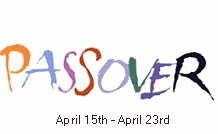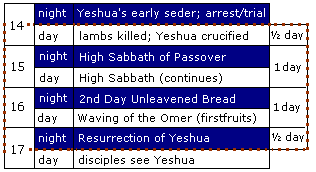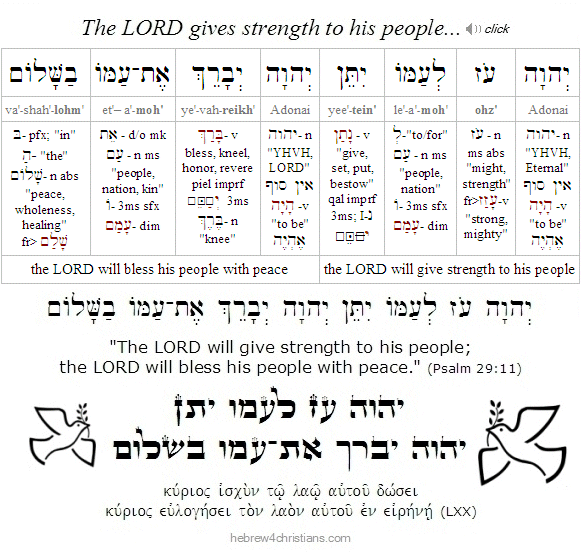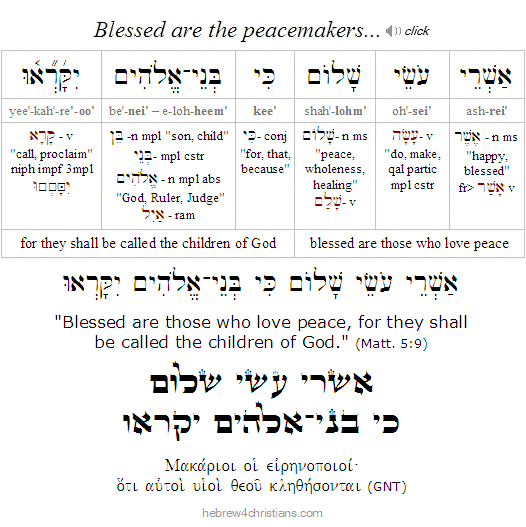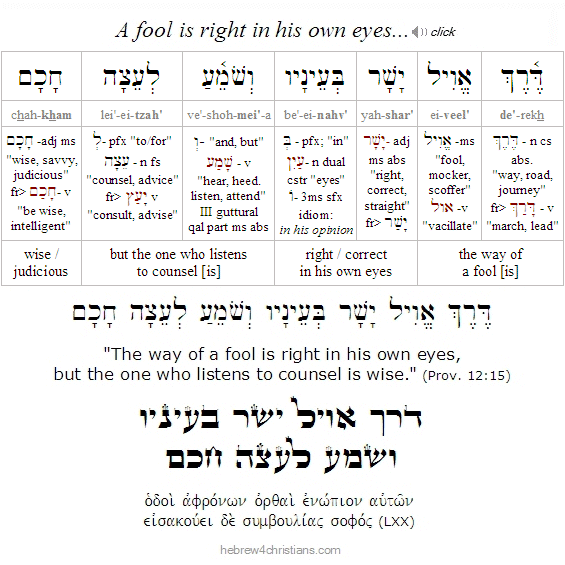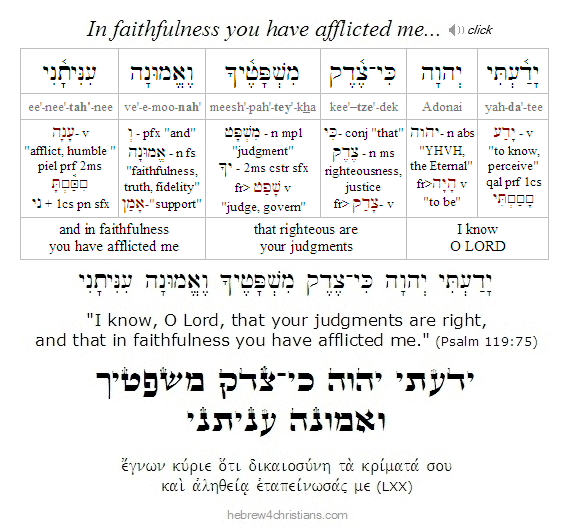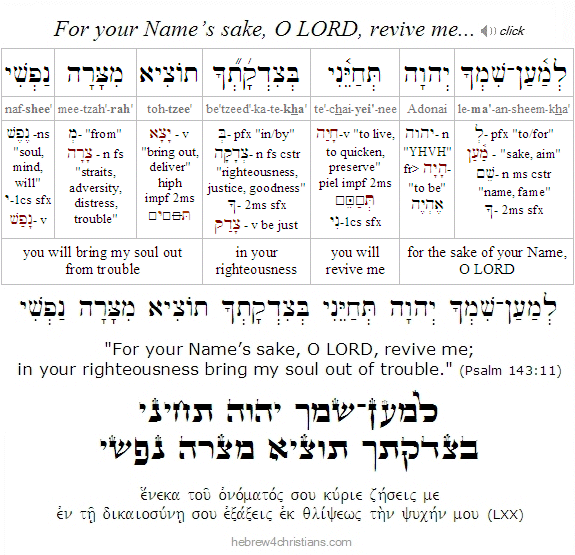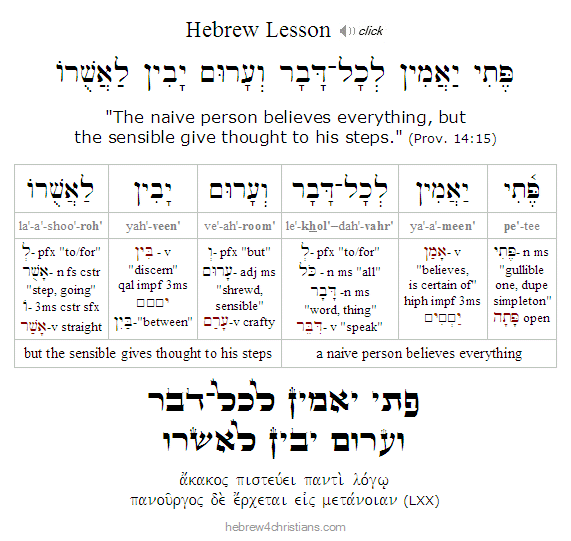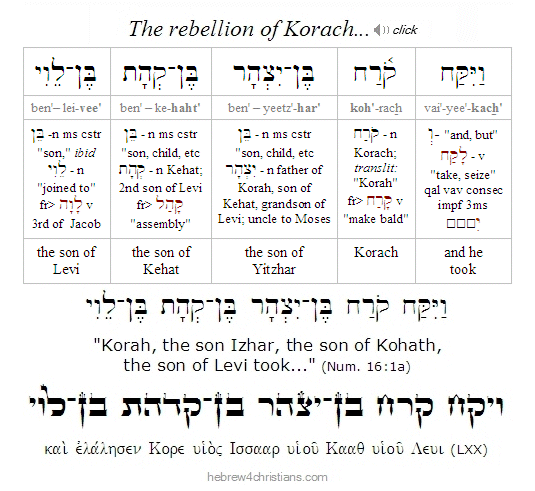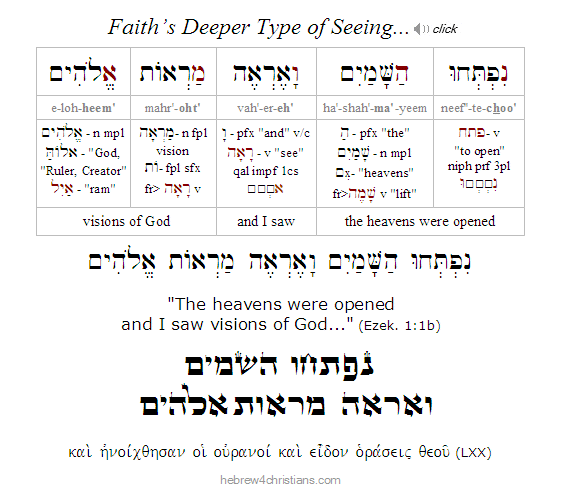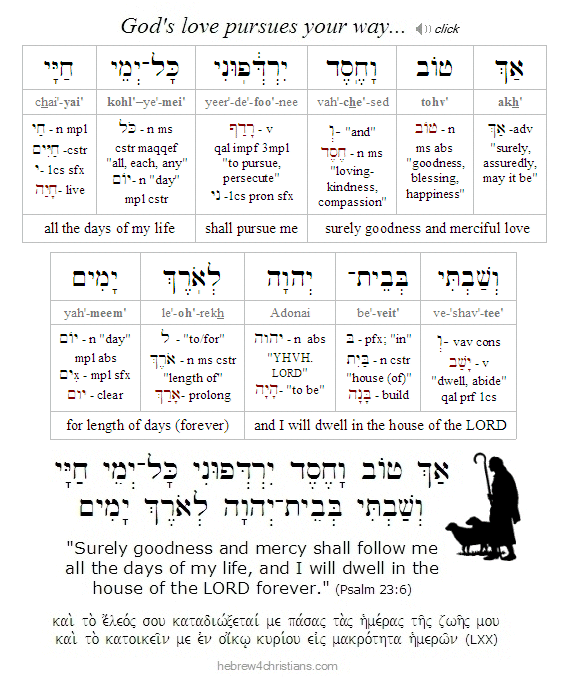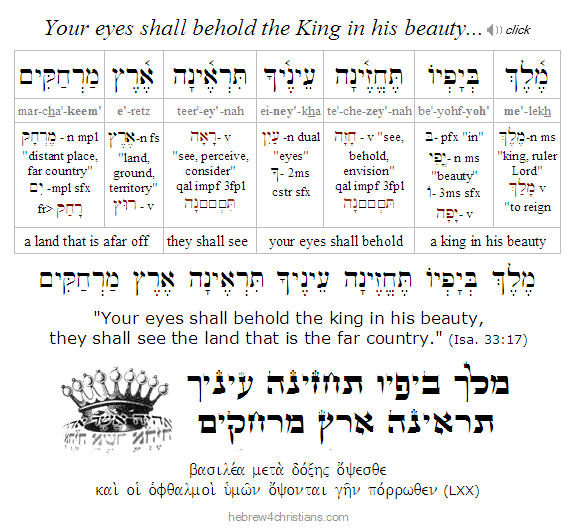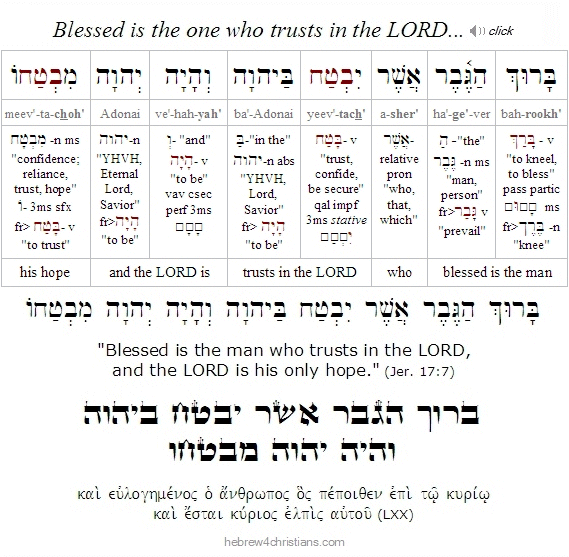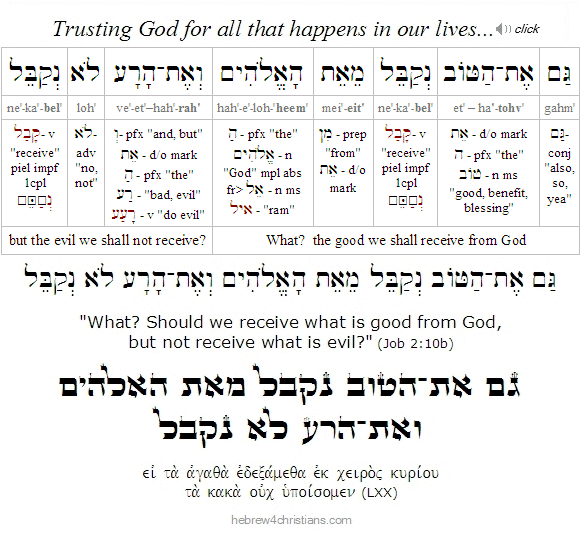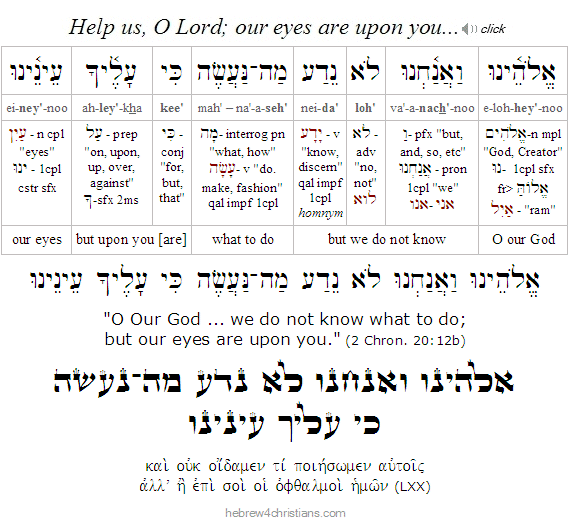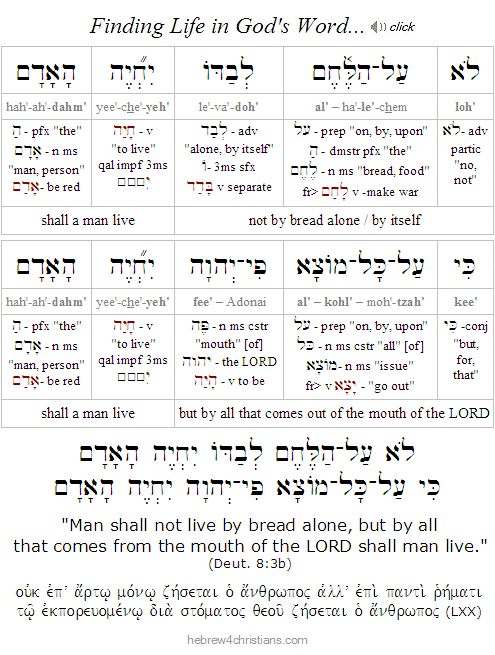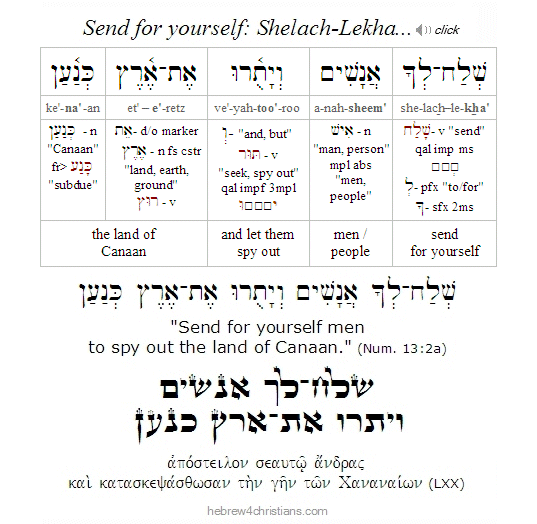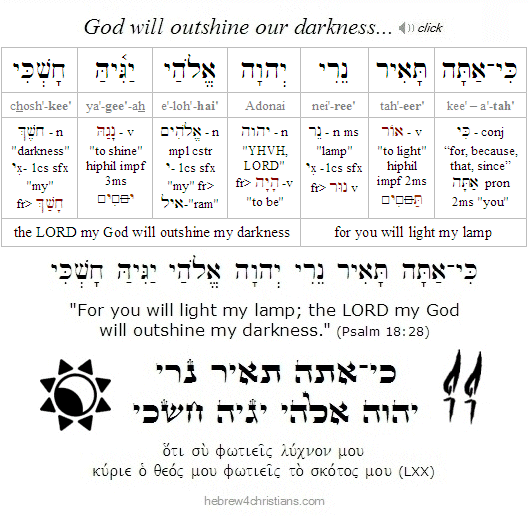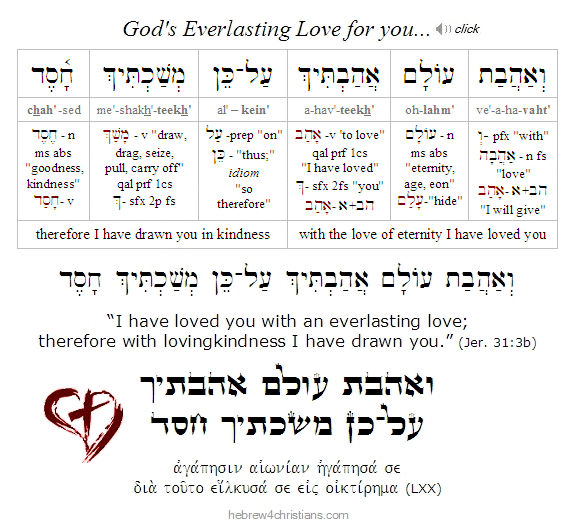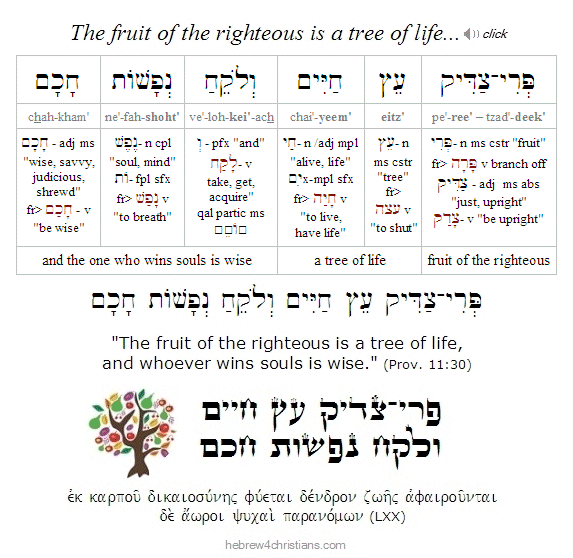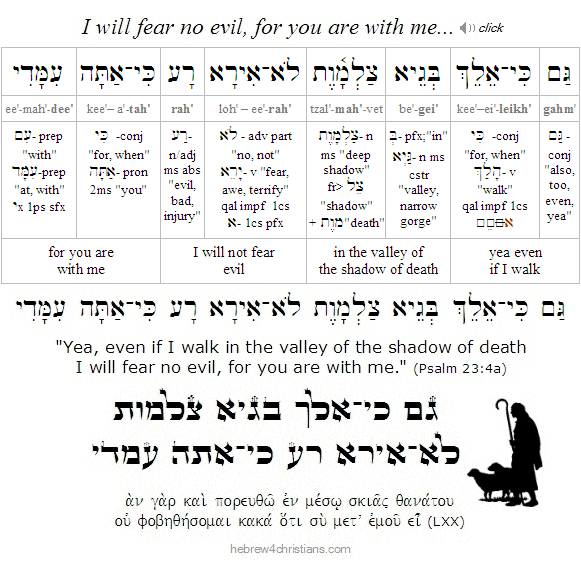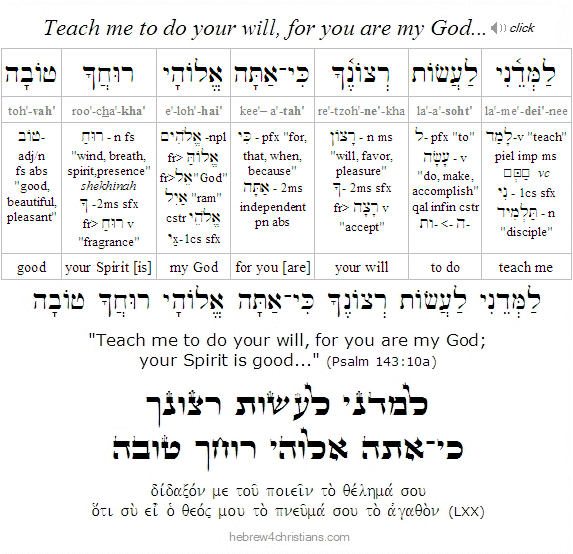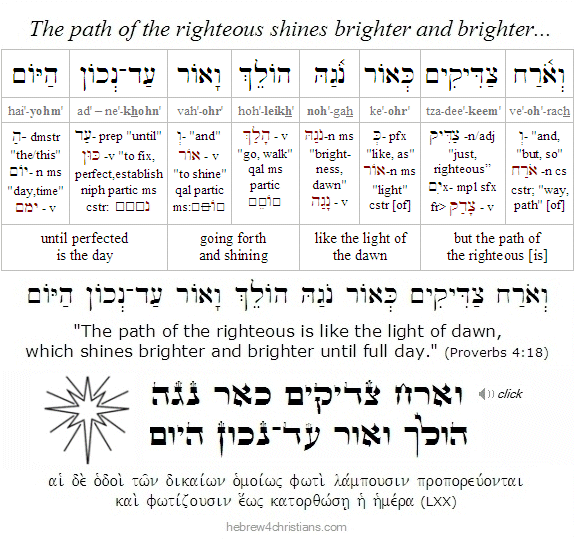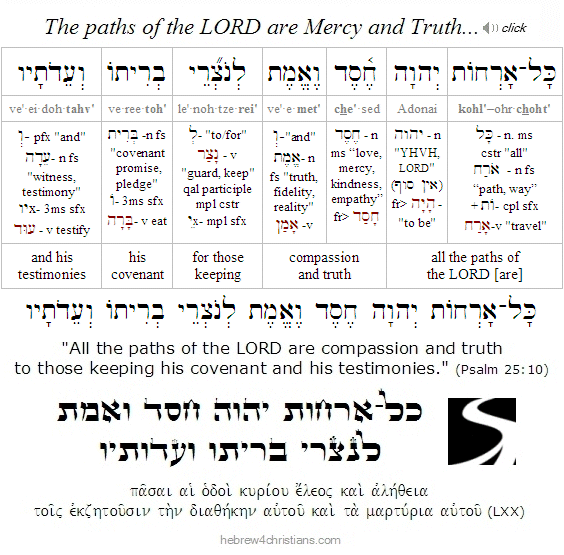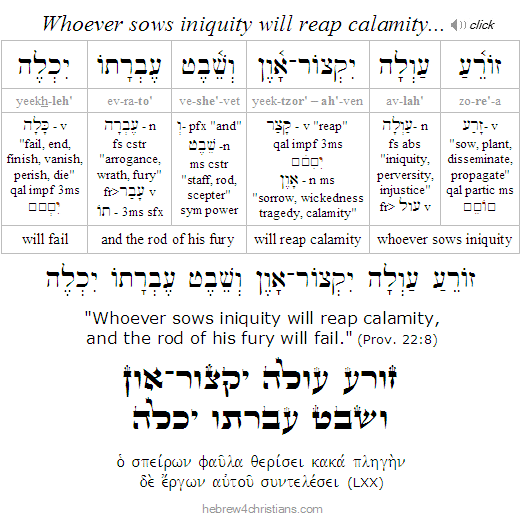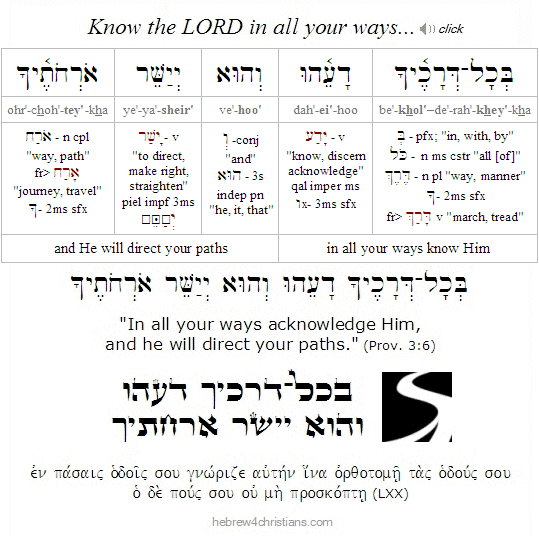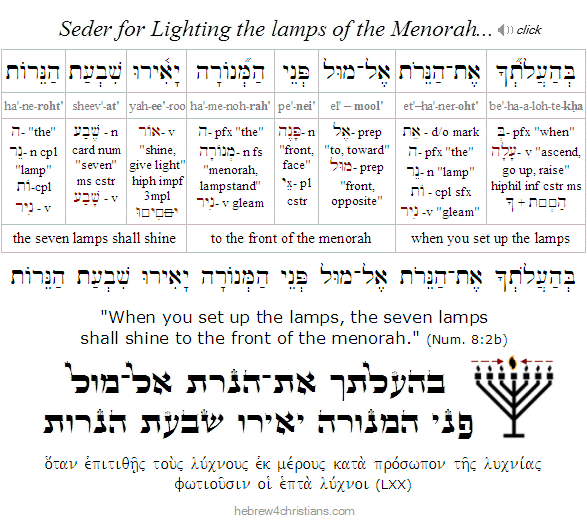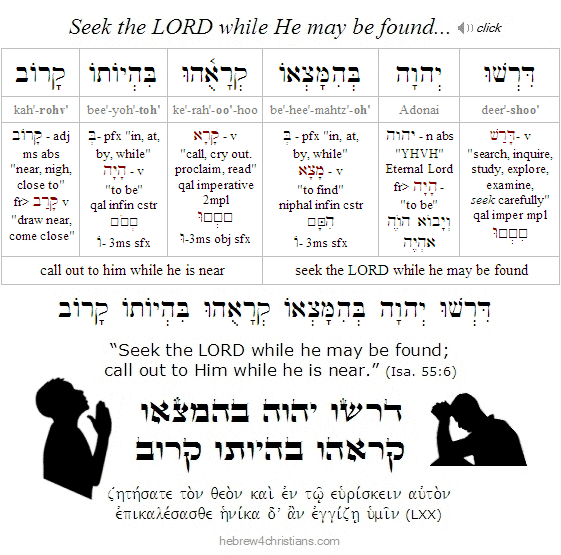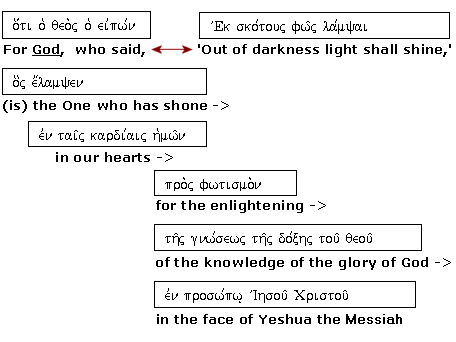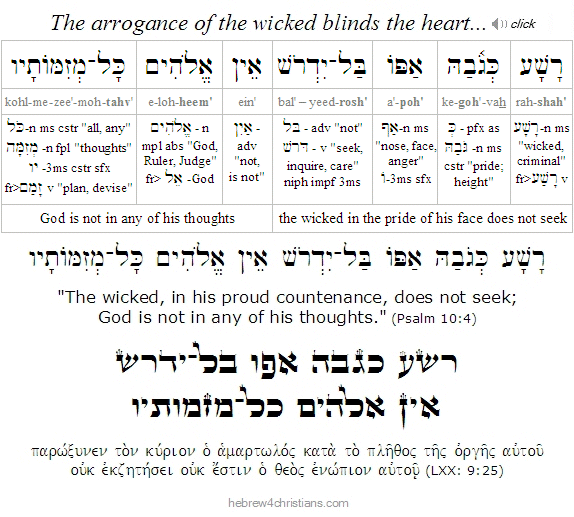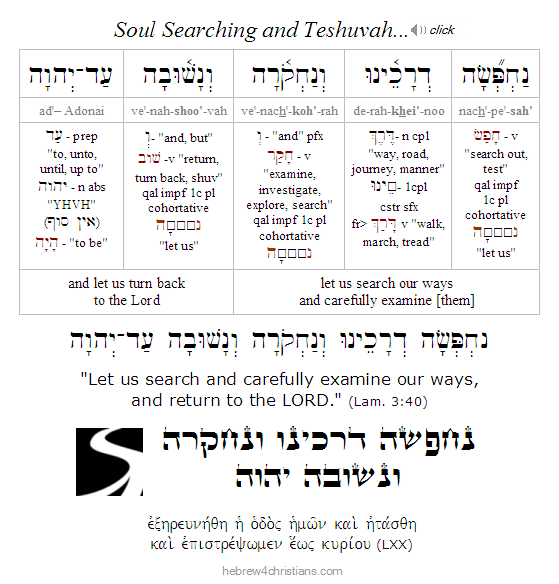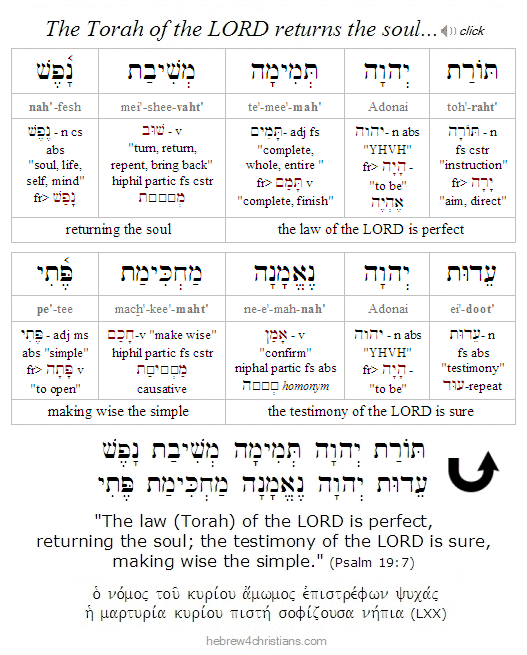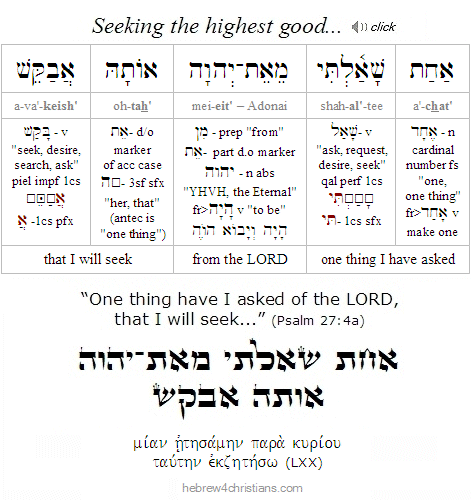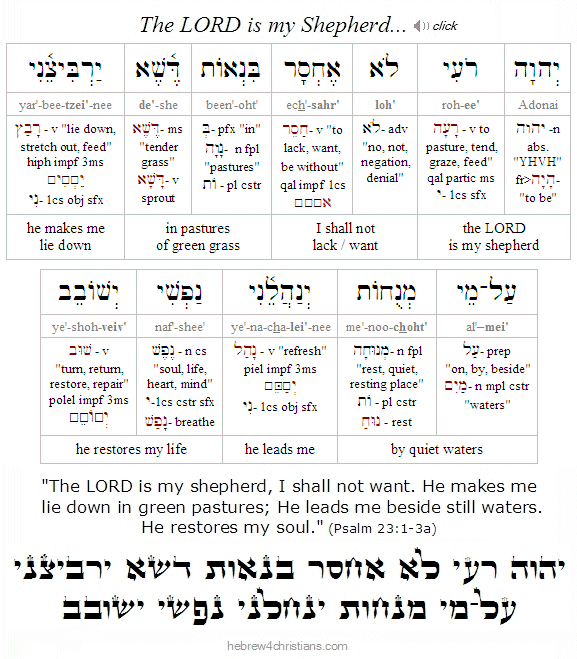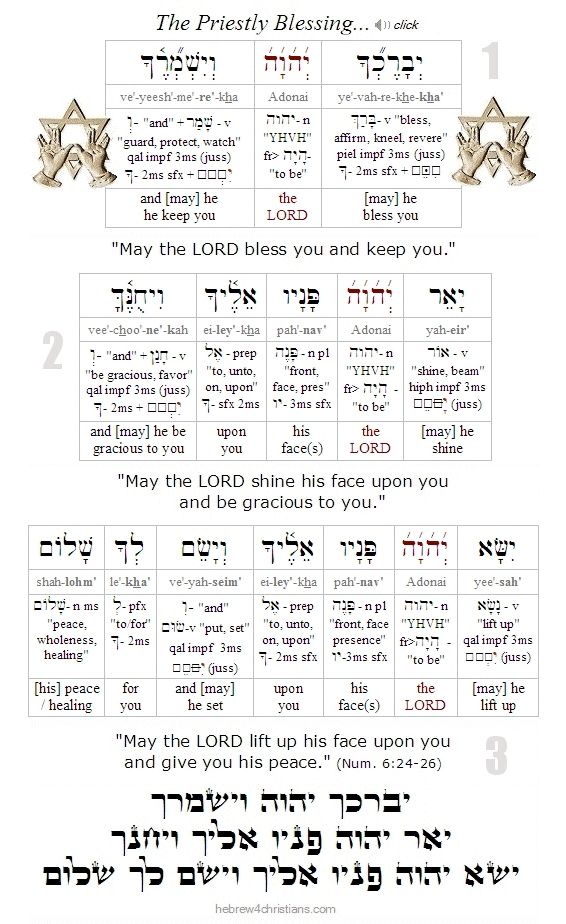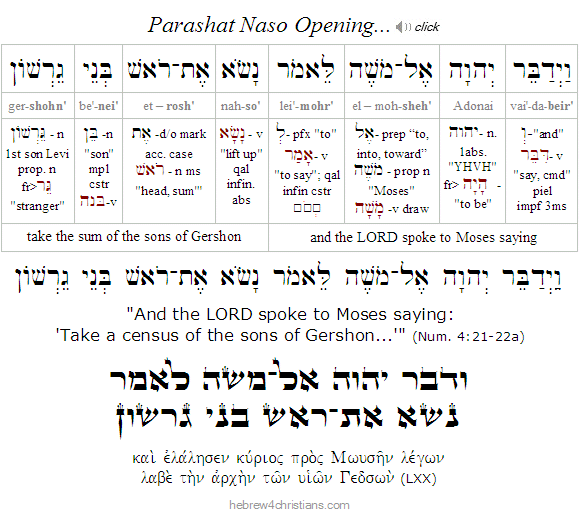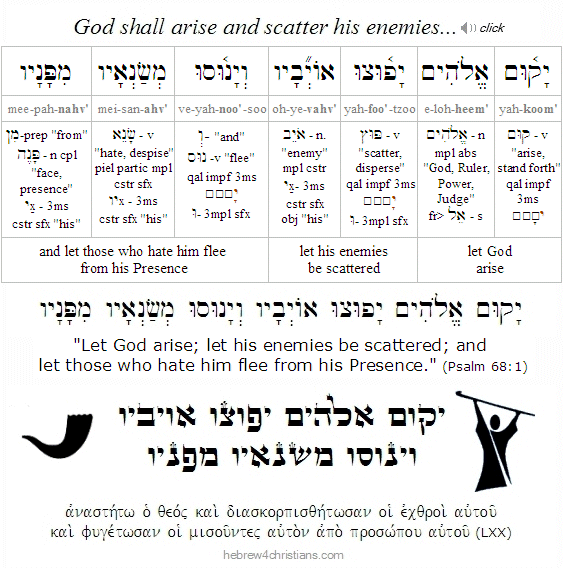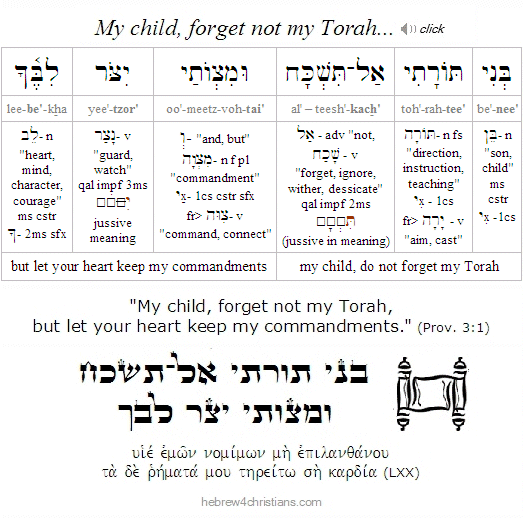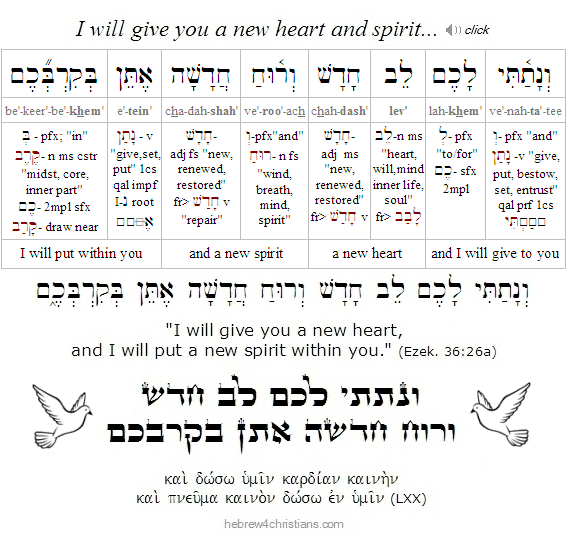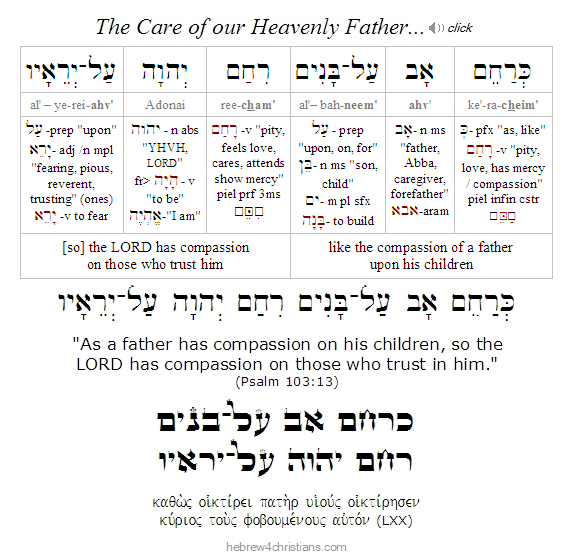|
Jewish Holiday Calendar
For June 2022 site updates, please scroll past this entry....
The Torah divides the calendar into two symmetrical halves: the Spring and the Fall, indicating the two advents of Messiah. The Biblical year officially begins during the month of the Passover from Egypt (called Rosh Chodashim, see Exod. 12:2), and the spring holidays of Passover, Unleavened Bread, and Firstfruits both recall our deliverance from Egypt and also our greater deliverance given by means of the death, burial, and resurrection of the Messiah, the great Passover Lamb of God. The holiday of Shavuot (i.e., "Pentecost") both commemorates the revelation of the Torah at Sinai as well as the revelation of the Ruach HaKodesh (Holy Spirit) at Zion, in fulfillment of the promise given by our Lord....
The intermediate months of summer end with the advent of the sixth month of the calendar, the month of Elul, which recalls the time Moses interceded on behalf of Israel after the sin of the Golden Calf. To commemorate this time of our history, we likewise focus on teshuvah (repentance) in anticipation of Rosh Hashanah and especially in anticipation of Yom Kippur, the great "Day of Atonement." In Jewish tradition the 30 days of Elul are combined with the first ten days of the seventh month (called the "Days of Awe") to set apart "Forty Days of Teshuvah" leading up to the Day of Forgiveness for Israel. Immediately following Yom Kippur, the mood changes as we begin preparing for a joyous week-long celebration called Sukkot (i.e., "Tabernacles") that concludes with the holiday of Simchat Torah.
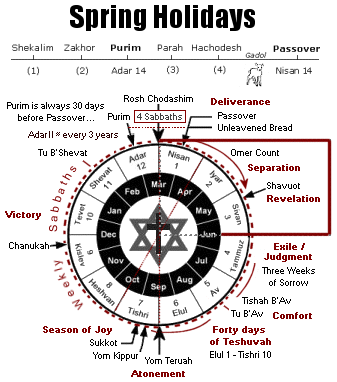 |
The Spring Holidays:
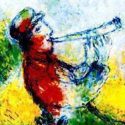
The spring holidays (חגי האביב) provide a portrait of the death, burial, and resurrection of the Messiah: Yeshua was crucified on erev Pesach (during the time of the sacrifice of the Passover lambs), buried during Chag Hamotzi (the festival of Unleavened Bread), and was resurrected from the dead on Yom Habikkurim (the Day of Firstfruits). Fifty days after Passover, on the climactic holiday of Shavuot (i.e., the feast of Pentecost), the Ruach HaKodesh (Holy Spirit) fell on the believers in fulfillment of the promise given by our Lord. Note that the giving of the Holy Spirit occurred precisely according to the calendar countdown given in the Torah (Lev. 23:15-16), and that it occurred after the resurrection of Yeshua -- just as our Messiah foretold (John 16:7; Acts 1:6-8, 2:1-4). This proves that the feasts of the LORD (מוֹעדי יהוה) were not abolished after the crucifixion. The meaning of the gospel is prefigured in the holidays given in Torah. See Luke 24:27, 24:44; John 5:46; Acts 26:22, etc.
Kindly note that in accordance with both Torah and Jewish traction, the following holiday dates begin at sundown (ויהי־ערב ויהי־בקר; Gen. 1:5):
- Month of Adar II (Wed. March 2nd [eve]) - Fri. April 1st [day])
Dates for Passover 2022:
Free Seder Guide
- Month of Nisan (Fri. April 1st [eve] - Sat. April 30th [day])
- Month of Iyyar (Sat. April 30th [eve] - Mon. May 30th [day])
- Month of Sivan (Mon. May 30th [eve] - Tues. June 28th [day])
June 2022 Updates
Days of Noah Revisted...

[ A word for such a time as this, friends... ]
06.30.22 (Tammuz 1, 5782) Our Lord told us: "For as were the Days of Noah (ימֵי נחַ), so will be the coming of the Son of Man. For as in those days before the flood they were eating and drinking, marrying and giving in marriage, until the day when Noah entered the ark, and they were unaware until the flood came and swept them all away (οὐκ ἔγνωσαν ἕως ἦλθεν ὁ κατακλυσμὸς καὶ ἦρεν ἅπαντας). Likewise, just as it was in the days of Lot - they were eating and drinking, buying and selling, planting and building, but on the day when Lot went out from Sodom, fire and sulfur rained from heaven and destroyed them all - so will it be on the day when the Son of Man is revealed" (Matt. 24:38-9; Luke 17:28-30).
So what were these "Days of Noah" like? What can we say about the "Generation of the Flood"? Yeshua explained that the "days of Noah" were marked by people who were asleep, blind, and unaware (ἔγνωσαν, "agnostic"). They went about their business willfully ignorant of the spiritual reality around them. For ten consecutive generations -- from the creation of Adam until the generation of Noah -- people progressively became more and more ignorant of spiritual reality and truth. Eating and drinking, romantic intrigue and marriage, buying and selling, and other worldly affairs were the preoccupations of the day. In short, people lived their lives oblivious to the spiritual reality all around them. They "forgot" who God was, who they were, why they existed, and where they were going. In short, they were "unaware."
The deadening effects of sin leads to moral and spiritual blindness that leads to corruption and unthinking brutality and violence. Of Noah's generation it was written "The LORD saw that the wickedness of man was great in the earth, and that every intention of the thoughts of his heart was only evil continually. And the LORD regretted that he had made man on the earth, and it grieved him to his heart... the whole earth was corrupt before God, and filled with violence" (Gen. 6:5-6, 11). Rashi understood the word "corruption" (shachat) to primarily refer to sexual immorality (i.e., idolatry) and "violence" (chamas) to primarily refer to theft and robbery. In general, however, the sages regarded the word chamas to refer to lawlessness, that is the denial of Torah, and consequently the benighted condition of living without yirat ha-shamayim (the fear of heaven). When people are spiritually dead, they are unconscious of the wonder of God; oblivious to what is real; and they are consequently debased into animals... We see that in our world today.
Far from being "set free" by throwing off the "shackles" of the law, people are debased and brought into deeper darkness (Rom. 1:26-28; 2 Pet. 2:12). True freedom is not the power to do whatever you want but the power to choose what is right. "Right" and "wrong" are not subjective preferences but objective spiritual judgments indicated both by human conscience but more importantly though revelation of the Torah. Despite claims by foolish thinkers like Frederick Nietzsche, moral truth is not malleable and subject to change. Just as human beings are subject to various physical laws to exist, so they are subject to moral laws. A person can no more murder another and escape the consequences than he can step off the ledge of a skyscraper and not fall to the earth.
The chaos we see in the world today is the result of years of social engineering and propaganda. From their youngest age children have been indoctrinated to believe that there is no God, that there is no transcendental moral authority, and that there is no objective truth about anything. Everything is relative and perspectival, and it is impossible to judge one subjective perspective to be better or worse than another... As a result we are "reaping the whirlwind" and the impulse to destroy is the final expression of this solipsistic and nihilistic ideology. Of course this destruction will be quickly followed by a "new regime" that eventually will enslave all of humanity under the reign of the anti-Christ.
The late Rabbi Levovitz, leader of the Mir Yeshiva, was in Poland before World War II and he saw the German preparations for the concentration camps. Regarding this he said, "The Jews stopped believing in Gehinnom (hell) so Hashem decided to bring Gehinnom into the world. Not the whole Gehinnom, but a little bit of it, a foretaste, a little bit of Gehinnom" (Purim derasha, 1981: Avi Miller). The moral chaos and anarchy we see today is likewise a foretaste of Gehinnom - the reign of terror to come otherwise known as the Great Tribulation....
There is hope, of course. We can and we should pray for the lost to turn to God and be delivered from their demonic fears and rage. And there is a new world coming! Not the "new world order" being prepared by techno-fascist globalists for the anti-Christ, but a truly new world. The chaotic violent and sick world we live in today will be dissolved when our King comes to rule the earth (Psalm 2). Our Lord can come in a blink of an eye. We are now in a state of preparation to herald our king, and that means keeping our hearts directed to his reality and truth. We must not shrink back now - we must affirm the truth and be bold in our witness. Time is short, chaverim.
Hebrew Lesson:
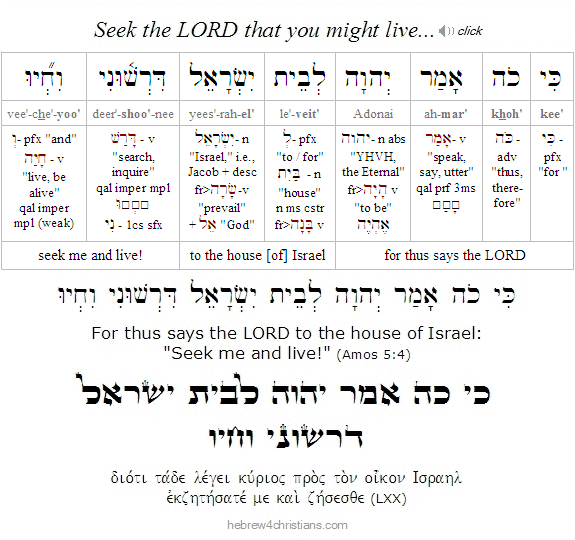 |
The War for Our Souls...

06.30.22 (Tammuz 1, 5782) There is a great war going on, though it's not a war waged with conventional weapons. Nor is it a war that the princes of this world devise to attain their devious political ends. No, this is the war for the souls of human beings, and every person alive is currently engaged in it... There is no place of neutrality in this war, and you cannot escape from the conflict. Passivity or indifference is not an option, and therefore each of us must choose sides. We are either going forward or going backward; we are either drawing near or pulling away (Rev. 3:16). מי ליהוה אלי - mi Adonai aylai? "Who is on the Lord's side?"
The apostle Paul wrote about this great war when he said: "For though we walk in the flesh (i.e., as mortal men), we are not waging war according to the flesh (i.e., in human terms). For the weapons of our warfare are not of the flesh but have divine power to demolish strongholds. We destroy arguments and every lofty opinion raised against the knowledge of God, and take every thought captive to the truth of Messiah" (2 Cor. 10:3-5).
Successful spiritual warfare is waged in the spirit realm, not relying on physical means at all, but trusts in the power of God and the weapons he provides to demolish "strongholds" where evil is deeply rooted (the word "stronghold" is better translated as "fortress," a metaphor for militant prejudice that attempts to justify godlessness). In the profane world, these strongholds are expressed in the reasoning (i.e., λογισμός, "logic") and "arrogant opinions" (i.e., ὕψωμα, pretenses) of the godless heart that are distilled into a dark vanity called "the wisdom of this world" (1 Cor. 3:19). The phrase "every lofty opinion raised against the knowledge of God" refers to the various devices of the heart and mind that erect obstacles to the knowledge of the truth revealed in the Messiah. Such obstacles are affirmed daily in the treacherous news of this world that reinforce godless assumptions and outright deception. We must use active discernment to identify the fallacies and misleading schemes promulgated by the world system by "taking every thought captive" to the glorious truth of the Messiah.
This is the good fight of faith (1 Tim 6:12). The fight is "good" because it turns on the victory and glory of the Lord who shares his overcoming life with us. The battle belongs to the Lord; the victory has been secured (Psalm 84:11; Rom. 8:37-39). Always remember that we never fight for, but always from, the place of His victory, standing our ground in the sufficiency of God's power given to us (Luke 10:19). We must be sober and vigilant (1 Pet. 5:8-9); we must stay focused and persevere in the truth (2 Tim. 2:4). God gives us the "armor of light" that blinds the eyes of powers of darkness. We must not be afraid but stand firm in the strength given to us by the Spirit of God (Zech 4:6; Eph. 6:11-18). The Lord will help us in the battle (2 Thess. 3:3; Deut. 3:22). "No weapon that is fashioned against you shall succeed, and you shall refute every tongue that rises against you in judgment. This is the heritage of the servants of the LORD and their vindication from me, declares the LORD" (Isa. 54:17).
Hebrew Lesson
Psalm 144:1 reading (click):
Endurance to Hope...
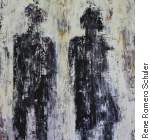
06.30.22 (Tammuz 1, 5782) Though we are assuredly optimistic about the purpose and end of reality, and though we believe that God "works all things together for good" (Rom. 8:28), we are not therefore monistic idealists, that is, those who falsely say that evil is not real or who claim that it is "part of God." We are given "exceedingly great and precious promises," yet in this world we suffer and experience real pain, heartache, and troubles. Yeshua said "in this world you will have tribulation," though that is not the end of the story, of course, for there is the cheer of God's' victory, even if we must repeatedly ask God for grace to endure our troubles without murmuring (John 16:33; Heb. 4:16). I realize that is often difficult, and some of you might be within the fiery furnace even now. You might be asking, "Where are you, Lord, in all of this? Why don't you bring me out of these troubles?" In such testing you need endurance (ὑπομονή) to hold on to hope, believing that God uses affliction to refine you for good. As Paul said, "We rejoice in our sufferings, knowing that suffering produces endurance, and endurance produces refined character, and refined character produces hope" (Rom. 5:3-4). Each of us is still upon the "Potter's wheel," and God's hand continues to shape us into vessels that one day will reveal his glory and honor. "The LORD will give strength to his people; the LORD will bless his people with peace" (Psalm 29:11).
Hebrew Lesson
Psalm 29:11 reading (click):
So please keep holding on, friends, and do not give up. Though these are indeed perilous times, the Lord our God is faithful and true. He will never leave nor forsake us, whatever may come. The Lord gives us acharit ve'tikvah (אַחֲרִית וְתִקְוָה), "a future and a hope" (Jer. 29:11).
The Light of Faith...

06.29.22 (Sivan 30, 5782) Instead of regarding the Bible as a "Book of Answers" for our questions, it is worthwhile to think of it as a "Book of Questions" for our answers. As we listen, God questions us so that we can know him by means of the dialog within our hearts. As any good teacher knows, when a student earnestly wrestles with a question he learns more than if he were given a straightforward answer. Similarly, the Lord gives us permission to be without answers so that we will be free to seek, to struggle, and to "own" what we come to understand through our relationship with him... That way our learning will be real, substantive, and born from the urgency our own inner need. Indeed, God's very first question to man is always, ayekah: "Where are you?" (Gen. 3:9), which appeals for us to acknowledge how we hide from the truth. "Where are you?" is the poignant call of the Seeking Father for his lost child, and the question only becomes "our own" when we are willing to look at how we've come to be at this place in our lives. God's question to our heart is meant to lead us out of hiding to respond to his loving call...
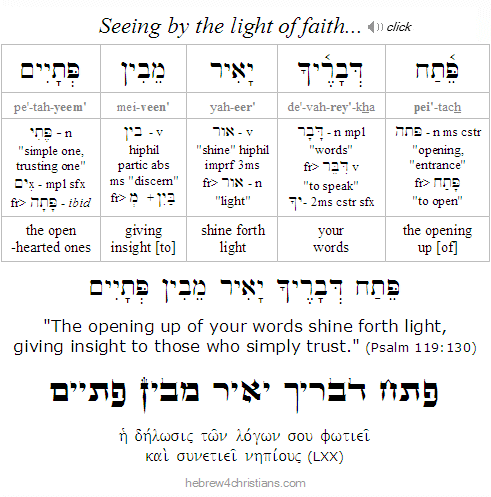 |
Soren Kierkegaard once lamented there are many people who arrive at conclusions in much the way schoolboys do: "they cheat their teachers by copying the answer book without having worked the problem out themselves." This is part of the mob mentality within Christendom. We can parrot creedal formulas or recite catechisms, yet in the end it is our own responsibility to make an authentic faith commitment. Thomas Aquinas' most significant work was his Summa theologiae or 'Summary of Theology,' a massive book that attempted to systematize all of Christian theology. He worked on it from 1266 through 1273, but when he was nearly finished, he underwent an experience so intense that, as he himself explained, everything he had written "seemed like straw." He thereafter gave up writing about theology after he encountered the Reality itself.
Everything is inherently mysterious, since everything ultimately expresses the inscrutable will and decrees of God.... Ask yourself with earnestness of heart: Where do I come from? Who am I? Where am I going? For what reason was I created? The first step is to wonder, to ask the searching questions, and to seek God's wisdom... The LORD is faithful and will reveal truth to the heart that seeks.. It is too easy to be preoccupied with everyday concerns and to miss the marvel and sheer wonder of existence itself. If you will approach these questions with humility and reverence, you will be filled with wonder, your heart will be filled with greater fervor, and you will hunger more than ever for God's Presence.
 |
Finding Inner Peace...
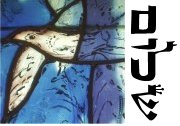
06.29.22 (Sivan 30, 5782) The Hebrew word for peace is shalom (שׁלוֹם), a word that means "wholeness," "completeness," "well-being," and "healing" -- not merely the absence of strife. People often fight with others because they are not made whole within themselves. Just as we cannot really love others until we first learn to love ourselves, so we cannot have peace with others until we first find our own inner healing and peace. Often this means learning to forgive both ourselves and others (including God) so that we can let go of whatever troubles our heart. As we accept ourselves and let go of our fear, we learn to accept others and give up the need to defend ourselves. As Yeshua said, "Blessed (happy) are those who love peace - for they shall be called the children of God" (Matt. 5:9).
אַשְׁרֵי עשֵׂי שָׁלוֹם
כִּי בְּנֵי־אֱלהִים יִקָּרְאוּ
ash·rei · o·sei · sha·lom
kee · be·nei · E·lo·heem · yeek·ka·re·oo

"Blessed are those who make peace,
for they shall be called the children of God."
(Matt. 5:9)
Hebrew Lesson
Matthew 5:9 reading (click):
In most English translations we read, "Blessed are the peacemakers, for they shall be called the children of God." Note, however, that the Greek word translated as "peacemakers" (εἰρηνοποιοί) can also mean "those who love peace," that is, those who long for peace and pursue it (see Psalm 34:14). In Jewish ethical teaching, seeking peace is called redifat shalom (רְדִיפַת שָׁלוֹם) and is considered a primary heart quality. Rabbi Hillel is attributed as saying, "Be of the disciples of Aaron, loving peace and pursuing peace" (Pirke Avot 1:2). Before we can hope to make peace among others, however, we must first know inner peace. If we threaten this peace, we rise up against God, and thereby undermine his will in our lives. Those who love peace will be called the children of God.
Peace is the foundation of God's great work of deliverance in our lives. Yeshua is called Sar Shalom (שַׂר־שָׁלוֹם), the "Prince of Peace" (Isa. 9:6), since salvation brings reconciliation (i.e., peace) between God and man (Rom. 5:1) and sets us free from the fear of condemnation. When we walk in the peace of God (שְׁלוֹם הָאֱלהִים) that "surpasses all our understanding," we are empowered to be a blessing to others in your life. "The fruit of righteousness is sown in peace by those who make peace" (James 3:18).
We understand the Torah commandment, "Thou shalt not steal" (לא תִּגְנב) to imply more than being forbidden to steal from others, but also to include the prohibition against stealing from ourselves by failing to practice inner honesty. When we lie to ourselves, we "steal" from the truth, we rationalize what is unjust, and we thereby rob from ourselves the great blessing of inner peace. Indeed, the traditional sages say that every sin essentially constitutes theft from God. For instance, in his discussion of teshuvah (repentance), Maimonides notes that confession of sin is connected with theft (Num. 5:7). Rabbi Yitzchak of Gur asks, "Inasmuch as there are 365 prohibitions in Torah, why does Torah choose to specify the need to confess sin in regard to theft?" He goes on to answer by explaining that if someone borrows something for a specific use, he is not permitted to use it for any other purpose other than that specified, lest he abuse the privilege and "steal the use" of the item. Likewise, God lends the soul the ability to speak, hear, see, and so on, for the sake of living a godly life. If we abuse these things, for example, by using our lips and tongue to speak evil about another, we are using our faculties for a purpose other than God intended, and that constitutes theft. Therefore every sin is a form of theft, an act of "breaking faith with the LORD," and that is why Torah mentions confession of sin in connection with it.
 |
The Projection of Korah...
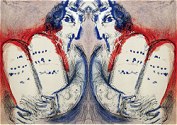
06.29.22 (Sivan 30, 5782) In our Torah reading this week (i.e., parashat Korach), Moses' cousin Korah audaciously accused Moses of self-aggrandizement and superiority by saying, "Why do you exalt yourself above the assembly of the LORD? ... Is it a small thing that you have brought us up out of a land flowing with milk and honey to kill us in the desert, that you also make yourself a prince over us?" (Num. 16:3,13). The Talmud comments: "One who seeks to disqualify another projects his own defects upon him." Korah's own self-exaltation and vanity led him to suppose that Moses was likewise proud and vain. His envy so twisted his perspective that he saw good as bad and bad as good. For him Egypt was the land "flowing with milk and honey" and Moses - not Pharaoh - was the real tyrant! In this connection the sages have said that other people serve as mirrors, and the defects we see in them reflect our own. Korah needed to see that his envy of Moses was rooted in fear, and that healing would come if he would let go and trust that God was in control of his life.
We can learn from the self-deception of Korah -- as well as his terrible end... "As you judge another you condemn yourself, for you that judge do the same things" (Rom. 2:1). How you react to another person reveals what is within your own heart, and this provides the opportunity to find healing by doing teshuvah and extending compassion to yourself. When you condemn another you are hurting yourself, after all. It is not a matter of factual truth as much as it is of the truth of hope and love. As we forgive others, so we find our own forgiveness (Luke 6:37), but if we insist on our rights, we find ourselves in hell... Fire offered falsely will be answered by the fire of God's judgment.
Hebrew Lesson
Proverbs 12:15 reading (click):
Freedom of Humility...

06.29.22 (Sivan 30, 5782) Those conscious of their inner poverty, those who mourn over their sinful condition and are afflicted with themselves, can let go of the need to "manage appearances," to be in control, or to seek validation from others, and therefore they are set free to surrender their lives to God's care. They "flow" with the Father's will as a "gentle breeze," no longer resisting or striving, but simply trusting in God's care. When they are wronged, they seek neither revenge nor vindication, but only restoration (1 Pet. 2:23). Paradoxically, it takes strength to be genuinely "lowly of heart," but such is found in the Spirit of God (Zech. 4:6). Indeed, the Spirit leads us to our inheritance: "the humble shall inherit the land and delight themselves in abundant peace" (Psalm 37:11).
וענוים יירשׁו־ארץ
והתענגו על־רב שׁלום
va·a·nah·veem · yeer·shoo-ah'·retz
ve·heet·a'·ne·goo · al-rohv · shah·lohm

"But the humble shall inherit the land
and delight themselves in abundant peace."
(Psalm 37:11)

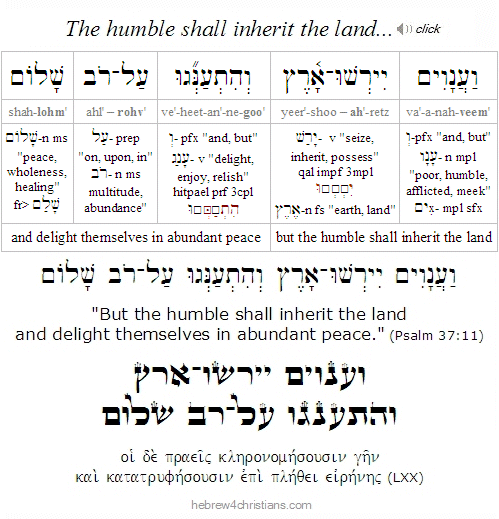
Yeshua quoted this verse when he said, "Blessed are the meek, for they shall inherit the earth" (Matt. 5:5). The Koine Greek word translated "meek" is πραεις (or πραος), better rendered as humble or lowly. In the Hebrew text of Psalm 37, the word is anaveem (עֲנָוִים), usually translated as "lowly ones" (anavah is the Hebrew word for humility). This word does not suggest weakness, but rather the recognition of one's proper place in the universe before God. It is not self-effacing but rather reality-focused. The humble inherit the promised land because they are grounded in the truth of reality...
God "opposes the proud but gives grace to the humble" (James 4:6). The LORD our God dwells with those "of a contrite and lowly spirit, to revive the spirit of the lowly, and to revive the heart of the contrite" (Isa. 57:15). True greatness is found in outside of the self, beyond the instincts of the carnal ego. Those who seek to exalt themselves and to "gain the world" do not understand that the very reason for their life is to be sacrificed for the sake of love. Obeying God's call to love is not a burden, but rather sets the heart free. As Yeshua said, "Come to me, all who labor and are heavy laden, and I will give you rest. Take my yoke upon you, and learn from me, for I am gentle and lowly in heart, and you will find rest for your souls. For my yoke is easy, and my burden is light" (Matt. 11:28-30).
In the Jewish tradition, humility is among the greatest of the virtues, as its opposite, pride (i.e., ga'avah: גַּאֲוָה), is among the worst of the vices. God hates the proud of countenance (Prov. 6:16-17). Therefore Moses is described as the most humble of men: "Now the man Moses was very humble, above all the men that were on the face of the earth" (Num. 12:3), and likewise the great patriarch Abraham confessed to God: "Behold now, I have taken upon me to speak unto the Lord, who am but dust and ashes (עָפָר וָאֵפֶר)" (Gen. 18:27).
"He must increase, but I must decrease" (John 3:30). Our aim should not be personal greatness, but humility. Love personal obscurity; rejoice that you are unnoticed by the world and that you are "poor in spirit." Be happy that you are a stranger and sojourner in this world. How blessed are you when God alone is your chief concern!
 |
Believing God's Heart...
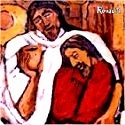
06.28.22 (Sivan 29, 5782) When he was asked what was the most important commandment of all, or, what does God really ask of us, Yeshua quoted the "Shema" passage from the Torah: "Hear O Israel, the Lord is our God, the Lord alone, and you shall love the LORD your God with all your heart, with all your soul, with all your mind, and with all your strength.' He then said: "This is the first commandment" (Mark 12:29-30, quoting Deut. 6:4-5).
The Hebrew word shema (שׁמע) means "listen," so the most important commandment is to hear the truth that the Lord is our God, the Lord alone... Other things may compete for your attention, but what is essential is for you to believe and to know that the Lord is your God, which, incidentally, is the very first of the Ten Commandments (Exod. 20:2).
The Shema is the call to intellectually and emotionally connect with God as the most important and precious person in your life. "You shall love the Lord your God with all your heart" is the invitation to relate to God on the basis of his great love for you, and faith is your heart's response that receives that love with all of your being. That is the goal of teshuvah, or "repentance," after all: turning to God to find life in his love. Knowing God's heart is your very reason for being; it is the most sacred concern of your life.
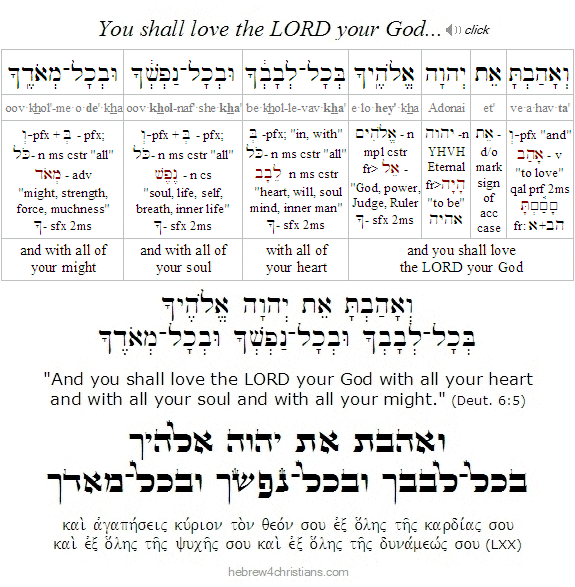 |
Generally speaking, we must quiet our heart to "make room" to listen, and that implies a measure of self-forgetfulness. To listen well we let go of our need to be in control and then receive what is said in humility. Listening to God honors his presence, trusts his authority, and surrenders to his care. Even in our troubles and our anguish (and especially in those times) our first duty is to quiet our hearts and listen, as it says: "He delivers the afflicted by their affliction and opens their ear by adversity" (Job 36:15).
It is written: "Let every person be quick to hear, slow to speak, slow to anger" (James 1:19), yet we are often just the opposite: slow to hear, quick to speak, and quick to wrath. However, in the midst of our struggles we must be careful to heed the questions the Spirit speaks from out of the whirlwind, as righteous Job did: "Have you entered into the springs of the sea, or walked in the recesses of the deep? Where is the path to the source of light? Where is the home of the east wind?" "Do you know the laws of the heavens, or can you set up their rule over the earth?" (Job 38). Job was astonishingly humbled by hearing such words, so much so that he finally exclaimed: "I know that you can do all things, and that no purpose of yours can be thwarted. You asked, 'Who is this that questions my wisdom with such ignorance?' It is I -- and I was talking about things I knew nothing about, things far too wonderful for me... I had only heard about you before, but now I have seen you with my own eyes. I take back everything I said, and I sit in dust and ashes to show my repentance" (Job 42:2-6).
Job's friends, however, had not believed as Job had - that is, they had not seriously listened to God's voice nor faithfully searched for him in the midst of their anguish. Theirs was a "second hand" suffering. Perhaps they had never tasted the dregs of the cup of tribulation as did Job but they still wished to hold to a form of godliness. Their grave error, however, was that they presumed to know the truth when in fact they were impostors, "theological quacks" who were too busy rationalizing their own preconceptions to offer any genuine remedy or true comfort to their suffering friend. The Lord listened to Job in his plight and took him seriously, however, because Job was a man of real faith, and he respected the ambivalence that Job felt within his heart, namely that God loved him dearly and yet allowed inexplicable evil to besiege him - for that was the essence of his struggle, after all, a struggle not to let go of his love for God but to cling to it despite the harrowing loss and destruction of his world (Job 2:10).
Even though he never got an explanation for his suffering, Job received something far better, namely the direct revelation of the One who made all things by the hand of his glory. And that is the hope we likewise hold, to one day see our Lord face to face, to behold Him in his beauty and glory forever and ever. We do not need explanations for why we are sometimes vexed with suffering as much as we need the will to endure and to keep believing. And may it please our Lord to help us persevere and remain faithful when we are tested. Amen.
Hebrew Lesson
Job 13:15 reading (click):
Faithful Afflictions...

06.28.22 (Sivan 29, 5782) When we suffer in this life - and all of us will - we should never despair and conclude that life is no use living anymore. Perhaps more than anything else suffering raises the question of our faith. Do you really believe that God is working all things for your good? Is your mind settled to trust in God's plan for your life - even if that is presently incomprehensible to you?
We are being educated for eternity, and one of the chief lessons concerns the breaking of our arrogance (ga'avah). When we surrender our lives to God's care, trusting in Him alone for everything we need, we forsake our demand to understand -- i.e., our pride. This is a great blessing, of course, since the Lord resists the proud but gives grace to the humble (Prov. 3:34; James 4:6; 1 Pet. 5:2). Humility draws us near to God. Sometimes, however, this lesson is learned when facing life-threatening illness and death. A sage was once told by a doctor, "There is really nothing else we can do." Upon hearing this, the sage smiled and said, "This is what I was preparing for my whole life." Amen. Rightly understood, theology is the practice of death, since it prepares the heart for what is eternally abiding and everlastingly real.
God allows sickness into our lives to teach us to trust in him. Afflictions are "yissurim b'ahavah" - troubles ordained by love. Sickness humbles us and reveals our need for healing -- not just physical healing but healing from the spiritual sickness of our pride...
Where it says, "You shall love the Lord your God with all your soul," that includes when he takes your soul. That's the meaning of the Kaddish, after all - thanking God for all things, including our own mortification. Followers of Yeshua affirm that physical death is a transition from the temporal to the realm of eternity. As Yeshua promised us: "I am the resurrection and the life. The one who believes in me will live even if he dies, and the one who lives and believes in me will never die" (John 11:25-26).
Hebrew Lesson
Psalm 119:75 reading (click):
Matters of Ultimate Concern...
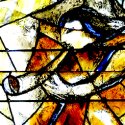
[ The following entry concerns this week's Torah reading, parashat Korach... ]
06.27.22 (Sivan 28, 5782) We read in our Torah portion for this week (i.e., Korach) the terrible fate of Korah and his co-conspirators: "And the earth opened its mouth and swallowed them up" (Num. 16:32), which the sages say metaphorically refers to being consumed by this world and its desires. Life is a serious business, an irrepeatable opportunity. Many trifle their way to the grave, fully unprepared for the shock of the world to come... How few make it the great business of life to prepare themselves "until their change comes" (Job 14:14); how few consciously number their days to obtain a heart of wisdom (Psalm 90:12)? We mustn't fool ourselves by thinking we have a long road ahead before we face who we are at the time of our death (Luke 12:19-21). "No one knows the day or hour," yet it is certain to come, and wisdom bids us be prepared. All must die; there is no escape (Heb. 9:27). "No man has power to retain the spirit, or power over the day of death. There is no discharge from this war, nor will wickedness deliver those who are given over to it" (Eccl. 8:8).
In light of this somber truth, do you reflect on its significance? Have you taken time to reflect on how it will be for you at your death? Allow such thoughts to awaken you from your careless and unwatchful state. Lay up treasure in heaven (Matt. 6:20). Considering the vastness of eternity, human life is likened to a mere vapor that quickly passes away (Psalm 103:15-16). It is madness to put off that which is of ultimate concern until the last moment. Therefore "repent one day before you die." But who knows the day of one's death in advance? Therefore live each day as if it were to be your last, and may God help you make the decision to "seek the LORD while He may be found; call upon Him while He is near" (Isa. 55:6). Amen, And may the LORD quicken these matters to our hearts...
כי־ידעתי מות תשׁיבני
ובית מועד לכל־חי
kee-yah·da'·tee · mah'·vet · te·shee·vei'·nee
oo·veit · moh·eid · le·khol-chai

"For I know that you will bring me to death,
and to the meeting place for all the living."
(Job 30:23)

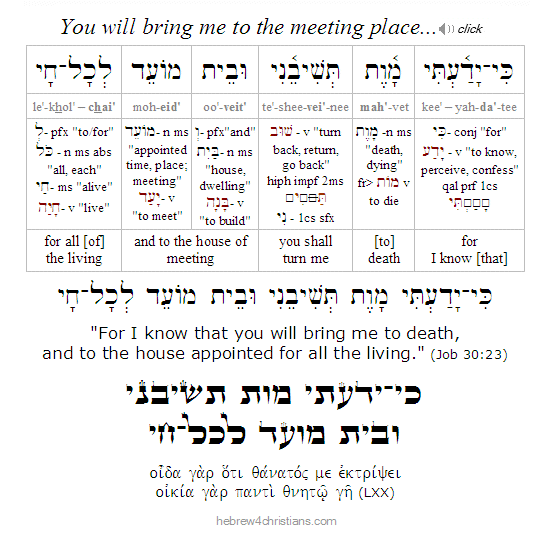 |
Of course dying in the LORD assumes you are really "in Him," that is, that you are a person whose heart is known by Him (1 Cor. 8:3). You can't die in him if you have never lived in him. In this world we learn to die, and as we die in Him, so we will live in him. Resolve this within your heart: "Blessed are the dead who die in the Lord" (Rev. 14:15).
Concerning the prospect of death we are full of confidence, of course, since Yeshua has overcome death for us and secured our place in heaven (John 11:25; Heb. 2:9-10). "We must all die; we are like water spilled on the ground, which cannot be gathered up again. But God will not take away life, and he devises means so that the banished one will not remain an outcast" (2 Sam. 14:14). Though physical life inevitably returns us to dust (Heb. 9:27), death does not have the final word, since God wonderfully "devises the means by which the banished are brought back home." If you belong to the Lord, your death is the day of precious homecoming to be with your beloved Savior: "For me to live is Messiah, and to die is gain" (Phil. 1:21). As it is written, "just as we have borne the image of the man of dust, we shall also bear the image of the man of heaven" (1 Cor. 15:49).
 |
Echoes from the Future...

06.27.22 (Sivan 28, 5782) Yeshua forewarned of the alienation and moral sickness that would pervade mankind just before the time of his return: "Because lawlessness (i.e., ἀνομία, from -α ('not') + νομος, 'torah') will be increased," he said, "the love of many will grow cold (i.e., ψύχομαι, 'be extinguished')" (Matt. 24:12). Note the link between Torah and love: true love requires respect for God's authority, for without that the divine image is disfigured and desecrated. Likewise the Apostle Paul foresaw that the "End of Days" (אַחֲרִית הַיָּמִים) would be a time of peril (καιροὶ χαλεποί) because people would become increasingly narcissistic, self-absorbed, infatuated with their own sense of self-importance, abusive toward others, disrespectful to elders, ungrateful, heartless, unforgiving, without self-control, brutal, treacherous, and so on (2 Tim. 3:1-4). Therefore, in light of the spiritual war that rages all around us, it is vital that we remain firmly rooted in what is real by taking hold of our identity and provision as children of God. "God has not given us the spirit of fear, but of power (גְּבוּרָה / δύναμις) and of love (ἀγάπη), and of a "sound mind" (σωφρονισμός), i.e., a "delivered" mind -- centered and "healed" from inner chaos (2 Tim. 1:7). The name of the LORD (יהוה) means "Presence," and in Him "we live and move and have our being" (Acts 17:28). He is as close as our heart and our very breath (Rom. 10:8). We are not to be troubled like the world that lives in terror of man, nor are we to crave security from the vain devices of mere men. No - we must look to God Almighty, the Master of the Universe. He alone is our Refuge and Defense, the One who gives us steadfast love in the midst of these storms. "Let not your heart be troubled" - God is in control of the whirlwind, friends...
According to orthodox Jewish eschatological tradition, the period of time immediately before the Messiah's arrival is sometimes called ikvot meshicha (עִקְּבוֹת מְשִׁיחַ), the time when the "footsteps of the Messiah" can be heard. Some of the "signs" of this period include the rise of various false prophets, numerous wars and "rumors of wars" (including the rise of Magog: Iran), famines, earthquakes, worldwide apostasy from the faith, persecution, and a globalized sort of godlessness that is revealed in unbridled selfishness, greed, chutzpah (audacity), shamelessness, and a general lack of hakarat ha-tov (gratitude). The greatest sign, however, will be that Israel will exist once again as a sovereign nation, despite the prophesied exile among the nations (Deut. 4:27-31; Jer. 30:1-3).
Hebrew Lesson
Psalm 143:11 reading (click):
For more on this fascinating subect, see the article "Birthpangs of Messiah."
Audio Podcast:
The Warning of Korach...

06.27.22 (Sivan 28, 5782) Our Torah portion this week (Korach) centers on the rebellion of Korah, a man who questioned God's authority and who arrogantly sought to "intrude" into the office of the priesthood. It is noteworthy that his rebellion is explicitly mentioned only once in the New Testament - in the Book of Jude - as an example of the fate that awaits those false teachers who likewise spurn God's law. False teachers within the church are likewise dangerous because they deny the truth of Torah and redefine our duties before God. Jude identifies them as spiritual impostors who "work from the inside" to confound or obscure the truth of what salvation means. Such a charlatan may appear to be a genuine believer, but he or she aims to sow confusion and sin among God's children; they are the proverbial "wolves in sheep's clothing" (Matt. 7:15). Jude's warning is especially important for us in this present hour because it is foretold that in the time immediately preceding the coming of the Messiah spiritual deception and unbridled godlessness would greatly increase (2 Tim. 3:1-5). At any rate, test the spirits and seek God's face always, dear friends. I sincerely hope this audio broadcast encourages you... Please click the link(s) below to listen or download:
Marks of False Teachers...
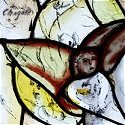
[ The following entry concerns this week's Torah reading, parashat Korach. Please read the Torah portion to "find your place" here. ]
06.27.22 (Sivan 28, 5782) False teachers (מורי שקר) tend to be "people pleasers." They desire the esteem of the crowd, the praises of men, and therefore appeal to the murmurings of the unregenerate heart: "Do not prophesy to us what is right; speak unto us smooth things, prophesy deceits" (Isa. 30:10). They flatter people by "tickling their ears"; they offer either platitudes or "new revelation" based on their own imagination. Consequently, they tend to be grandiose and quick to disparage God's faithful servants. Thus Korah accused Moses of wanting to exalt himself, when this only disclosed the evil lurking within his own heart (Num. 16:3). False teachers speak in their own name and presume to be something when they are nothing (Gal. 6:3). "The prophets prophesy lies in my name: I sent them not... they are prophesying to you a lying vision, the deceit of their own minds" (Jer. 14:14). They secretly deny that Yeshua is LORD (יהוה), though they may offer "lip service" about his importance (2 Pet. 2:1). Instead of focusing on the message of the gospel and the greatness of salvation found in Messiah, they "major in minors," passing over the weightier matters for the sake of various divisive doctrines (Matt. 23:23). They desire to be teachers of the law, but they have no idea what they are talking about (1 Tim. 1:7). Often such deceivers have natural charisma, charm, "good hair," and an ability to bewitch people through buttery oratory or clever presentation (Col. 2:4,8). Often they focus on the truth of the head rather than the truth of the heart; they are more concerned with being vindicated than healing broken hearts. Finally, they tend to exploit people to promote their own self-serving agenda (1 Pet. 2:1-3). They make "merchandise" out of the gullible, regarding them as the means to support their "ministry" rather than as precious souls in need of God's love and care...
False teachers inevitably "twist the Scriptures" by offering unsound interpretations contrary to the ruach, or spirit of the Hebrew prophets, and by evading the commandment to "rightly divide" the word of Truth according to basic logic and clear thinking (2 Tim. 2:15; 2 Pet. 1:20-21; 3:16). In Christian circles, they often come in the name of the law (legalism) or in the name of grace (licentiousness), but rarely do they take the trouble to carefully (and equitably) work through the paradoxical tensions. False teachers are uncomfortable humbly confessing they don't know something, and therefore they are quick to style themselves as an infallible prophet or source of authoritative wisdom...
There is no substitute for taking the time and energy to humbly study Torah, friends, and we should be suspicious of those who claim special insight when it is evident that they have not really labored working through the Scriptures... All disciples of Yeshua are called "students," or talmidim (תַּלְמִידִים), a word that comes from lamad (לָמַד) meaning "to learn" (the study of Scripture is called talmud Torah (תַלְמוּד תּוֹרָה) from the same root). Among other things, then, following Yeshua means becoming a student of the Jewish Scriptures that he both loved and perfectly fulfilled (Matt. 5:17-18; Luke 24:44-45). Only after learning the truth of the Scriptures will you be equipped to "go to all the nations and teach" others (Matt. 28:19). This is accomplished not merely by explaining (propositional) doctrine but by kiddush HaShem -- sanctifying the LORD in our lives (1 Pet. 1:15-16). "You shall know them by their fruits..."
Yeshua brings the kingdom of God "at hand," that is, into the realm of this fallen world. False teachers are emissaries of evil, commissioned by the devil to seduce, deceive, and ensnare souls; they disguise themselves as an "angel of light" (2 Cor. 11:14). God allows false teachers to justify the desires of the unregenerated heart, for such teachers find their audience among those who want to be deceived (Matt. 13:24-30; 15:14). In other words, there can be no false teachers apart from false believers who go along with the ruse. In light of this possibility, we should be careful to honestly examine our hearts. What are your motives for faith? What draws you to Yeshua? Do you accept the message of the gospel or are you trusting in something else? Are you really one of his "sheep"? Do you hear his voice, or are you heeding something contrary to the truth of the Holy Spirit?
Just as the easiest way to spot a counterfeit dollar bill is to know the various details of the original, so our best defence against false teaching is to know the details of doctrine and to use discernment as the LORD helps us "test the spirits" (1 John 4:1). This implies that we "build ourselves up in the most holy faith" by carefully (i.e., humbly) studying the word of God - especially the Torah, since the Torah is the foundation of all that follows (Jude 1:20). In this way we will be able to accurately wield the Sword of the Spirit (2 Tim. 2:15-16, 2 Pet. 1:19-20). In order to grow, we must have "good soil" for the seed of the word to take root. We "get rooted by knowing the roots" of our faith! Studying the Scriptures and praying in the Spirit of Truth keeps us securely in the love of God as we wait for the mercy of Yeshua who gives us eternal life (Jude 1:21).
Hebrew Lesson
Provwebs 14:15 reading (click):
All in the family:
The Rebellion of Korah (פרשת קורח)
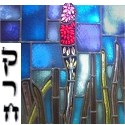
06.26.22 (Sivan 27, 5782) Shalom chaverim! Welcome to another week to study Torah and to learn more about Yeshua, our beloved Savior. I earnestly pray that we will all draw closer to the Living God and honor him in our "avodat ha'lev," our worship of the heart.
Last week's Torah portion (Shelach Lekha) told the tragic story about the "sin of the spies" (חטא המרגלים) and the divine decree that the generation rescued from Egypt was sentenced to die in the exile of the desert. In this week's portion (parashat Korach), the hard truth of their condition began to sink in, and the people bemoaned their fate and rebelled further by attempting to overthrow God's designated leadership and return to Egypt. This rebellion was instigated and organized by Moses' cousin Korach, who – along with a band of co-conspirators – was swiftly judged and put to death, thereby vindicating the Aaronic priesthood and Moses' leadership of Israel.
Korach was the cousin of Moses and a well-respected Kohathite who was honored to be one of the carriers of the Holy Ark (ארון הברית). He was a wealthy man of influence - a nassi (prince) of the people. Despite all this privilege, however, Korach rationalized that he should be the head of the Kohathite clan (instead of his cousin Elzaphan), since he was the firstborn of Kohath's second son, whereas Elzaphan was not even a firstborn son. Indeed, because he felt slighted by Moses' choice, Korach went even further and brazenly questioned whether the office of the High Priest should not have been given to him – rather than to Aaron.
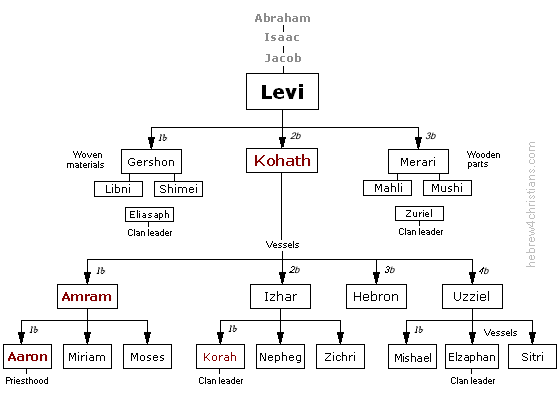 |
Korach's co-conspirators were two brothers named Dathan and Abiram from the tribe of Reuben, Israel's firstborn son. Together, they put together a force of 250 men to confront Moses and to challenge his exclusive claim to leadership: "You have gone too far! For all in the congregation are holy, every one of them, and the LORD is among them. Why then do you exalt yourselves above the assembly of the LORD?" (Num. 16:3).
In response to their challenge, Moses proposed that Korach and his followers bring firepans to offer incense at the Tabernacle to determine whether they were indeed chosen to serve as priests. The following morning, when Korach and his 250 followers assembled at the gate of the Tabernacle to offer incense, God threatened to destroy them all instantly. Moses begged God not to destroy all the people, but only the rebels. He then warned the congregation to stand clear of the dwellings of Korach, Dathan, and Abiram. The earth then opened up and swallowed them alive, and a fire consumed the 250 men who illegitimately offered the incense...
Korach's rebellion introduced outright mutiny and chaos within the leadership of the camp that brought swift and terrible rebuke from the LORD. Nevertheless, the very next day the entire congregation of Israel audaciously began to accuse Moses and Aaron, saying: "You have killed the people of the Lord." When the people looked toward the Tabernacle, however, the Glory of the LORD appeared, where God descended to tell Moses and Aaron that he was going to destroy the Israelites for their treason. Despite Moses and Aaron's fervent intercession, however, a deadly plague broke out among the people. Moses then instructed Aaron to take his firepan with incense and to bring it in the midst of the congregation to make atonement for them. Aaron did so, "and he stood between the dead and the living; and the plague was stayed." The Torah tells us that 14,700 Israelites died because of the plague, not including the deaths of those involved in the rebellion of Korach.
As a final test to vindicate Aaron as God's chosen priest, each of the twelve tribal heads of Israel, as well as Aaron himself, were instructed to bring their staffs to Moses. Moses then inscribed their names on each staff and brought them into the sanctuary before the ark of the testimony. "And the staff of the man whom I choose shall sprout. Thus I will make to cease from me the grumblings of the people of Israel, which they grumble against you." The following day Moses went into the Tabernacle and "behold, the staff of Aaron for the house of Levi had sprouted and put forth buds and produced blossoms, and it bore ripe almonds." He then brought out all the staffs and gave them back to each of the tribal leaders. God then told Moses to return Aaron's staff to the Tabernacle as a testimony for generations to come.
Faith's Deeper Seeing...

06.24.22 (Sivan 25, 5782) Our Torah portion for this Shabbat (i.e., Shelach) begins: "The LORD spoke to Moses, saying, 'Send for yourself (שְׁלַח־לְךָ) men to spy out the land...'" (Num. 13:1-2). Finally, after all that the LORD had done for his people -- redeeming them from slavery, providing them miracles of manna and living water, and making covenant with them to be his set apart people -- the Israelites were given the opportunity to enter the promised land! The vision of Zion was about to be fulfilled! And yet the people faltered; the reports of the spies discouraged and blinded them... In this connection, the sages taught that the Book of Ezekiel begins: "The heavens were opened and I saw visions of God," the first letters of which may be arranged to spell the Hebrew word for "faith" (אמונהֹ). Faith is a deeper type of seeing by which we are enabled to apprehend truth about reality...
Hebrew Lesson:
Ezekiel 1:1b reading (click):
Words of the Heart...

06.24.22 (Sivan 25, 5782) Our hearts speak the language of "poetry," using poetic expressions of truth, since declarative words are never enough to convey the heart of the matter. When God created the heavens and the earth, he "sang" them into being - the words he used composed a song - and its melody resounds with the emotional weight of his grace and his glory. Therefore we can speak of the "poetry of creation" - its meaning, form, sound, rhythm - expressing the artistry of God as the Creator (Psalm 19:1-4). The various psalms of the Bible are also musical and lyric (i.e., to be accompanied with a lyre), because prayer, meditation, and worship are expressed in the hue and color of emotional feelings, or the language of the heart... These include expressions of praise, cries of lament, sighs for deliverance, and so on. In fact, poetic language is found throughout the Scriptures. Consider the various metaphors, similes, hyperboles, symbols, allusions, equivocations, parables, allegories, prophetic signs and visions - all formed from words of the heart.
The Hebrew prophets often used poetic expression in their messages: "Let judgment run down as the waters / and righteousness as a mighty stream!" (Amos 5:24). Moreover dirges (kinnot) and lamentations are expressed poetically in the Scriptures. For example, the Book of Lamentations is an acrostic poem chanted using a rhythmic formula of a long line followed by a shorter line to evoke feelings of sorrow and woe.
We sometimes want to talk about God "theologically," using language of fact or "objectivity," though it's important to remember that God is a Person, a Subject, and the Bible often uses anthropomorphic language to help us connect with him. The sages said "Torah is written in the language of men." The words of God are often emotional, passionate, and vibrate with meaning and feeling - words of the divine pathos for us. The message of the gospel, the "story" of God's astounding love for us, is a message from his heart to ours... It is the greatest story ever told, full of mystery, suspense, romance, heroism, sacrificial love, the very depths of sorrow, the ecstasies of joy, and so on.
Shabbat shalom, chaverim. May your heart pulse and yearn for the beauty of the Lord; may you cry out for his presence in your life; may you find your utmost good and blessing in him. May you cry out with all of your heart to the LORD your beloved Redeemer: "Whom have I in heaven buy You? and there is nothing on earth I desire beside you" (Psalm 73:25).
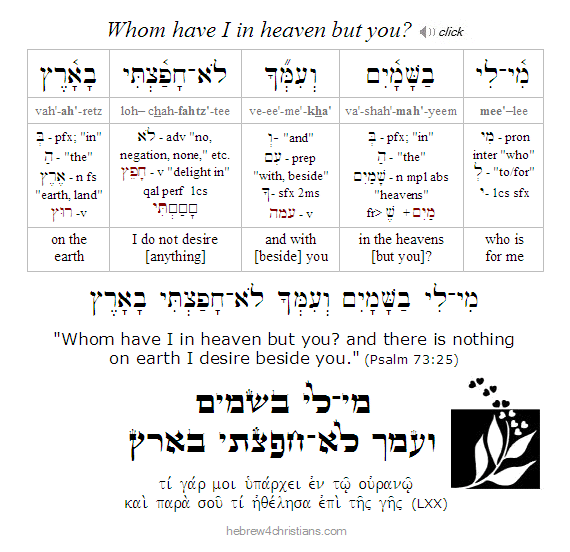 |
Near to the Brokenhearted...
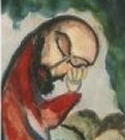
06.24.22 (Sivan 25, 5782) "My eye grows dim through sorrow; every day I call upon you, O LORD; I spread out my hands to you... Help me, O LORD my God; save me according to your love" (Psalm 88:9; 109:26). Such words pierce through the clichés and chatter about religion, theology, and so on, voicing the lament of a soul in trouble, desperately crying out to God for help... The language of prayer is often quickened by affliction and trouble, for the heart senses it must find God or die. "The troubles of my heart are enlarged..." (Psalm 25:17). "Heal me, O LORD, and I will be healed..." for if you will not help, O Lord, then I will perish; I will be consumed in my grief, I will waste away in the void of darkness... "Why is my pain unceasing, my wound incurable, refusing to be healed? Will you be to me like a deceitful brook, like waters that fail?" (Jer. 15:18). O Lord, "I am poor and needy; my heart is pierced within me" (Psalm 109:22). During hours of pain or mental anguish prayer becomes spontaneous, raw, unscripted and devoid of empty words. Anguish moves us right to the point, bypassing other concerns, distilling the heart's cry for God's help.
If you feel overwhelmed, pour out your heart in prayer... It is not the words of the prayer that matter as much as it is the fervor, the intensity of the heart, and the passion that yields itself before God. "Blessed are they that mourn, for they shall be comforted" (Matt. 5:4). "The LORD is near to the broken of heart and saves the crushed in spirit" (Psalm 34:18).
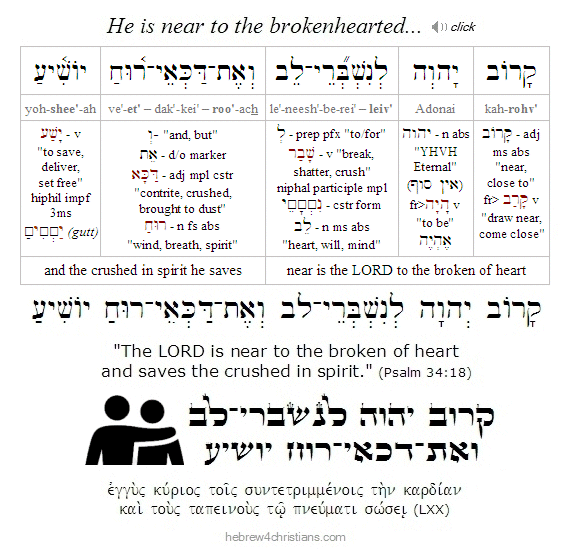 |
Comfort from the Shepherd...

06.24.22 (Sivan 25, 5782) The Spirit of the Lord comforts and reassures those who trust in Him: "My sheep hear my voice, and I know them, and they follow me. And I give them eternal life (חַיֵּי עוֹלָם), and they will never perish - no, never! - and no one will snatch them out of my hand" (John 10:27-28). Note that the Greek grammar in this verse uses a "double negation," which is the strongest way to deny something. In other words, if the question were asked, "Will one of these sheep perish?" the answer is emphatic: "No, no, it will never happen! It is unthinkable!" Indeed all those who belong to Messiah "shall never, ever perish - not into eternity (εἰς τὸν αἰῶνα)." It is an eternal certainty that you who are trusting in Yeshua will never perish, and no power in heaven or earth will be able to take you out of God's hand... "Surely goodness and mercy shall pursue you all the days of your life, and you shall dwell in the Presence of the Lord forever (Psalm 23:6).
Regarding the certainty of salvation Yeshua said: "I tell you the solemn truth, the one who hears my message and believes in the One who sent me has (i.e., ἔχει, present active indicative) eternal life and will not be condemned, but has passed over (i.e., μετά + βαίνω, lit., "crossed over" [עָבַר]) from death to life" (John 5:24). Note that the verb translated "has passed over" (μεταβέβηκεν) is a perfect active that expresses completed action: "this one has already passed over from death to life." In other words, it is an accomplished spiritual reality though it is only experienced as we surrender to the love and grace of God. As the apostle Paul later summarized: "For it is by grace you have been saved (i.e., σεσῳσμένοι, a perfect passive participle that denotes completed action done on your behalf with effects that continue to the present) through faith, and this not from yourselves, it is the gift of God, not a result of works, so that no one may boast" (Eph. 2:9-10). Ultimately, salvation is a question about who you really are, not about what you do....
God does not want us uncertain or unsure of His great love for us. A fearful believer explained that he was anxious about his acceptance before heaven. When he was asked to define "salvation," he answered, "freedom, deliverance, rest, peace." So you think fear will help you do away with your fear? You are fearful of the idea of freedom from fear?
"Be strong and of good courage" - chazak ve'ematz (חֲזַק וֶאֱמָץ). The LORD God promises "never to leave you nor forsake you," and to be with you wherever you go (Josh. 1:5,9; Heb. 13:15, Psalm 139; Matt. 28:20). In the Greek New Testament the wording of Hebrews 13:15 is highly emphatic: "Not ever will I give up on you (οὐ μή σε ἀνῶ); no, not ever will I leave you behind (οὐδ᾽ οὐ μή σε ἐγκαταλίπω)." May you hear the voice of the Good Shepherd calling you, and may He forever keep you under His watchful care. Amen.
Hebrew Lesson:
Psalm 23:6 reading (click):
Visions of the Far Country...

06.24.22 (Sivan 25, 5782) When he was asked when the kingdom of God would come, Yeshua answered: "The kingdom of God is within you" (Luke 17:21). The Pharisees were looking for an earthly kingdom, something political, something of this world, but Yeshua taught that the kingdom of God was a matter of the heart - an inner reverence, a spiritual awakening, a rapturous mystery, a supernatural peace.... "Seek first the kingdom of God and his righteousness, and all these things shall be added to you." The righteousness of God given in Messiah reveals the kingdom of God to the seeking heart, but those who do not esteem the King will be unable to discern the secret grace of his kingdom. The question is not about an outside dominion but whether the divine life and Spirit reign within you.
Hebrew Lesson
Isaiah 33:17 reading (click):
Source of our Strength...
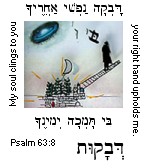
06.23.22 (Sivan 24, 5782) It is not my faith that moves mountains, but the One who has the power to do so that matters... The "mustard seed" of faith is the witness of God's miracle. Likewise it is not the strength of my grip that keeps me holding on, but the strength of His, as it says, "The Lord is the strength of my life" (Psalm 27:1).
Hebrew Lesson
Jeremiah 17:7 reading (click):
Rejoicing in the Truth...
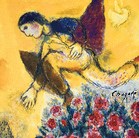
06.23.22 (Sivan 24, 5782) If God is as we believe -- our Almighty Creator, our Righteous King, our Merciful Redeemer, and our Compassionate Savior -- the sacred Beginning and End of our existence, the Holy Center of our life, our great Heavenly Father who emptied himself of all divine prerogative and gave up everything to seek and to save us from death, the one who has delivered us from the terrors of hell by absorbing our shame and setting us free; the one who now reigns in everlasting glory and overmastering power as our Healer, and who providentially ordains our way to ensure that we shall never be apart from his love, so that we shall be with him forever in heaven, and that "all shall be well, and all manner of thing shall be well".... If, I ask, our Lord is as we believe, then surely we must celebrate the gift of the life that he has given to us. Everything must be grounded in joy, even our brokenness and sorrows (Phil. 4:4). In all things give thanks, for this is God's will concerning you.
Despair, on the other hand, is the denial of reality, that is the denial that God has indeed redeemed us, called us by name, and regards us as his beloved. Note that despair in this sense does not necessarily mean having feelings of hopelessness or depression (though it might), because the happiest of people are in despair if they are blind to the truth about ultimate reality. In other words, despair is an "ontological condition" of the soul, and those who are in despair are lost to reality regardless of whatever their present emotional state.
For the believer in the love and reality of God as revealed in the life and message of Yeshua the Messiah, however, we must be careful to resist the temptation to harden our hearts through unbelief (Heb. 3:12). Of course we all experience times of testing; times of struggle; various sorrows, harrowing grief, and poignant heartache, and I am not suggesting that we should be in an "up" mood at all times. We are "sorrowful yet ever rejoicing," and that means we are able to sound the depths of our troubles and discern the "Everlasting Arms" that uphold our way... Nevertheless we should carefully guard our inner life and tend to our hope. We should run from the darkness of doubt as we would run from death itself...
In light of these things, please take a moment to inwardly reaffirm your faith in God and to rehearse your trust in his promises. Tell the Lord how much you need him and how much he means to you. Let him know how thankful you are that he has personally redeemed you and called you by name so that you now belong to him forever....
Hebrew Lesson
Isa. 43:1b Hebrew reading (click):
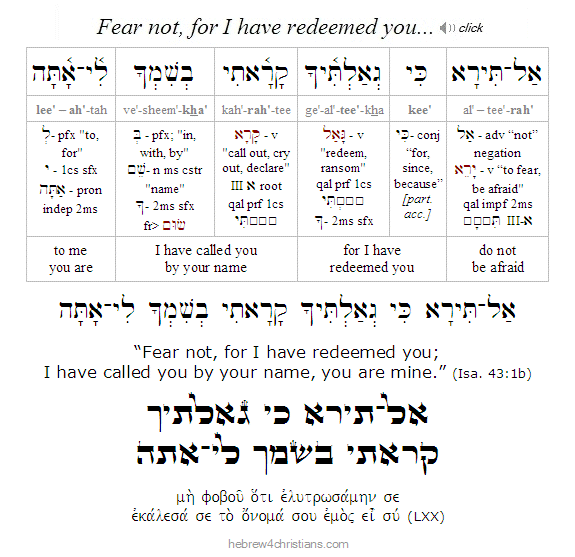 |
The Love of Truth...

06.22.22 (Sivan 23, 5782) Christian (and Jewish) theology insists that truth matters, and knowing the truth about God is absolutely essential for life itself. Nothing is more important; nothing more vital. "This is eternal life (חַיֵּי עוֹלָם), that they may know you, the only true God (אֶל־אֱמֶת), and Yeshua the Messiah (יֵשׁוּעַ הַמָּשִׁיחַ) whom you have sent (John 17:3). The truth sets us free; it is the unbreakable seal that bears witness of reality. In the Gospel of John it is recorded that Yeshua said, "I am the way, the truth, and the life" (i.e., ᾽Εγώ εἰμι ἡ ὁδὸς καὶ ἡ ἀλήθεια καὶ ἡ ζωή). The Greek word translated "truth" in this verse is aletheia (ἀλήθεια), a compound word formed from an alpha prefix (α-) meaning "not," and lethei (λήθη), meaning "forgetfulness." (In Greek mythology, the "waters of Lethe" induced a state of oblivion or forgetfulness.) Truth is therefore a kind of "remembering" something forgotten, or a recollecting of what is essentially real. Etymologically, the word aletheia suggests that truth is also "unforgettable" (i.e., not lethei), that is, it has its own inherent and irresistible "witness" to reality. In that sense light is a metaphor for truth: "The light shines in the darkness, and the darkness has not overcome it" (John 1:5). There can be no truth apart from moral reality. People may lie to themselves, but truth has the final word.
Greek scholars further note that the word lethei itself is derived from the verb lanthano (λανθάνω), which means "to be hidden," so the general idea is that a-letheia (i.e., truth) is non-concealment, non-hiddenness, or (put positively) revelation or disclosure. Thus the word of Yeshua - His message, logos (λόγος), revelation, and presence - is both "unforgettable" and irrepressible. Yeshua is the Unforgettable One that has been manifest as the express Word of God (דְּבַר הָאֱלהִים). Yeshua is the Light of the world (אוֹר הָעוֹלָם) and the one who gives us the "light of life" (John 8:12). Though God's message can be suppressed by evil and darkened thinking, the truth is self-evident and intuitively certain (see Rom. 1:18-21).
We have a moral imperative, given by God Himself, to receive the truth and to live according to the nature of spiritual reality. Those who reject or suppress the truth, however, are responsible for their actions, as it is written, "No one who practices deceit shall dwell in My house; no one who utters lies shall stand before my eyes" (Psalm 101:7).
Hebrew Lesson
Psalm 101:7 Hebrew reading (click):
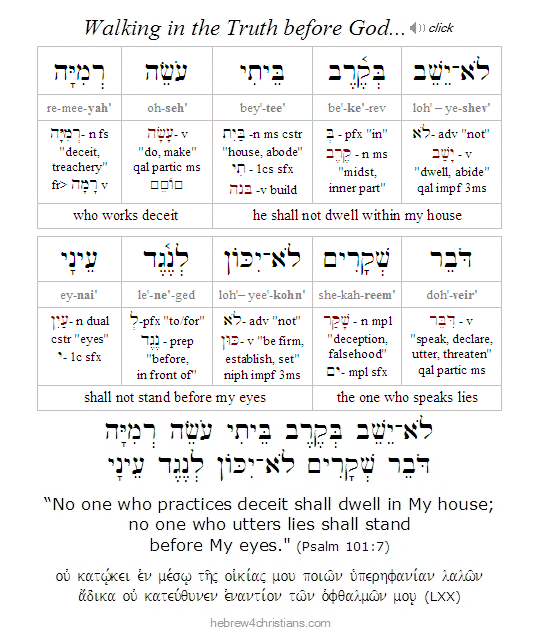 |
The Torah of Job...
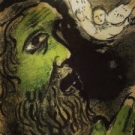
06.22.22 (Sivan 23, 5782) The Book of Job (ספר איוב) teaches us that in the midst of trouble we should not focus on the devil but on God who alone can deliver the soul from evil. In his great struggle not once did Job blame the devil (or other people, or bad luck, etc.) for his woes but he constantly appealed to God for help. Job understood that all that happened to him - the good as well as the bad - came from God, and therefore to God alone he made appeal for solace and deliverance.
Hebrew Lesson
Job 2:10b Hebrew reading (click):
God may not be the "efficient cause" of evil in the world, though he obviously "permits" it and ultimately overrules it for his own purposes. Job understood this, and throughout his agonizing ordeal he never once blamed others, including Satan, but wrestled with God alone for vindication. Job was "perfect" and "blameless" before the LORD, and in the end, he was indeed vindicated, despite questioning God in the midst of his suffering.
The Rise of Global Fascism...

06.22.22 (Sivan 23, 5782) In light of the ever-creeping techno-fascism of this evil generation, we wonder how long before politically motivated "censorship" will cross boundaries from various social media platforms to any "offensive content" on any publicly accessible website whatsoever... Indeed this is already happening as we see search engine services delivering filtered results (i.e., "shadow-banning"), Internet browsers tagging web sites as "unsafe," and so on. Moreover, the prevailing characteristic of our age is one of moral and intellectual stupor, and indeed we are now living in what may be called the "Age of Stupidity," a prophesied time wherein God gives worldly culture over to strong delusion - and people are deranged and unfeeling for lack of the truth. It's a perilous time, and for all the more reason should we pray with fervor for the lost to saved before time runs out...
"The Messiah will only come when he is no longer needed" (Franz Kafka), which is to say the Messiah will come when humanity has collectively decided that they no longer want Him. As it was in the days of Noah... as it was in days of Lot (Luke 17:26-30). "When the Son of Man comes, will he find faith on earth?" (Luke 18:8).
Regarding the princes of this world and their various machinations of evil, there is a Scriptural prayer to the LORD God of all power (יהוה אלהים צבאות) that may be offered in times of oppression and persecution by our enemies: "O our God, will you not execute judgment? For we are powerless against this great horde that is coming against us. We do not know what to do, but our eyes are upon you" (2 Chron. 20:12).
Hebrew Lesson
2 Chron. 20:12b Hebrew reading (click):
Trust and Suffering (אמון וסבל)

06.21.22 (Sivan 22, 5782) Sometimes in our afflictions we may feel lost, confused, and uncertain of ourselves. We dare not doubt God's love for us, though we may wonder how He might use such affliction to mend our hearts... As C.S. Lewis once said, "We are not necessarily doubting that God will do the best for us; we are wondering how painful the best will turn out to be" (Letters of C.S. Lewis, 1964). There is a trust issue in suffering, and an intimacy that is gained through its fires. As Kierkegaard reminds us, "It is one thing to conquer in the hardship, to overcome the hardship as one overcomes an enemy, while continuing in the idea that the hardship is one's enemy; but it is more than conquering to believe that the hardship is one's friend, that it is not the opposition but the road, is not what obstructs but what develops, is not what disheartens but ennobles" (Four Upbuilding Discourses, 1844).
Amen. If you can't detect God's hand in your circumstances, then trust His heart... The heart of faith affirms: gam zu l'tovah (גַּם זוּ לְטוֹבָה): "this too is for good," particularly when the present hour may be shrouded in darkness... Whenever I am confused about life (which is often enough), I try to remember what God said to Moses after the tragic sin of the Golden Calf: "I will make all my goodness pass before you and will proclaim before you my Name, 'The LORD' (יהוה). And I will be gracious to whom I will be gracious, and will show mercy on whom I will show mercy" (Exod. 33:19). God's character does not change: the LORD is the same "yesterday, today, and forever." The meaning of the Name, however, cannot be known apart from understanding the need of the heart:
יְהוָה יְהוָה אֵל רַחוּם וְחַנּוּן
אֶרֶךְ אַפַּיִם וְרַב־חֶסֶד וֶאֱמֶת
Adonai Adonai El ra·choom ve·chan·noon
e'·rekh a·pa'·yeem ve·rav-che'·sed ve·e·met

"The LORD, the LORD, a God merciful and gracious,
slow to anger, and abounding in steadfast love and faithfulness."
(Exod. 34:6)
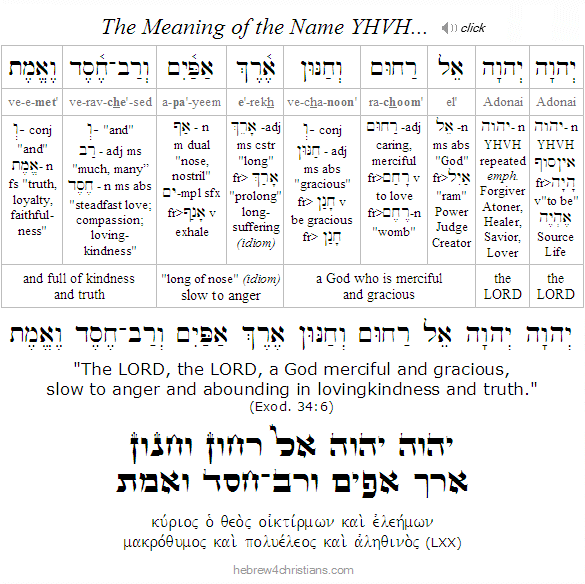
Recall that at the time of the awesome encounter at the "burning bush" (הסנה הבוער) God had revealed to Moses that the Name YHVH (יהוה) means: "He is Present" (i.e., the name is a play on the Hebrew verb hayah [הָיָה], "to be"), and therefore signifies that God is "always there" (see Exod. 3:14). The great I AM (אֶהְיֶה) means God stands outside of the constraints of time, "one day is as a thousand years" and "a thousand years as one day" before Him (2 Pet. 3:8). Just as a thousand years is but "a watch in the night" (Psalm 90:4), so one day is as a thousand years. God's Spirit broods over all things and sustains the entire universe. God is "necessary being," the Source of Life, and foundation for any other mode of existence. God's creative love and power sustain all things in creation...
Now while the idea that God is the Source of all life in the universe is surely important, it is not entirely comforting, especially in light of man's guilt and anxiety over death. After all, we do not stand before the "god of the philosophers," but rather the personal God of Abraham, Isaac, and Jacob. Therefore the meaning (or definition) of the Name YHVH - that He is merciful, gracious, slow to anger, abounding in love and truth, and so on - presents additional revelation in light of man's inherent brokenness and spiritual need. Some things in life are only known in the passion of faith... things like love, beauty, honor, and so on. The Name of the LORD as the Compassionate One is only known in humility, when all human pretense is stripped away and the inner life is laid bare in its desperate need. The Name YHVH is God's response to the heart's cry for deliverance, for compassion, for mercy....
What is God like - what is His heart - is the first question, and how we answer that will determine how we deal with all the other questions that come up in theology... What do you feel inside when you stare up at the ceiling before you go to bed? In light of the ambiguity and heartaches of life we might wonder if God is there for us. Does God care? Is He angry at me? Does He really love me? This is the raw place of faith, where we live in the midst of our questions. The Name YHVH means "He is present," even when we are unconscious of His Presence in the hour of our greatest need.
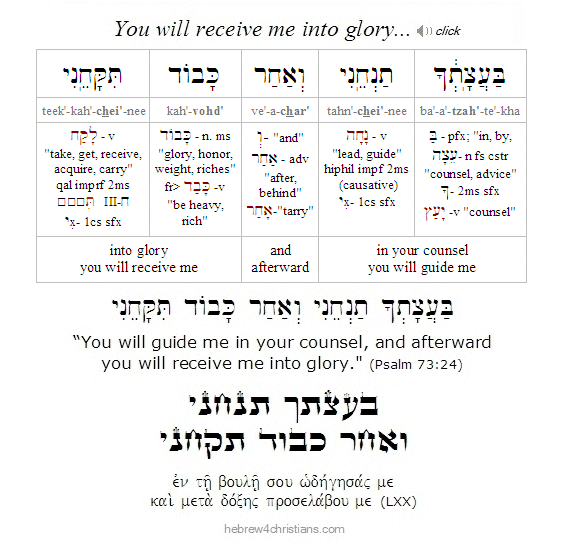 |
 |
The Battle belongs to the LORD...

06.21.22 (Sivan 22, 5782) Shalom beloved follower of Yeshua. The End of Days are fast upon us, and we may feel powerless to stop the wholesale slide into global insanity. Indeed, we are surrounded by an evil horde; we are oppressed and beset by those who have no fear of the LORD God before their eyes; faith in the Living God is openly mocked and marginalized; those who stand for truth are now regarded as enemies of the godless world order...
However, when he was surrounded by hostile worldly powers that defied the reality of the LORD, righteous King Yehoshofat prayed: אֱלֹהֵינוּ לֹא נֵדַע מַה־נַּעֲשֶׂה כִּי עָלֶיךָ עֵינֵינוּ - "O God, We do not know what to do, but our eyes are upon You..." (2 Chron. 20:12). The Spirit then answered words of comfort: 'Do not be afraid and do not be dismayed at this great horde, for the battle is not yours but God's" (2 Chron. 20:15). Amen, the battle belongs to the LORD!
Therefore let us likewise make appeal to the God of our salvation (אֱלֹהֵי יִשְׁעֵנוּ) and focus our hearts upon Adonai Tzeva'ot (יהוה צְבָאוֹת), the LORD God of all power. Let us trust Him to impart to us special grace and wisdom for "such a time as this." Above all, may we hold fast to our confidence that the struggles we face are working within us an "eternal weight of glory." Amen, God shall guide us with his counsel and afterward receive us into glory (Psalm 73:24).
Hebrew Lesson
Exodus 14:14 reading (click):
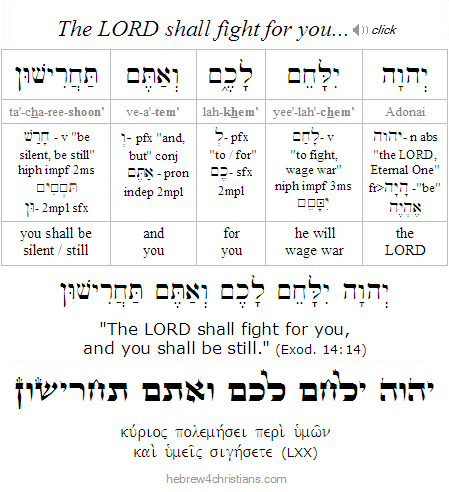 |
The Bread of Affliction...
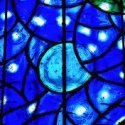
06.21.22 (Sivan 22, 5782) Just as God humbled Israel with manna in the desert, so He humbles us. "Give us this day our daily bread and deliver us..." The purpose of affliction is ultimately good and healing: God humbles us with manna, the "bread of affliction, so "that he might make you know that man does not live by bread alone, but man lives by every word that comes from the mouth of the LORD" (Deut. 8:3). We do not live to eat but eat to live: eating is the means by which we are given strength to pursue the truth, and God often uses tzuris to humble us to do teshuvah and receive the his blessing. We often pray that our problems be taken away, but God sometimes ordains these very problems so that we will turn and draw near to Him... We are being weaned from this present age to be readied for heavenly glory, for things unimaginably wonderful, soon to be revealed to you. Stay strong in the Lord, friends.
True Contentment (שְׂבִיעוּת רָצוֹן)

06.21.22 (Sivan 22, 5782) Friends, let us ask the LORD to give us hearts that are full of godly contentment, which is "of great gain" (1 Tim. 6:6). May we be walking in true spirituality (רוּחָנִיּוּת) - in the power of the Holy Spirit (רוּחַ הַקּדֶש) - by practicing emotional honesty with ourselves and with God (James 5:16). Trials and tribulations - the "squeezing of grapes" - are part of the walk of faith, but we are invited to come "boldly" before the Throne of Grace (παρρησίας τῷ θρόνῳ τῆς χάριτος) to find help for our lives (Heb. 4:16). Note that the word translated "boldly" in this verse (παρρησίας) means that we can speak honestly and freely to God from the center of the chaos of our hearts -- without fear or shame. We don't need to conceal ourselves from the Divine Light, since this is the very Light that overcomes the hidden darkness within us. Those who accept that God is in complete control of their lives are set free from the terrible burdens of fear and anger. Abiding in the truth of ahavah shlemah (אַהֲבָה שְׁלֵמָה, God's "perfect love") means that you can let go...
The Name of the LORD is "I-AM-WITH-YOU-ALWAYS" (אני איתך תמיד), which implies that we always live within God's Presence and care, even if we are sometimes unconscious of this truth (Matt. 28:20). The Heart of God cries out, "Behold I have engraved you on the palms of my hands" (הֵן עַל־כַּפַּיִם חַקּתִיךְ; Isa. 49:16). Remember the One who stretched out his hands and died for your healing; remember that he said, "Do not be anxious about tomorrow... sufficient for the day is its own trouble" (Matt. 6:34). Again, "do not be anxious for any reason, but in everything by prayer and supplication with thanksgiving let your requests be made known to God, and the healing peace of God (שְׁלוֹם אֱלהִים) - the very shalom of heaven which surpasses all understanding - will guard your hearts and your minds in Yeshua the Messiah" (Phil. 4:6-7). "He's got the whole world in his hands," and we experience inner peace when our minds are settled on Him (Isa. 26:3).
Hebrew Lesson
Isaiah 26:3 reading (click):
 |
The Crowd and its Spies...
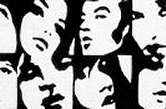
06.20.22 (Sivan 21, 5782) According to Numbers Rabbah (a medieval commentary on the Book of Numbers), even those Israelites who disagreed with the majority in the incident of the spies were decreed to die in the desert because they were unwilling to take a stand for the truth, as did Joshua and Caleb. As Dietrich Bonhoeffer once wrote, "Silence in the face of evil is itself evil: God will not hold us guiltless. Not to speak is to speak. Not to act is to act." Or as Edmund Burke is famously reported to have said, "The only thing necessary for the triumph of evil is for good men to do nothing."
In most cases, the dynamic of the crowd (or mob) brings out the worst in human nature, inducing cowardly irresponsibility, appeals to selfishness, and even acts of violence. Soren Kierkegaard warned, "Going along with the crowd" weakens the individual's sense of responsibility by placing it in a "fractional" category. Personal responsibility for living out moral truth is negated by appeals to "consensus" or the "greater good" principle (or worse, by simply "going along with the crowd"). Like Pontius Pilate, most people disingenuously "wash their hands" by conceding to the mob and its lies.
"When we're less accountable we tend to behave in ways we wouldn't," he said. "If I'm among thousands of celebrating people and I were to throw a beer bottle against a brick wall, you'd have a hard time picking me out." ("Sports Riots: The Psychology of Fan Mayhem," National Geographic magazine)
The crowd induces a "gang" mentality (group think) that appeals to the lowest common denominator of depraved human nature, preying on our vulnerability to feel "included," a part of something bigger than ourselves, or sometimes by appealing to our desire to hide ourselves to be unseen, an abstract person, and therefore "anonymous." Its seduction is based on our need for security, though its "reasoning" is inherently fallacious, since it is based on emotion rather than on truth. To the politician or other instigator, the applause or hiss of the crowd are the means of bullying human passions....
"So if we see someone throw a beer bottle and it draws cheers from our group members who we're really identifying with at the time, we might be apt to match that behavior or up it" (ibid.)
Often demagogues tell part of the truth in order to win the crowd. When the ten spies returned to deliver their evil report, they did not lie per se. When they reported that the "land eats up its inhabitants" (Num. 13:32), they referred to the high death rate they witnessed in the land. According to the sages (Sotah 35), the Canaanites had a custom not to bury their dead immediately, but would keep their dead in boxes and wait until a prominent person died to perform a large-scale funeral for the community (the prominent soul was thought to escort the others to heaven). However, when the spies witnessed so many dead being buried, they failed to consider that God was already at work, weakening the enemy by bringing deadly plagues upon the land. The spies did not outright lie in this case, though they were misled because they did not understand what God was doing. Their lack of faith (fear) caused them to misinterpret the situation.
In this regard, "truth" extends far beyond the realm of the objective and factual. Not everything that is not a lie (objectively speaking) is therefore the truth. Truth is not superficial but goes beyond the realm of appearance to the realm of the possible. In other words, truth and faith go hand in hand. We "see" according to our presuppositions and underlying convictions. How we see is as important as what we see... Faith sees the promise. As Yeshua said, "According to your faith, be it done unto you" (Matt. 8:13, 9:29).
Sometimes true words and actions performed in an unloving or spiteful manner are morally blameworthy. Bonhoeffer tells the story about how a teacher once humiliated one of her students by standing him up in front of the class to ask whether his father -- notoriously known as the town drunk -- had been out drinking the night before. The little boy knew the accusation was true but bravely announced "No." When the teacher mockingly asked him again, pressing him for "the truth," the boy was adamant: "NO!" Bonhoeffer's comment was that this little boy spoke more truth by his lie than if he had merely reported the "facts" to the class -- and thereby betrayed the dignity of his father... The truth is not some objective state of affairs that can be reported dispassionately. Without love as its context, such "truth" becomes a lie. Satan keeps his own books.
The way we "see" is determined by how we hear.... The Midrash Rabbah says that the ear (אזֶן) gives life to all the organs of the body. How so? By listening (שׁמע, shema) to the Torah. This idea is repeated in the New Testament: "Faith comes from listening to the Word of God" (Rom. 10:17). The Word of God (דְּבַר־אֱלהִים) is our very life, chaverim. Listening to other voices (regardless of how seemingly well-intended) risks cutting yourself off from the Source of life itself.... Hearing and obeying are linked, and "hearing" the messages of this corrupt world (i.e., "crowd") can eventually make you into an enemy of God Himself (James 4:4). The world always speaks its message to members of its "crooked and twisted generation" (Deut. 32:5). How else do politicians gain their audiences?
In this connection note that the Hebrew word for falsehood (or lie) is sheker (שֶׁקֶר), which the sages note can be rearranged to spell kesher (קֶשֶׁר), meaning a band, gang, or group of people.... The power of the lie is always found in the "group" rather than in the individual, and if enough people in the group repeat something untrue, eventually the individual's conscience will be overruled and the truth will be lost... Consider the propaganda and disinformation constantly served up by the evil princes of mass media, for instance...
Following the LORD is not based on "majority rule," much less does it have anything to do with approval from the anonymous crowd. Indeed, Yeshua was crucified because He would have nothing to do with the crowd (though He addressed himself to all). No one gets to heaven by following a crowd (or attending a church, joining a political party, etc.) but by surrendering their individual will to the reign of Yeshua. "For it is no empty word for you, but your very life, and by this word you shall live" (Deut. 32:47). Following the crowd (world) and following Yeshua are therefore entirely antithetical ways of life that will lead to collision. Guard your heart with all diligence (Prov. 4:23).
May God give us all ometz lev ("strength of heart," i.e., courage) to stand for Him, despite the pressures of this world and its ongoing deception. Amen.
Hebrew Lesson
Psalm 119:29 reading (click):
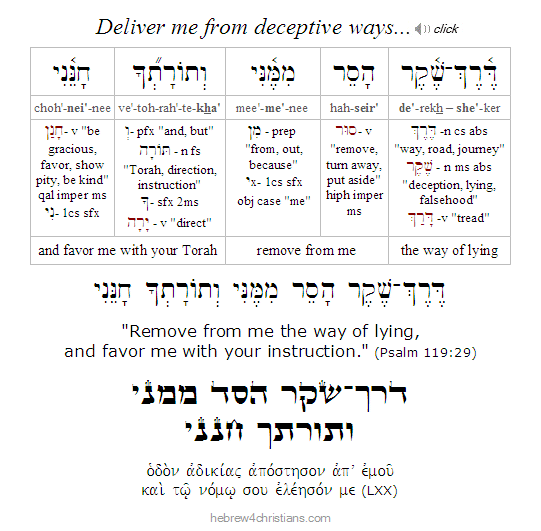 |
Small in our Eyes...

06.20.22 (Sivan 21, 5782) Our Torah portion for this week (i.e., Shelach-Lekha) is a "heavy one" since it reports the "Sin of the Spies" (i.e., chet ha'meraglim: חטא המרגלים) and the subsequent failure of the people to trust that the Lord would take care for them. The people's lack of bittachon (trust) in God is the most serious sin recorded in all the Torah, even more serious than the sin of the Golden Calf (i.e., chet ha'egel: חטא העגל). This is confirmed by the testimony of the New Testament, which presents the fate of the Exodus generation as the dire warning of apostasy for those who claim to follow the Messiah (see Heb. 3:7-4:2).
Trust, then, is the central issue, though in order to trust God, you must believe that you are valuable to Him and that He genuinely desires relationship with you... God redeemed you so you could know and love Him (Isa. 43:1). In this connection it is important to notice that the spies said, "we were in our eyes like grasshoppers" (Num. 13:33). They felt small because they had forgotten the reason for their redemption - they had forgotten how much they meant to God! Their lack of self-respect made them feel unworthy of the inheritance. The sin of the spies was not simply that they doubted they could overcome the "giants in the land," but rather that they were worthy people in God's eyes... Sadly the spies view of themselves was more real to them than God's view of them, and that is why they added, "and so we were (like grasshoppers) in their eyes." From a spiritual point of view, this was profoundly tragic..
One lesson we can learn from the unbelief of the spies is that we must be careful to esteem ourselves properly. We are created be'tzelem Elohim (in the image of God), and that is the starting point for everything else revealed in the Torah. This foundational idea may be expressed as "respect precedes Torah." Self-esteem and self-worth are very important characteristics because they enable the soul to receive the Word of God. This isn't a selfish, narcissistic type of love. If you have no self-worth, then it is likely you will believe the promises of Scripture are for other people, but not for you. You will regard yourself as an "outsider" or "alien" who is without promise of inheritance. So we have to begin there, with the fact that God created you in His image and therefore you are of infinite value. You matter to God - and therefore you must respect yourself. It is no mark of holiness to shame or belittle yourself - notwithstanding your sinful nature - since you have a duty to honor yourself as one of God's created children. Dishonoring yourself violates the central ethical commandment of the Torah: "You shall love your neighbor as yourself" (Lev. 19:18). How can you respect others if you don't respect yourself? You will regard yourself as "insect like" and will tend to view others as "gigantic" threats; you will act defensively and walk in fear of other people.... This is the path of a person living in a prison of fear, and it is a type of hell. Trusting in God's personal love for you presupposes that you are worthy to be loved and that there is a divine inheritance for you. This gives you real courage to go take possession of the land as its rightful heir. Trusting in God means regarding God's view of you as more real than your own. It means allowing yourself to be "drawn close" so that you can be in a genuine love relationship with your Heavenly Father. "From now on, therefore, we regard no one (including ourselves) according to the flesh..." (2 Cor. 5:16).
We "walk by faith, not by sight," which means we must take hold of the promise of God, even in a world that "devours its inhabitants" and that is filled of seemingly invincible giants... Faith believes the possible, even in moments of testing and struggle. As Yeshua said, "All things are possible for the one who believes" (Mark 9:23).
"God is able to make all grace overflow to you, so that having all sufficiency in all things at all times, you may overflow in every good work" (2 Cor. 9:8). May it please God our Heavenly Father to help us esteem ourselves properly so that we can receive, abide in, and walk in the reality and presence of His overflowing love. And may the LORD keep us all from the terrible sin of unbelief by always remembering that we infinitely matter to Him. Amen.
Hebrew Lesson
Isaiah 43:1Hebrew reading (click):
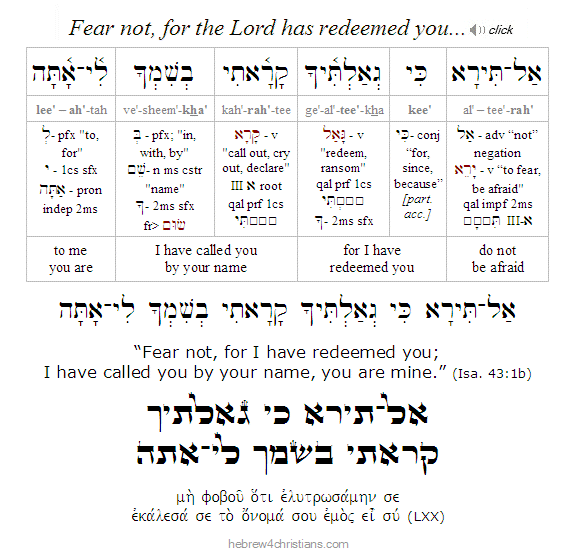 |
Parashat Shelech-Lekha...

[ "To dare is to lose one's footing momentarily. Not to dare is to lose oneself." - Kierkegaard ]
06.19.22 (Sivan 20, 5782) Shavuah Tov, chaverim! Our Torah reading for this week, Shelach Lekha (שלח־לך), recounts how Moses sent twelve spies from the desert region of Kadesh into the land of Canaan to search it out and give a report of its condition. The spies returned 40 days later extolling the land, saying that was indeed fruitful and zevat chalav u'devash (זבת חלב ודבשׁ), "flowing with milk and honey." However, ten of the spies also gave a discouraging report, expressing their fear that the people could not conquer the land. Only Joshua (יהושע) and Caleb (כלב) kept faith in God's promise.
Upon hearing the report of the ten spies, however, the people rebelled and cried out to return to Egypt. Angered by their lack of faith, God sought to destroy the people, but Moses interceded on their behalf. The LORD then decreed to lengthen the Israelites' wandering in the desert to 40 years -- one year for each day the spies were in the land -- until all of the faithless over the age of 20 would die in the desert, except for Joshua and Caleb, the two spies who kept faith with the LORD. After hearing the judgment of God, a group of remorseful Israelites decided to "repent" by taking matters into their own hands. Without either the "Ark of the Covenant of the LORD" or Moses' leadership, they presumptuously decided to storm a mountain on the border of land but were decisively routed by the Amalekites and Canaanites.
If last week's Torah may be called "Sefer Kvetch" (the book of complaint), this week's Torah reveals the fateful outcome... The people's lapse of faith in God's power serves as a profound and very sober warning, and indeed is a primary warning regarding the dreadful sin of unbelief in the New Testament (see Heb. 3:7-4:11). Indeed, Jewish tradition states that the decree that "none of the men who had seen my glorious Presence and my signs I performed in Egypt and in the desert will see the land that I swore to give to their fathers" (Num. 14:22-23) was given on the Ninth of Av (i.e., Tishah B'Av), and was prophetic of the destruction of the Temple and the worldwide exile of the people from the Promised Land. The sin of unbelief may rightly be regarded as the "unpardonable sin" of the Torah...
The tragedy of the sin at Kadesh ultimately has a happy resolution, however, since the LORD is never thwarted by man's sin and weaknesses. After the 38 years of exile were complete, Moses' faithful successor Joshua sent a second spying expedition to the promised land, though this time God led the spies to a prostitute named Rahab (רחב), a direct ancestor of Yeshua the Messiah, who later identified her faith in the LORD's victory by displaying the scarlet cord (i.e., chut ha'sheni: חוט השׁני) during the fall of Jericho (Joshua 2). Rahab was the (grand)mother of Boaz, who later married Ruth, the great grandmother of King David. May God likewise give us courage to walk in the power of His promises, even if our present circumstances seem daunting. May the LORD clothe each of us with the "spirit of David" to stand before all the giants of the land who defy the LORD and His power.
Shelter of Light...

06.17.22 (Sivan 18, 5782) The sages say, "in the world to come (הַעוֹלָם הַבָּא), God will bring the sun out of its sheath to burn the wicked; they will be judged by it, but the righteous will be healed by it' (Shemot Rabbah). Yeshua is compared to the "Sun" because as the Sun is the central luminous body of our world, so Yeshua is called the "Light of Life" (אוֹר הַחַיִּים). Yeshua is melech ha-kavod (מֶלֶךְ הַכָּבוֹד), "the King of Glory" -- and no one can stand before the blinding power of His countenance (Psalm 27:4; Rev. 1:8-19). His is the "Fountain of Light" for all of creation, the Source and End of all life: "For by Him all things were created, in heaven and on earth, visible and invisible, whether thrones or dominions or rulers or authorities -- all things were created through Him and for Him. And he is before all things, and in him all things hold together... that in everything He might be preeminent" (Col. 1:16-18). Yeshua will come "with healing in his wings" -- that is, in healing radiance, with rays and beams, which metaphorically describe His influence over the hearts of men... Note that the word for "wings" used in this passage (i.e., kanaf: כָּנָף) pictures the image of a heavenly tallit (טַלִּית), or the heavenly firmament (רָקִיעַ) of the LORD's sheltering Presence.
Amen, there is a future time of healing and deliverance coming to us, though we must abide in the shadow of its substance for a bit longer: "For behold, the Day is coming (הַיּוֹם בָּא), burning like an oven, when all the arrogant and all evildoers will be stubble. The Day that is coming shall set them ablaze, says the LORD of hosts, so that it will leave them neither root nor branch. But for you who fear my Name, the Sun of Righteousness (שֶׁמֶשׁ צְדָקָה) shall rise with healing in its wings. You shall go out skipping like calves released from the stall. And you shall tread down the wicked, for they will be ashes under the soles of your feet, on the day when I act, says the LORD of hosts" (Mal. 4:1-3).
Hebrew Lesson
Proverbs 18:10 Hebrew reading (click):
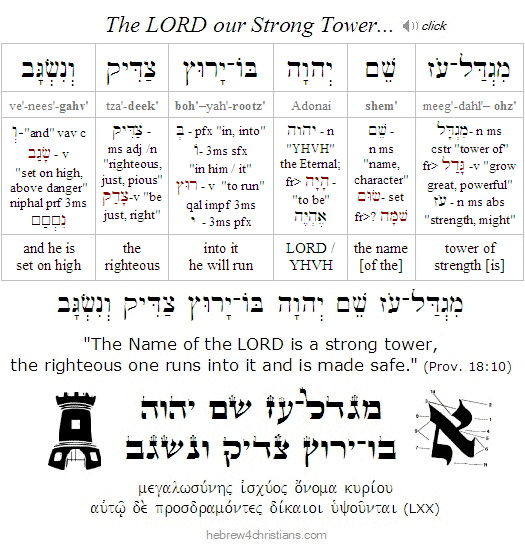 |
Light of the Shamash...

06.17.22 (Sivan 18, 5782) Our Torah portion this week (i.e., Beha'alotekha) begins with the LORD instructing Aaron to kindle the seven lamps of the menorah (מְנוֹרָה) so that the light from each would be "turned" toward its central shaft (Exod. 25:37; Num. 8:4). The entire menorah was formed mik'shah (מִקְשָׁה), that is, beaten from a single piece of pure gold (זָהָב טָהוֹר), and its base, shaft, branches, cups, fruits, and flowers were all "one" with its substance (Exod. 25:31). The central shaft upheld the light of the Shamash (servant or helper lamp) which also served as the trunk for the other branches. The radiance of the menorah symbolized the Divine light (shamash can also be read shemesh, "sun"), which is the radiance of Yeshua, the Tree of Light and the great Servant of the LORD (John 8:12; 1 John 1:5; Prov. 3:18). Yeshua is the light that gives light to every person created in the image of God (John 1:9). Our spiritual life stems from our connection with Him, since he provides us with support, sustenance, and illumination from the oil of the Holy Spirit (John 15:1-5).
Yeshua is the Light of the LORD (אוֹר יי). As it is written, "God is our light and our yeshuah (יְהוָה אוֹרִי וְיִשְׁעִי) our salvation" (Psalm 27:1; 1 John 1:5). He alone is the Light of the world (אוֹר הָעוֹלָם), the Shamash (שַׁמָּשׁ) who descends to ignite the "light of life" (אוֹר הַחַיִּים) within all who will believe. Our Savior is the Radiance (זוֹהַר) of the glory of God (Heb. 1:3), the Fire of God's holy countenance. The one who has the Son has life, but the one who refuses this life is spiritually dead. May we all walk in the Light of His countenance; "O house of Jacob, come, let us walk in the light of the LORD" (Isa. 2:5).
בֵּית יַעֲקב לְכוּ וְנֵלְכָה בְּאוֹר יְהוָה
beIt · Ya·a·kohv · le·khoo · ve·neil·khah · be·ohr · Adonai

"O house of Jacob, come, let us walk
in the light of the LORD"
(Isa. 2:5)

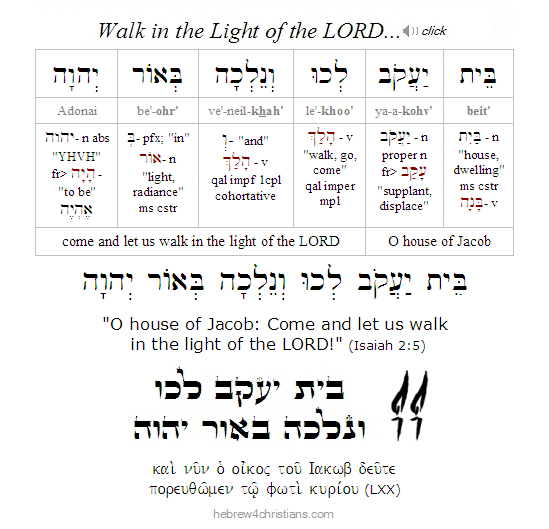
Note: For more on this topic, see "The Menorah and the Tree of Life."
The Divine Light...
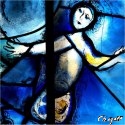
[ The following is related to this week's Torah reading, parashat Beha'alotekha... ]
06.17.22 (Sivan 18, 5782) "If I say, surely darkness covers me ... the night shines as the day; nothing hides from your radiance" (Psalm 139:11-12). We have to trust that God is in our darkness, in the silence, in the unknown... You come out of the shadows when you admit that you act just like other people, that you are human, in need of reconciliation yourself... Above all you need God. You need help. You need a miracle to help you to truly love. You may find excuses for many things, but you cannot escape the "wretched man that I am" reality that is grounded in your fears. God sees in the darkness and is present there, too. When you feel alone, like an unbridgeable gulf lay between you and all that is good; when you feel like you want to scream but are afraid that even then no one would hear, may the LORD shine His light upon you... Amen, may His light shine upon you.
גַּם־חשֶׁךְ לא־יַחְשִׁיךְ מִמֶּךָ
וְלַיְלָה כַּיּוֹם יָאִיר
כַּחֲשֵׁיכָה כָּאוֹרָה
gam-choh'·shekh · loh-yach·shikh · mee·me'·kah
ve·lai'·lah · kai·yom · ya·eer
ka·cha·she·khah · kah·oh'·rah

"The darkness is not made dark to you;
but the night shines as the day:
as the darkness so is the light...
(Psalm 139:12)

"For it is you who light my lamp; the LORD my God outshines my darkness" (Psalm 18:28). There is "depression," and there is the dark night of the soul, and these are different matters, though they may overlap... "Hope deferred makes the heart sick." The dark night of the soul is an experience of trusting God in the darkness yet has a spiritual direction and end. We walk through this darkness with God and learn from him even there...
Hebrew Lesson
Psalm 18:28 reading with comments (click):
Finding Right Desire...

06.17.22 (Sivan 18, 5782) Our Torah portion this week (i.e., Beha'alotekha) recounts the rebellion of the people just after they left Mount Sinai for the Promised Land (Num. 11:1). Instead of joyfully anticipating their promised inheritance, however, the people grew dissatisfied and bored with the prospect of the journey before them. The Sefat Emet noted that just after the people complained to the LORD, they had a "strong craving" (הִתְאַוּוּ תַּאֲוָה), which in Hebrew literally means they "craved a craving" (Num. 11:4). Moses could tolerate the people's desire for food and water, but when they began to actively cultivate their cravings, lusting after the imaginary "free fish" they enjoyed in Egypt (Num. 11:5), he began to realize that the problem was deeper, a matter of the heart... Moses understood that what the people really wanted was impossible, since it involved denying who they were as God's redeemed people. The issue was not about wanting "meat" to eat, after all, but rather hungering after the forbidden, desiring to desire, etc. Creating desires, fomenting a sense of deprivation, and choosing to see yourself as a victim, is a lethal sickness of spirit, a disease of the soul. It is a "burning" (i.e., taberah: תַּבְעֵרָה) that destroys inner peace (Num. 11:3). May God help us understand and seek what truly matters; may he deliver us from self-destruction; and may he help us to be satisfied with the manna he provides. Amen.
Note: For more on this see: "Graves of Craving: Further thoughts on Beha'alotekha."
Opening your Heart...
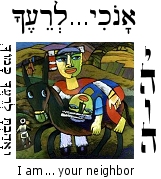
06.17.22 (Sivan 18, 5782) The Hebrew name for the Lord is YHVH (יהוה), an utterly unique word that means "God is Present" (Exod. 3:14) and "God is Love" (Exod. 34:6-7). The Name is first mentioned when the LORD God breathed nishmat chayim (נשמת חיים), the "breath of life" into Adam (Gen. 2:7), and indeed, each of the four letters of the name are vowel sounds, which suggests that God's Spirit is as close as our very next breath. Yeshua likened the Ruach (רוּחַ), or Spirit, with the inscrutable motions of the wind: "The wind blows where it wishes, and you hear its sound, but you do not know where it comes from or where it goes. So it is with everyone who is born of the Spirit" (John 3:8). Just as the wind cannot be seen but encompasses us, so the Spirit of God surrounds and fills us (Acts 17:28). Therefore we see how Yeshua breathed on his followers and said, "Receive the Holy Spirit" (John 20:22).
Allow God to love you. There is nothing left for you to do other than to open your heart and receive. "It is finished," were Yeshua's last words from the cross, meaning, "It has been perfected – it is complete and present for you; there is nothing left to add." Therefore never, ever, give up hope; never believe that you are beyond the reach of God's love. Even in your worst moments, and despite your character defects and your many sins, God's sees what is beautiful and worthy of redemption in you. Yeshua stands at the door and knocks, asking for you to open the door of your heart to receive his love (Rev. 3:20).
When we open our hearts to God's love and Presence, we are set free from the need to justify ourselves or to be approved of by others; we can let go of our fear of rejection and our hopeless perfectionism because we no longer need the approval of others to find our value and worth. God's love sets us free from the trap of comparing ourselves to others, and we are free to "accept that we are accepted" for who we are.
It is a terrifying possibility that we can disallow what we need most of all, and that we can choose the self-imposed exile of a loveless and tragic existence. God forbid that we should miss God's heart for us! Above all, then, we must repent of our self-hatred, of self-abuse, and we must forever repudiate the lie that we are unable to be truly loved and accepted by God... We must begin first of all with God's unconditional love for us revealed at the cross of Messiah, and only then we can move forward spiritually.
May the Lord help us open our heart to His Presence this very hour. Amen.
Faith for the End of Days...
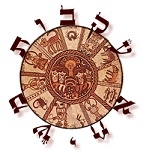
[ Any doubt that the USA (and the entire world) is being prepared for divine judgment can be removed by considering the various evils that have conspired to create the perfect storm of impending disaster for the nations. We are on the edge of the Great Tribulation... ]
06.16.22 (Sivan 17, 5782) Shalom friends. Our Lord foretold that in the "end of days" there would be perilous times -- moral, political, ethnic, and spiritual chaos throughout the world, "as it was in the days of Noah." Of Noah's generation the Torah says: "The LORD saw that the wickedness of humanity was great in the earth, and that every intention of the thoughts of his heart was only evil continually, so that it grieved the LORD to his heart" (Gen. 6:5-6). Indeed, Paul's description of the character of people before the time of the end is chillingly accurate of our present generation (see 2 Tim. 3:1-7).
With the increasing rise of anarchy and godless tyranny throughout the nations, the Scriptures further foretell the rise of a governmental system that would oppress and subjugate the entire world, using surveillance systems and devices to control every aspect of life, so that no one would be able to buy or sell without being tagged as an compliant member of the system. Once a global (cashless) currency system has been established, the prophesied "man of sin" would then arise to embody the presence of Satan on the earth, in mimicry of the advent of the true Messiah.
At first this "man of sin" (איש החטא) will seem to be a man of peace but after his reign is secured, his malice will be revealed by openly persecuting those who still believe in the one true God, causing great tribulation, particularly for the Jewish people. The rise of this "Messiah of Evil" or the "anti-Christ" will be in accordance with the great vision of the prophet Daniel, wherein the final "week" of "seventy weeks of years" is fulfilled...
Presently we are living in the "gap" between the 69th week and the 70th week of years, but we see signs that the gap is now closing, and soon the world will enter into the "tribulation" period... As things get closer to the time of great judgment (יום יהוה), followers of Messiah will be forcefully removed by God's hand (i.e., raptured) either before the tribulation proper begins ("pre-trib"), or perhaps just before the Great Tribulation period ("mid-trib"), the later view being argued because followers of Yeshua will see the rise of the man of sin (2 Thess. 2:3-4). Either way, however, God has not appointed his followers to undergo the unleashing of his wrath upon the world system during the last half of the seventieth week (1 Thess. 5:9), so "post-trib is not a sound eschatological option. The rapture will occur as we are gathered together with the LORD to meet him in the air (1 Thess. 4:16-17).
The 70th week of the vision will begin when the "man of sin" appears to make a "covenant" with the people of the world, though he will later set up an "abomination" and force all world citizens to bow down to its image (perhaps similar to Nebuchadnezzar's insanity to force people to bow down before the golden image of himself; at this time the rapture of followers of Messiah may occur). Like Daniel's three friends who refused to bow down before the image, many will refuse to comply and outright worldwide persecution of the Jewish people will take place. This is called the "time of Jacob's trouble" and the "Great Tribulation." Satan will rule only "until the end that is decreed is poured out on him" and then the great Day of LORD will seal his doom with the second coming of Yeshua (as described in Rev. 19:11-21).
So, in light of this (very brief) sketch of what is coming -- and as the world system becomes more and more tyrannical as it prepares for the arrival of the "messiah of evil" -- how are you walking out your faith? Spiritual warfare is not an option for the life of a follower of Yeshua. How are you keeping free of fear or anger? How are you preparing for the days ahead?
Remember that the evil one "lives" to devour souls, as it is written: "Be sober-minded; be watchful. Your adversary the devil prowls around like a roaring lion, seeking someone to devour" (1 Pet. 5:8). The apostle Paul lists the panoply of armor required for our struggle: "Put on the whole armor of God, that you may be able to stand against the schemes of the devil. For we do not wrestle against flesh and blood, but against the rulers, against the authorities, against the cosmic powers over this present darkness, against the spiritual forces of evil in the heavenly places. Therefore take up the whole armor of God, that you may be able to withstand in the evil day, and having done all, to stand firm. Stand therefore, having fastened on the belt of truth, and having put on the breastplate of righteousness, and, as shoes for your feet, having put on the readiness given by the gospel of peace. In all circumstances take up the shield of faith, with which you can extinguish all the flaming darts of the evil one; and take the helmet of salvation, and the sword of the Spirit, which is the word of God, praying at all times in the Spirit, with all prayer and supplication" (Eph. 6:11-18). In another place Paul refers to this as the "armor of light" (Rom. 13:12). James the Righteous (יעקב הצדיק) gives us remedy by saying: "Submit yourselves therefore to God. Resist the devil, and he will flee from you" (James 4:7).
We are to walk "in truthful speech, and the power of God; with the weapons of righteousness for the right hand and for the left" (2 Cor. 6:7). Let us wear the armor of light (ὰ ὅπλα τοῦ φωτός), being sober (i.e., νήφω, "calm and of sound mind") putting on the breastplate of faith and love; and for an helmet, the hope of salvation" (1 Thess. 5:8). "Therefore, preparing your minds for action, and being sober-minded, set your hope fully on the grace that will be brought to you at the revelation of Yeshua the Messiah" (1 Pet. 1:13).
Hebrew Lesson
Zephaniah 1:14 reading (click):
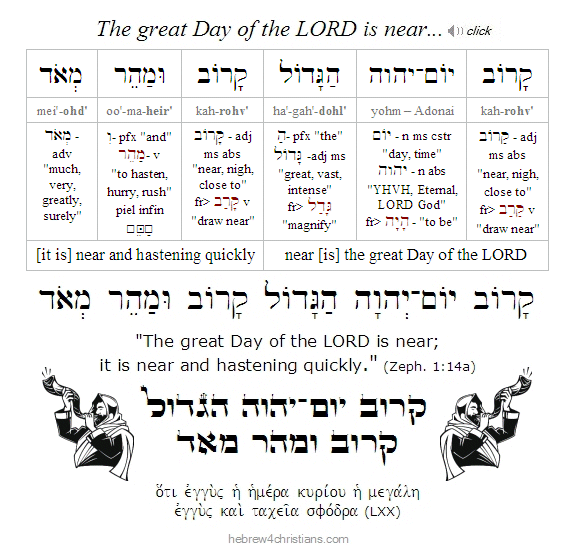 |
Choosing to Believe...

06.16.22 (Sivan 17, 5782) "And now abides faith, hope, love; these three" (1 Cor. 13:13). The opposite of faith is fear; of hope, despair; and of love, indifference. Fear is the "default mode" of the soul that dwells in darkness. This is because the "fallen" soul regards the empirical world and its flux as ultimately real -- and therefore "sees in order to believe." The life of faith, on the other hand, looks beyond the realm of appearances to behold an abiding glory -- and therefore "believes in order to see." How we choose to see is ultimately a spiritual decision for which we are each responsible....
In the geo-political world there are more seemingly good reasons to be afraid today than in any time since the rise of Nazi Germany in the 1930s. Every day the media indoctrinates people about threats of various kinds: plagues (e.g., the bird flu, swine flu, coronavirus, etc.), natural disasters, economic uncertainties, wars and rumors of wars, terrorist plots, and so on. In short, by choosing to engage the "culture of fear" (with its ongoing propaganda campaigns from both the right and left wing perspectives) induces a sense of dread and anxiety (as someone once said, "FEAR" is "False Education Appearing Real"). Just as a lie-detector can physiologically sense when people are telling lies, so our souls can sense when we are believing them... There is no neutral ground here, no "transcendent" place of the soul where we can rise above the realm of contrary truth claims: We will either be set free by the truth or else we will live in fear. As Yeshua said, the "Truth shall set you free."
Of course this isn't easy, and the temptation to yield to fear is ongoing. The test of our faith is of more value to the Lord than our material or emotional comfort, however, and therefore we will all experience tribulation of various kinds. This is the way we obtain heart (i.e., courage). Several years ago I wrote a Hebrew meditation ("Fear Thou Not") that reminded us that the most frequently occurring commandment in Scripture is simply al tirah (אַל־תִּירָא), "don't be afraid." If living without fear were easy, it would be of little spiritual worth, but since it requires all of our heart, soul, mind, and strength, it is therefore considered precious. Faith requires, in short, an infinite (and divinely given) passion. And it part of God's plan for us to be "in but not of" the world system, to be alienated, to be misunderstood, to be persecuted... We are called to "take up the cross" and die daily. Following Yeshua means sacrificing ourselves along the way.
Ultimately worldly fear distills to the fear of death, or rather, fear of "the one who has the power of death, namely the devil" (Heb. 2:14-15). If we come to peace with our own finitude, our own mortality, and our eventual end in the Messiah, however, then death has no more power over us. Perhaps this is part of the reason why those who sincerely live the Christian faith are so hated in communist countries or in other places of absolutist secular ideologies. If you are delivered from the greatest threat that man can menace over you, you are free to be a voice crying in the wilderness. The life of truth is something the humanist and atheist can never comprehend.
Fear is the antithesis of faith, though living without fear is certainly not easy. After all, how do we naturally choose to be unafraid of what we in fact fear? Is this power within our conscious control? Only by a miracle are we set free from fear... Indeed, true faith working within the heart is one of the greatest miracles of God. May it please God to impart to each us real courage that comes from Heaven itself... Amen.
Hebrew Lesson
Isaiah 41:10 reading (click):
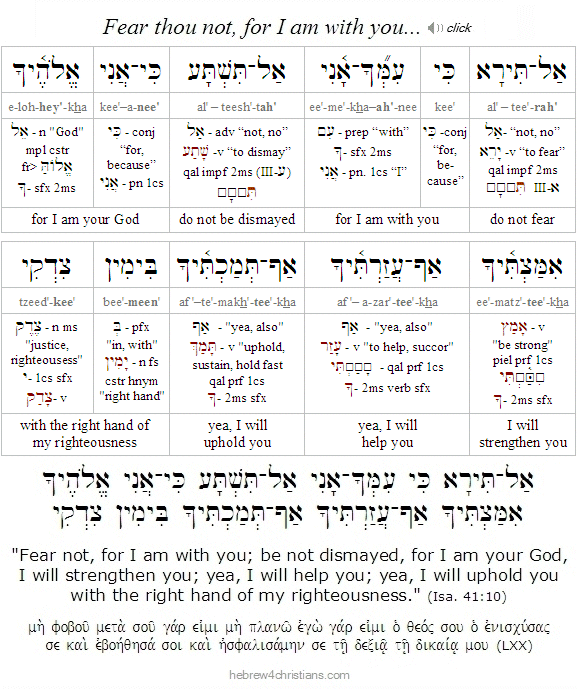 |
The Life of the Seed...
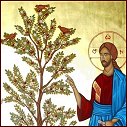
06.16.22 (Sivan 17, 5782) A seed is small, fragile, and seemingly insignificant, yet in the hands of a wise gardener it is understood to be miraculous, able to be perfected and made fruitful. You may feel unworthy, helpless, and forlorn, but you are regarded as blameless and upright because of the miracle of God's life imparted within you, that is, the "holy seed" implanted at your regeneration (see 1 Pet. 1:23). You have a new nature that draws life from heaven as God's own child. And just as a master gardener carefully tends to his planted seeds, so God will tend the divine life sown within your heart. The seed is "hidden" in the soil, unseen by others, yet tended by the gardener who knows its potential to be perfected.
The seed "contains" the essence of the life it replicates. Inside the seed there is an embryo (the baby plant), and when the seed begins to grow, one part of the embryo becomes the (visible) plant while the other part becomes the (hidden) root of the plant. However, the outer shell of the seed must first be broken, and then what appears is the "radicle," or the embryonic root which will develop into a plant. The life cycle of a seed is one of burial and resurrection, of growth and fruitfulness (John 12:24), and the divine life implanted within our hearts will bear fruit: "For by his sacrifice, Yeshua has perfected (i.e., made complete, whole, full of life) all those who are being sanctified" (Heb. 10:14).
Yeshua said, "Be perfect even as your Heavenly Father is perfect" (Matt. 5:48), which of course is an impossibility from a human point of view, but is a corollary of the divine nature implanted within you... The seed within you is perfected to be God's beloved child. You might miss it in the midst of your everyday struggles with fear and the "miasma" of this depraved world, but God is working in you both to will and to do his good pleasure (Phil. 2:12). Like all matters of the Spirit, God's perfection in you comes by faith, not by sight... Only the new heart (lev chadash) created by power of God's Spirit can possibly yield the fruit of the Spirit.
Therefore take heart and do not yield to despair over the mess of your lives. Remember that fruit does not immediately crop up but requires time and its own season... The process of spiritual growth is ultimately mysterious and divine: "The Kingdom of God is like someone who spreads seed on the ground. He goes to sleep and gets up, night and day, and the seed sprouts and grows, though he does not know how. By itself (αὐτομάτη, "automatically") the soil produces a crop, first the stalk, then the head, then the full grain in the head. And when the grain is ripe, he comes in with his sickle because the harvest has come" (Mark 4:26-29).
Trust in God's power to do the miracle. "Now may the God of peace who brought up our Lord Yeshua from the dead, that great Shepherd of the sheep, through the blood of the everlasting covenant, make you perfect in every good work to do His will, working in you that which is well pleasing in His sight, through Yeshua the Messiah, to whom be glory forever and ever. Amen" (Heb. 13:20-21). Amen. " He who calls you is faithful; he will surely do it" (1 Thess. 5:24).
Hebrew Lesson
Proverbs 11:30 Hebrew reading (click):
Trusting God's Providence...
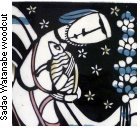
06.16.22 (Sivan 17, 5782) The Scriptures teach us that creation is "teleological," which means that it is "going someplace," and that there is order and purpose to our existence. Your life is not adrift in a random universe that is destined to ultimately fade away but is grounded in the Divine Mind and Will that personally supervises and pervades all things. A lack of emunah (faith) has been likened to a passenger flying on an airplane who doesn't believe there is a pilot in the cockpit... Faith in the LORD believes that a single supreme, all-knowing, all-powerful and benevolent spiritual Power directs all things, and that God is the beginning, middle, and end of all conscious meaning, truth, and substance, as it is written: כִּי הַכּל מִיָּדוֹ הַכּל בּוֹ וְהַכּל לוֹ הוּא, "For from him and through him and to him are all things" (Rom. 11:36). A life of faith in the one true God imparts the blessing of shalom (inner peace) and assures the heart that all shall be made well by the love of God. Everything God does is for the very best, and there are no exceptions to this truth (Rom. 8:28).
Our faith that everything God does is for the best is not some rationalization that denies or minimizes the suffering we encounter in life, but is an affirmation that there is an unseen (though knowable) good at work that ultimately will heal us and comfort our shattered hearts... The phrase gam zu l'tovah (גַּם זוּ לְטוֹבָה) is an affirmation that "this too is for good," and that this "this" includes the various challenges and struggles we face during our days of sojourn here on this earth. Every "down" in life prepares us for an "up," with the ultimate end being beatitude and everlasting joy. Challenges draw us closer to God, igniting our hearts to cry out for his Presence and blessing. Even death itself is a passageway to eternal life (Psalm 16:10; 49:15; 1 Cor. 15:12-58). בַּעֲצָתְךָ תַנְחֵנִי וְאַחַר כָּבוֹד תִּקָּחֵנִי - "You guide me with your counsel, and afterward you will receive me to glory" (Psalm 73:24).
By faith "we know that if the 'tent' that is our earthly home is destroyed, we have a building from God, a house not made with hands, eternal in the heavens" (2 Cor. 5:1). God is our good Shepherd who leads us along the byways of the desert of this world (Psalm 23:4). In God's presence is total and absolute joy; at his right hand there are pleasures forever (Psalm 16:11). As it is written in the sacred testimony of the prophets: "No eye has seen, nor ear heard, nor the heart of man imagined, what God has prepared for those who love him" (Isa. 64:4; 1 Cor. 2:9). The LORD "will wipe away every tear from our eyes, and death shall be no more, neither shall there be mourning, nor crying, nor pain anymore, for the former things have passed away" (Rev. 21:4, Isa. 25:8). God foresees your way and prepares a place for you (John 14:1-3); he has ready a precious white stone with your "hidden" name inscribed (Rev. 2:17); the table is being set and your place has been reserved...
So be encouraged, friend. You do not need to struggle alone – bitter and afraid that you might be swallowed up in your infirmities... God knows the groan of your struggle and invites you to find solace and strength in Him. "It is enough to open your heart the smallest amount - even the width of a pin - to repent, so that you feel a stab within your heart, like a piercing sting in living tissue, not like a needle thrust into dead flesh" (Menachem Mendel of Kotzk). Bittachon (בִּטָּחוֹן) is a Hebrew word that means trust in God... Those who have bittachon do not worry about the future because their faith fully permeates their heart and mind, enabling them to surrender their cares and burdens to the Lord.
Hebrew Lesson
Click and learn how to read Psalm 23:4a:
The Name of the LORD...

06.15.22 (Sivan 16, 5782) The LORD is the Source of all existence. He is the Source that has no source... This is implied in the great Name YHVH (יהוה) itself, which comes from the Hebrew verb "to be" (hayah), and therefore the LORD God of Israel is called ha-hoveh, ve'hayah, ve'yavo (הַהוֶה וְהָיָה וְיָבוֹא) - "the One who is, and was, and is to come" (Rev. 4:8). The LORD first defined His essential Name to Moses as ehyeh asher ehyeh (אֶהְיֶה אֲשֶׁר אֶהְיֶה), "I AM that I AM," abbreviated simply as ehyeh (אֶהְיֶה), "I AM" (Exod. 3:14). This "threefold" Name of the LORD of Hosts encompasses all possible states of being, so that of the LORD alone it is said, melo kohl-ha'aretz kevodo: "the whole earth is full of his glory" (Isa. 6:3).
קדושׁ קדושׁ קדושׁ יהוה צבאות
מלא כל־הארץ כבודו
kah·dosh · kah·dosh · kah·dosh · Adonai · Tze·va·ot,
me·loh · khol - ha·ah'·retz · ke·voh·doh

"Holy, holy, holy is the LORD of hosts;
the whole earth is full of his glory!"
(Isa. 6:3)

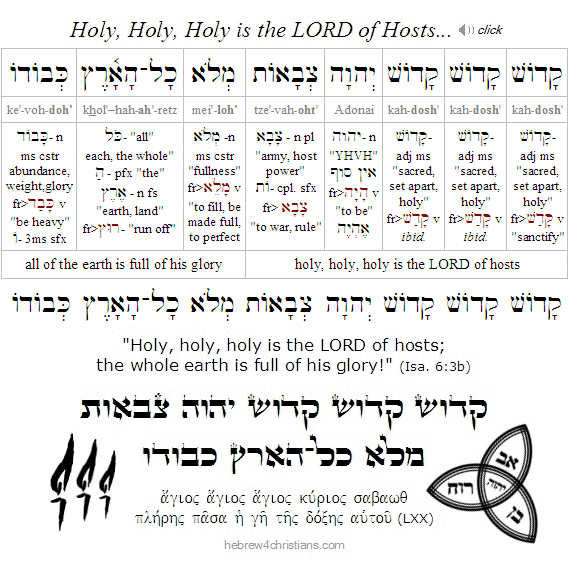
Note that traditional Hebrew spelling for YHVH is marked with feminine vowel ending (i.e., the "-ah" suffix), suggesting that the LORD is the Source and "Womb" of life (the Hebrew word for "mercy" is rachamim, which comes from rechem, meaning "womb"). The Name Elohim (אֱלהִים), on the other hand, uses a masculine ending, and is usually associated with God as the Creator, King, and Judge over all.... The name of God as "El Shaddai" presents an image of the Lord as a nurturing mother to us (the word shadayim [שדיים] means "breasts"). Of course the LORD our God (Adonai Elohim) is beyond sexual differentiation - and therefore God "contains" (or transcends) both "masculine" and "feminine" characteristics, though these are understood analogically, since God is the Creator and Author both. Therefore the LORD is both our Heavenly Father, our Heavenly Mother, our Life-Giving Spirit, and so on. Shalom.
Spirit of Prophecy at Sinai...

06.15.22 (Sivan 16, 5782) Our Torah portion this week (Beha'alotekha) recounts that after the 70 new leaders of Israel were chosen and brought to the Tabernacle, they were given the gift of prophecy (נְבוּאָה): "As soon as the Spirit rested on them, they prophesied, but they never did so again" (Num. 11:25). However, two others (Eldad and Medad) - who had not joined in the religious procession but instead "remained within the camp" - likewise began prophesying, though some people had a problem with this and complained to the leadership. When Joshua then asked Moses to command them to stop, Moses told him that he was not threatened over what was happening, and expressed praise for them saying: "If only all the LORD's people were prophets, that the LORD would put his Spirit on them!" (Num. 11:29; cp. 1 Cor. 14:5). So we see that even under the economy of the Sinai Covenant, the Holy Spirit was to be poured out upon all of God's people, not just the religious elite...
As Martin Buber once wrote, "The men and women of the Bible are sinners like ourselves, but there is one sin they do not commit, our arch-sin: they do not dare confine God to a circumscribed space or division of life, "religion." They have not the insolence to draw boundaries around God's commandments and say: Up to this point you are sovereign, but beyond these bounds begins the sovereignty of science, or society, or the state."
Hebrew Lesson:
Psalm 143:10 Hebrew reading (click):
Love's Greater Freedom...

06.15.22 (Sivan 16, 5782) When one turns to the Lord, the veil is removed. The Spirit of the LORD reveals possibility and genuine freedom (2 Cor. 3:17). The Spirit imparts "vision of heart" to see beyond mere facts to behold value, meaning, beauty, truth, love... Therefore spiritual language is inherently metaphorical and analogical, since it uses finite terms to express longing for the eternal and infinite. The Voice of the Spirit is one of parables, allegories, allusions, love songs, poetry, wooing, and so on, not the description of a state of affairs or "facts," regardless of how seemingly accurate and rigorous such a description may be. The reason for this is that, by itself, knowledge of what "is" will never reveal what "ought" or "can" be, and therefore the description of reality (i.e., law) can never prescribe or wish what reality "should" be like. As Albert Einstein once wrote, "Mere thinking [about facts] cannot give us a sense of the ultimate and fundamental ends. To make clear these fundamental ends and valuations, and to set them fast in the emotional life of the individual, seems to me precisely the most important function which religion has to perform." For instance, an anthropologist may accurately describe tyrannical or genocidal practices of a culture but he can never make a value judgment that tyranny or genocide is morally wrong based on observation alone. Something more is needed to do that, an additional step of faith, since the inherent value and dignity of human life must be assumed for the idea of moral responsibility to be intelligible.
By itself genuine science attempts to observe (or engineer) repeatable sequences of experience, and therefore it is based on the assumption that the future will resemble the past (an assumption, it should be noted, that itself is not directly observed by the scientific method itself). As philosopher Immanuel Kant said, "Concepts without percepts are empty; percepts without concepts are blind." In other words, we bring spiritual assumptions to any possible experience, and that includes the practice of science as well.
For example, even the most hard-boiled scientist exercises faith that: 1) the external world objectively exists, 2) that it is "better" to know than to be in ignorance, 3) that knowing the truth is "possible," 4) that the laws of logic are "valid" (i.e., that a=a and not something else), 5) that some events may "cause" others (i.e., the idea of causality), 6) that measurement is uniform (i.e., that the scientific method is "reliable"), 7) that mathematics can accurately "map" to the empirical world, 8) that some scientific models are "elegant" whereas others are not, and so on. Please note, however, that each of these assumptions comes from a source outside of the scientific method itself, or (put the other way), that none of these assumptions can be validated by means of the scientific method itself. Therefore any so-called scientist who advocates "meaning of life" doctrines (e.g. the denial of the divine soul of a baby in the womb), or who purports to provide metaphysical knowledge about non-observable events (e.g., macro evolutionary theory) is really an ideologue rather than a scientist...
Now while no amount of description can lead to prescription (i.e., no amount of "is" can produce an "ought"), the converse is also true: no amount of prescription can lead to description (i.e., no amount of "ought" can produce an "is"). For instance, the moral law of God prescribes the moral and the spiritual ideals of human behavior, though (by itself) it is unable to produce the reality through the use of imperative language alone. Like the scientific method, something more is needed to do that, some power or outside agency, since the ability to realize the "ought" must be assumed for the language of responsibility to have meaning. It is vital to understand that this ability must be brought to the experience of the imperative since it is not discoverable within the language of obligation itself. Therefore we read that "the righteousness of God has been manifested apart from the law, though the Law and the Prophets bear witness to it, that is, the righteousness of God that comes through trusting in Yeshua the Messiah for newness of life (Rom. 3:21-22). For "by Him everyone who believes is freed from everything from which you could not be freed by the law of Moses" (Acts 13:39). In other words, true spiritual life must come from a different source than from the law and its imperatives. Of course "the law is holy, and the commandment is holy, righteous, and good" (Rom. 7:12), but its judgments paradoxically reveal that we are captives of our own depravity. The law serves as a "mirror" that reflects the truth. The fault is not with the law of God, but rather with our own sinful nature, which defies God's way in rebellion. Consequently, God decreed that true life would come to us "outside the law," that is, beyond the language of divine imperative, by means of the love and grace of God. Faith believes the miracle.
Soren Kierkegaard warned, "It is very dangerous to go into eternity with possibilities which one has oneself prevented from becoming realities. A possibility is a hint from God. One must follow it." There is perhaps a secret dread of heart that wishes to deny the freedom we have in the Messiah, and this perhaps explains why people become enslaved to "religious" systems, since doing so provides them with the excuse to avoid taking risks and therefore to continue doing nothing with their lives...
"For freedom the Messiah has set us free; stand firm therefore, and do not submit again to a yoke of slavery (Gal. 5:1). Therefore we see that honest questioning is a valuable spiritual act, since it causes you to consider your freedom and to "own" the choices you are presently making in your life... In other words, only hidebound systems of theology or "religion" discourage honest questioning since they regard thinking, searching, asking hard questions, and so on, as a threat to their ability to hide the truth from the eyes of the "worshipers." Beware of any religion that demands you that you "touch not; taste not; handle not, etc." since this is a form of self-deception dressed up to look like holiness (Col. 2:21-23). The truth is on an altogether different level (Col. 3:1).
Hebrew Lesson
Proverbs 4:18 reading (click):
The Seal of God is Truth...
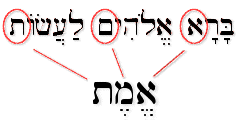
06.14.22 (Sivan 15, 5782) The sages state "the seal of God is truth," by which they mean that reality bears its own inviolable witness (Gen. 2:3). Spiritual truth is ultimately personal, since it is "lived truth," and therefore it is part of the inner will of the person. A true person's life will agree with his or her words; the inner and the outer will correspond and align.
The apostle Paul wrote that God's firm foundation (i.e., yesod: יְסוֹד) bears this distinctive seal: on one side is imprinted, יוֹדֵעַ יְהוָה אֵת אֲשֶׁר־לוֹ - "The LORD knows those who are his," and on the other side, יָסוּר מֵעָוֶל כָּל הַקּוֹרֵא בְּשֵׁם יהוה - "Let everyone who names the Name of the LORD depart from evil" (2 Tim 2:19; citing Num. 16:5 and Luke 13:27 respectively). People may say one thing and believe another, but ultimately no one can "fake" the truth: God bears witness to what is real, as it says, "All things are naked and exposed to the eyes of Him to whom we must give account" (Heb. 4:13). The LORD knows who are his own, and he knows those who are impostors. As Yeshua said: "My sheep hear my voice, and I know them (וַאֲנִי יוֹדֵעַ אתָן), and they follow me" (John 10:27).
We can test whether our faith is genuine by first asking whether we are trusting Yeshua to be our only means of salvation (and sanctification) -- believing that he alone is our means of finding the righteousness of God (צִדְקַת אֱלהִים), -- and then honestly examining our actions to see whether we evidence the love of God (John 14:1; 15:9-10; 1 John 4:7-8). "Whoever says he lives in Him ought to walk in the same way in which he walked" (1 John 2:6).
The old midrash says that the Hebrew word for truth, emet (אֱמֶת), consists of the first, middle, and last letter of the Hebrew Aleph-bet, indicating that truth encompasses all things and endures from the beginning (א) to the end (ת). But notice that if we remove the letter Aleph from the word, we are left with מֵת, (dead), the opposite of חַיִּים (life). The letter Aleph is the ineffable letter that represents oneness and God's preeminent glory. Therefore, if we attempt to ignore or suppress God in our understanding of truth, we end up with death...
Yeshua our Messiah is called the Aleph and the Tav (הָאָלֶף וְהַתָּו), "the first and the last" (הָרִאשׁוֹן וְהָאַחֲרוֹן). These are divine titles that belong exclusively to YHVH (Isa. 41:4, 44:6, 48:12; Rev. 1:1,17-18; 22:13). Pilate's famous question, "What is truth?" is a category mistake, since truth is not about "what" but about "Who." That is, truth is not something objective and static, a thing to be known and studied from a distance. No. Truth is up-close and personal.... You don't judge the truth, but the truth will reveal what is within you... "Because of indifference, one dies before one actually dies" (Elie Weisel). May the LORD help each of us to evidence the "seal of truth" in our lives. Amen.
Hebrew Lesson
Psalm 25:10 reading (click):
Note: I've been feeling ill the last two days and appreciate your prayers. It's been 6 months since my hospital experience, but I am still dealing with lingering issues. Thank you chaverim!
Life in Perilous Times...

06.14.22 (Sivan 14, 5782) The Scriptures foretell that the time before the prophesied End of Days would be "perilous" (χαλεπός) and full of moral depravity: "Understand this, that in the last days perilous times (καιροὶ χαλεποί) shall come" (2 Tim. 3:1). In the entire New Testament, the only other place we find this word translated "perilous" (i.e., χαλεπός) is in Matthew 8:28, where it describes savage demonic activity. Indeed, the word likely comes from a Greek verb (χαλάω) that means "to let down from a higher place to a lower," thereby creating a sort of spiritual "chasm" or rift, which again suggests that Satan's activity will be unleashed upon the earth. In the "End of Days," then, a wave of fierce demonic activity will appear upon the earth that will menace and terrorize others. If you can stomach reading the daily news, you will see that this peril is a regular feature of our world today.
Are we then to be in dread of these things? No. "There is no fear in God's love" (φόβος οὐκ ἔστιν ἐν τῇ ἀγάπῃ). God gives truth and grace to help us navigate our difficult situation; he understands the character of the times in which we live... Notice that the Greek word translated "times" in the phrase "perilous times" (καιροὶ χαλεποί) is also translated "appointed times" (מוֹעֲדִים) throughout the Scriptures. In other words, God has appointed this time to be one of judgment upon the world system, and we are here forewarned so that we can speak the truth and offer healing to others who seek deliverance... The Lord will never leave us nor forsake us; He will shelter us in Goshen (גּשֶׁן, lit. "drawing near") before the hour of his wrath; He will walk with us through the waters, and through the fires (Isa. 43:2). Our Lord knows how to calm the storms around us...
Hebrew Lesson:
Isaiah 43:1 reading (click):
Let us be careful to whom we listen and accept as our moral and spiritual authority. The latest "news" and gossip of this evil world is inherently deceptive, a carefully crafted dialectic of social engineering devised by Satan that is intended to divide people into warring factions in order to enslave them to their fears. We are not to follow the madness of the crowd or be victims of such devices (1 Pet. 5:8-9). Indeed the "news" of this false world (עולם השקר) is a lie, collectively considered, since it (i.e., the "script writers" of the major news outlets) illicitly assume that there is no God, there is no salvation in Messiah, no judgment to come, etc., and that people are helpless and must rely on their own devices...
The irony in all of this is that there is indeed a "dialectic" of the Spirit in motion, a dialectic that will make the various conflicts of this world look like a "tempest in a teapot" in comparison. The great day of the LORD approaches, and the elements will all be burned with fervent heat, as it is written: "But the Day of the LORD (יוֹם־יְהוָה) will come like a thief, and then the heavens will pass away with a horrific roar, and the heavenly bodies will be burned up and dissolved, and the earth and every deed done on it will be laid bare" (2 Pet. 3:10). As was also foretold in our prophets: "Lift up your eyes to the heavens, and look at the earth beneath; for the heavens vanish like smoke, the earth will wear out like a garment, and they who dwell in it will die in like manner; but my salvation will be forever, and my righteousness will never be dismayed" (Isa. 51:6). Instead of giving credence to the fearmongering and propaganda of this godless and insane world, we must follow the LORD God Almighty and to submit to His leadership despite the madness that surrounds us. Amen, and may God give us greater grace and wisdom for these desperate days...
Hebrew Lesson:
Proverbs 22:8 reading (click):
Faith in the Unseen Good...

[ The following is related to this week's Torah reading, parashat Beha'alotekha... ]
06.13.22 (Sivan 14, 5782) From our Torah this week (i.e., Beha'alotekha) we read: "At the command of the LORD they camped, and at the command of the LORD they set out" (Num. 9:23). This teaches us that God's Name is to be heeded every step of the way. Whenever we journey someplace, near or far, say, "With God's help (i.e., be'ezrat ha'shem: בעזרת השם) I am going to this place, and I will stay for so long, if it pleases God (i.e., im yirtzei ha'shem: אם ירצה השם)." As James reminds us, "You do not know what tomorrow will bring. For what is your life? You are a mere mist that appears for a little time and then vanishes (James 4:14-15). "Man is like a breath; his days are like a passing shadow" (Psalm 144:4). We share exile with the LORD in this age, as strangers and sojourners with Him; indeed, our lives are hidden with Him, waiting to be revealed (Col. 3:1-4). "The present form (τὸ σχῆμα) of this world is passing away" (1 Cor. 7:31), and the heart of faith looks for a city whose designer and builder is God Himself (Heb. 11:10). "So we do not lose heart... For the things that are seen are turning to dust, but the things that are unseen endure forever" (2 Cor. 4:16-18).
Hebrew Lesson:
Proverbs 3:6 reading (click):
"In all your ways know Him," that is, in all that you put your hand to do respect the Lord and ask for divine guidance (1 Cor. 10:31). As King David stated, Shiviti: "I have set the Lord always before me, because He is at my right hand, I shall not be moved" (Psalm 16:8). "Do do be wise in your own eyes, fear the LORD and turn away from evil" (Prov. 3:7).
Parashat Beha'alotekha - בהעלתך

06.12.22 (Sivan 13, 5782) Shavuah Tov, chaverim. Our Torah portion for this week, called "Beha'alotekha" (i.e., Num. 8:1-12:16), begins with God giving instructions about how Aaron was to attend to the lamps of the Menorah within the Holy Place of the Tabernacle (Num. 8:1-4). Each day Aaron was to clean each of the seven lamps and to refill them with the very purest olive oil. The wicks were then to be bent so that the six outer lamps shined toward the seventh (and central) shaft. The lamps were to be lit daily, "from evening until morning," in a specific sequence - starting from the central lamp (the shamash) and then moving right to left (Exod. 27:21). According to the Talmud (Shabbat 22b), while all the lamps received the same amount of olive oil, the central lamp miraculously never ran out of oil, even though it was kindled first in the sequence. This miracle is also reported to have occurred during the Temple period, though it abruptly ended about 40 years before the destruction of the Second Temple (c. 30 AD), after the death of Yeshua the Messiah, the true Servant and Branch of the LORD. As it is attested in the Talmud: "Our Rabbis taught: During the last forty years before the destruction of the Temple the lot ['For the Lord'] did not come up in the right hand; nor did the crimson-colored strap become white; nor did the centermost light shine" (Yoma 39a).
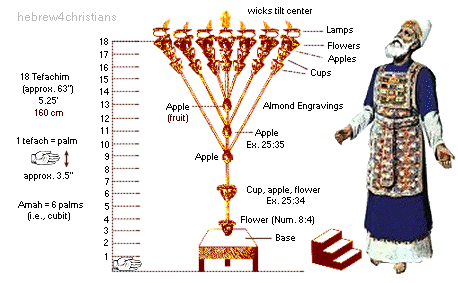 |
The portion then describes how the Levites were to be set apart for service at the Mishkan or "Tabernacle" (Num. 8:5-12). In a ritual ceremony that signified a sort of "rebirth," the Levites were first sprinkled with mei chachatat (מי חטאת), literally, "the waters of sin" (Num. 8:7), that is, holy water mixed with the ashes of the red heifer sacrifice that was used to purify from contamination with death (Num. 19:13). Next they shaved off all their hair and were completely immersed in a mikveh (i.e., a bath containing flowing or "living" water). Notice that the steps of being sprinkled with purifying water, shaving off of all the hair, and being completely immersed in a mikveh were similar to the ritual for the cleansing of the metzora, or "leper" (Lev. 14:2-32), suggesting that a qualified priest was a "healed leper" of sorts. The medieval commentator Rashi notes that each member of the community was then required to place their hands on the Levites' heads, just as the hands were placed on the head of a sacrificial animal as it was slaughtered before the altar (Num. 8:10; Lev. 1:4, 3:2). The "waving" of the Levites by the High Priest likewise simulated the ritual of "tenufah" (תנופה), that is, the waving of the guilt sacrifice (asham) that was offered by a leper after his or her cleansing (Lev. 14:12). Finally, the Levites themselves laid their hands on the sin and whole burnt offerings for atonement before the LORD (Num. 8:12).
Some themes for this week's reading include the symbolism of the Menorah and the Divine Light; the ongoing need for purification from sin; the role being a priest to one another; the call for holiness in the divine service; the Shekhinah Glory and Presence of God; the direction and leading of God; the tests we face as we journey through desert places; the problem of our complaining hearts; the requirement to live by "daily bread"; the importance of respecting elders; tzaarat and exile from the camp, among others.
The Time is Now...

06.10.22 (Sivan 11, 5782) The sages advise: "Repent one day before you die." But who knows the day of one's death in advance? Therefore live each day as if it were to be your last, and may God help you make the wholehearted decision to "seek the LORD while He may be found; call out to Him while He is near." Amen. But many people live in a state of hesitation and uncertainty... The Spirit asks: "How long will you go limping between two different opinions?" (1 Kings 18:21). This question is meant for us to hear today. We are being called to make up our minds and turn (shuv) to the LORD. After all, what is more important to you than your relationship with God? Is there anything more important than this? As C.S. Lewis once said, "Christianity, if false, is of no importance and, if true, is of infinite importance. The one thing it cannot be is moderately important" (God in the Dock). "For he is our God, and we are the people of his pasture and the sheep of his hand today -- if you hear his voice" (Psalm 95:7). Today, if you hear his voice, do not harden your heart (Heb. 3:15). "Take care, brothers, lest there be in any of you an evil, unbelieving heart, leading you to fall away from the living God, but encourage one another every day, as long as it is called "today," so that none of you may be hardened by the deceitfulness of sin" (Heb. 3:12-13). Wake up! The time is now...
Hebrew Lesson
Isa. 55:6 reading (click):
Knowing yourself in Him...

06.10.22 (Sivan 11, 5782) It is vital to reaffirm your identity as a beloved child of God... You may not always feel the connection, but you must choose it regardless of your present emotional state, because your place in God's heart is a matter of truth, not sentimentality. Who you really are is grounded in the Reality and power of the LORD God of Israel. After all, God loved you before you were born (Jer. 1:5; 31:3); he knit you together in your mother's womb (Psalm 139:13-16); he gives you life from above and adopts you as his own (John 1:12; Rom. 8:15); he knows the number of the hairs on your head and every thought and word of your heart (Matt. 10:30; 12:26; Psalm 139:4); he directs every step of your journey throughout this life (Psalm 37:23; 139:3; 23; Prov. 16:9); he foresaw you when he offered up his life in redemption for your healing (1 Cor. 15:3; 2 Cor. 5:21; Gal. 1:4; 1 Pet. 2:24; 2 Cor. 5:18); you are briah chadashah, a new creation (2 Cor. 5:17; Gal. 6:15); you are always welcome in his presence (Eph. 1:6; Heb. 4:16); he will never leave you nor forsake you (Heb. 13:5); he prepares a place for you in the world to come (Jer. 29:11; John 14:1-3); and one day he will wipe away every tear from your eyes (Rev. 7:17; 21:4).
When you are tempted to feel badly about yourself, then, take a moment to affirm who you God says you are. Don't allow your past to hold you in exile; don't give place to shame; know yourself only in relation to God's love for your soul. Whenever you feel hurt, angry, fearful, or rejected, turn inwardly to God and center yourself in his presence; realize that such negative feelings do not define what is most real about you. Bacharta ba'chayim: Turn now to God; reaffirm that you are his beloved child, and thank him for the blessing of your redeemed life. Shalom and Amen.
Hebrew Lesson
Jer. 31:3b reading (click):
A Heart of Wisdom....
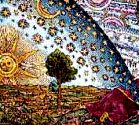
06.10.22 (Sivan 11, 5782) Moses prayed to God: "teach us to number our days," that is, help us understand how to make our days count for eternity, to have a weight of glory that will shine in the world to come... The sages say on the day of death, one considers one's life as if it had been a single day. Life goes by so quickly, and we never know when our personal Rosh Hashanah will come. "No one knows the day or hour..." That's why it is so vital to be healed and to turn to God while there is still time. So turn to him today and bacharta ba'chayim – "choose life!" "For this commandment (of turning to God in teshuvah) is not hidden from you, and it is not far away. It is not in heaven... nor across the sea.... Rather, the matter is very near you - in your mouth and your heart - to do it" (Deut. 30:11-14; cp. Rom. 10:8-13).
לִמְנוֹת יָמֵינוּ כֵּן הוֹדַע
וְנָבִא לְבַב חָכְמָה
leem·noht · yah·mei'·noo · ken · hoh·da'
ve·nah·vee · le·vav · chokh·mah

"Teach us to number our days
that we may get a heart of wisdom."
(Psalm 90:12)

Hebrew Study Card
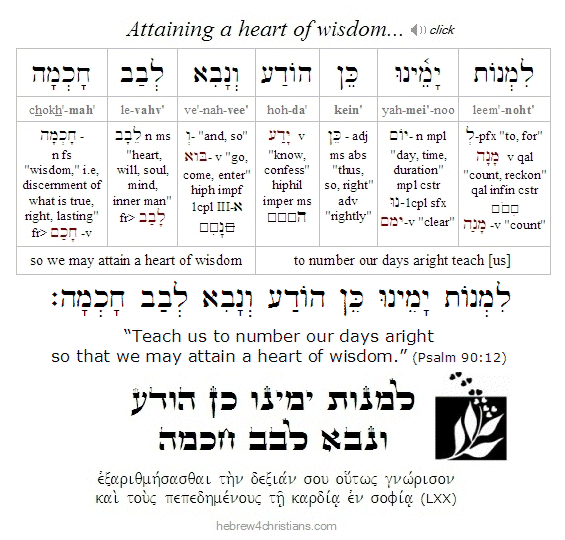
Our life in this world will end far sooner than we expect, and then what will become of us? I am not here thinking of the end of "the" world, but rather the end of your world - when you will die and face the light of eternity. Today, this moment, you are on the way, going someplace; your "latter days" are already come... If you are not prepared today, how will you be better prepared tomorrow? Today is the day of salvation, the hour that matters most (Psalm 95:7; Heb. 3:13). Learn to die to the world now, to let go of what presently holds you captive, so that you are free to meet that which forever shall come. Don't put off genuine teshuvah: turn while there is still time (Eph. 5:15-16). And may God give us mercy to say from the heart: "For me to live is Messiah, and to die is gain" (Phil. 1:21).
As philosopher Blaise Pascal (1623-1662) once wisely observed: "Let each of us examine his thoughts; he will find them wholly concerned with the past or the future. We almost never think of the present, and if we do think of it, it is only to see what light is throws on our plans for the future. The present is never our end. The past and the present are our means, the future alone our end. Thus we never actually live, but hope to live, and since we are always planning how to be happy, it is inevitable that we should never be so" (Pensees). Amen, may God help us "remember the future" and live in the light of his great promises!
 |
The Eye of the LORD...
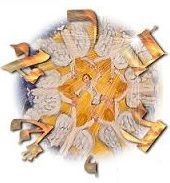
06.10.22 (Sivan 11, 5782) The metaphor of the "eye of the LORD" (עֵין יְהוָה) depicts God's omniscience, or his intimate and perfect knowledge of all things. God's understanding is ein mispar (אֵין מִסְפָּר), "beyond reckoning," and is therefore incalculably great (Psalm 147:5; Isa. 40:28; Rom. 11:33). For instance, God both created the universe yesh me'ayin, "out of nothing," but also sustains the entire cosmos at every instant (Heb. 11:3; Rom. 1:20; Col. 1:16-17). Moreover, the LORD (יהוה) transcends all distinctions of space and time so that he comprehends everything with absolute clarity. Poetically, the Scriptures state that God calls all the stars of heaven by name (Psalm 147:4); that he knows the number of hairs upon your head (Matt. 10:30), that he sees in secret (Matt. 6:4), and that he knows the beginning from the end - including every word uttered from your lips as they are spoken (Psalm 139:4). So the LORD God, the Spirit of Truth, eternally knows everything in all possible worlds....
That God is "omniscient," however, may suggest that the Divine Presence is remote and abstract - as if God were an enormous computer "mind," or a repository of all facts and counterfactual conditions of the universe. This is not the Torah's viewpoint, however, since the LORD is absolutely personal, intentional, loving, just, holy, and so on. Moreover, God directly sustains and interacts with creation, upholding his purposes and divine decrees. Therefore while it is true that God comprehends all the providential affairs of the cosmos in general, there is a deeper sense in which God "sees" the soul -- a personal way of seeing based on spiritual intimacy, compassion and grace. The "eye of the LORD" is directed with special attention toward those who fear him and trust in his love (chesed). Therefore ayin Adonai is connected with the idea of blessing, the eye of divine love: "May the LORD bless you and keep you; may the LORD make His face shine upon you and be gracious to you; may the LORD lift up His countenance upon you (i.e., look upon you) and give you his peace" (Num. 6:24-26).
Hebrew Lesson
Psalm 33:18-19 reading (click):
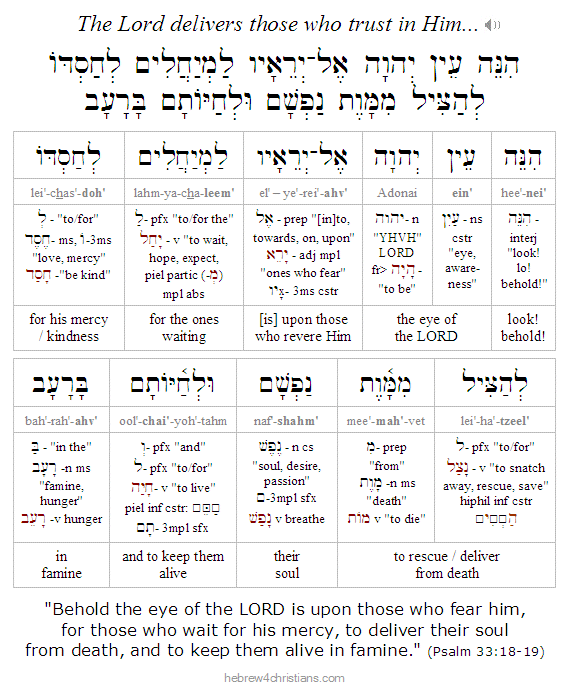 |
"Behold the eye of the LORD is upon them those who fear Him, for those who wait for his lovingkindness; to deliver soul from death, and to keep them alive in times of famine" (Psalm 33:18-19). Note there is a mutual sense of "seeing" implied in this verse. We are to behold (or see) that God sees those who fear Him, that is, those who reverence the Divine Presence and who hope in his love. This is further implied by the etymological connection between ra'ah (רָאָה), "seeing" and yirah (יִרְאָה), "fearing." We can only behold God by means of reverence.
There are many references of God's intimate understanding of the choices we make in our lives: "He who planted the ear, shall He not hear? He who formed the eye, shall He not see? (Psalm 94:9). "The eyes of the LORD (עֵינֵי יְהוָה) are in every place, keeping watch on the evil and the good" (Prov. 15:3). "The Lord looks from heaven; He sees all the sons of men; from the place of His dwelling He looks on all the inhabitants of the earth; He fashions their hearts individually; He considers all their works" (Psalm 33:13-15). If you fear the LORD and hope in His love demonstrated in Yeshua, you have great comfort: "The eyes of the LORD are toward the righteous and his ears toward their cry" (Psalm 34:15; 1 Pet. 3:12).
 |
Moses and the Messiah...
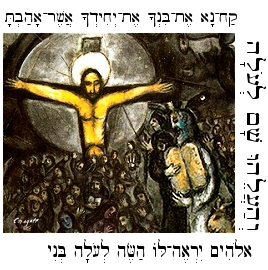
06.10.22 (Sivan 11, 5782) Our Torah portion this week (i.e., parashat Naso) ends with these words: "And when Moses went into the Tent of Meeting (i.e., Mishkan) to commune with the LORD, he heard the Voice (הַקּוֹל) speaking to him from above the mercy seat (i.e., kapporet: כַּפּרֶת) that was upon the Ark of the Testimony, from between the two cherubim; and there He spoke to him" (Num. 7:89).
Now Moses was truly an extraordinary and wonderful person -- Israel's first great prophet, priest, and king. His life can be divided into three great distinct periods of 40 years each. First, he was raised as an Egyptian and lived as a prince of Egypt (the Egyptian period); second, he fled to the land of Midian where he became a shepherd and encountered God in the desert (the Midianite period); and third, after the great deliverance from Egypt, Moses led the people back to Sinai where he 1) became the mediator (priest) of the covenant between God and Israel, 2) legislated the various laws of the Torah, and 3) received the prophetic vision of the Tabernacle, the future exile, and the ultimate glory of Zion.
Notice, however, that Moses was extraordinary in the sense that he transcended the entire system of religion that was later established as "Judaism." First, as the great legislator, Moses stood outside of the law, serving as its voice of authority. Second, as the high priest of Israel, Moses instituted various sacrificial rites before the laws of sacrifice were enacted. For example, he instituted the Passover sacrifice in Egypt (Exod. 12:1-11), and when the people later reached Sinai, he offered blood sacrifices to ratify the terms of the covenant (Exod. 24:8). Moreover, he ascended the mountain and received the prophetic vision of the Sanctuary before the priesthood had been instituted in Israel (Exod. 25:8-9). And even after the laws of the priests were enacted and the Tabernacle was erected, Moses was allowed to go before the very Holy of Holies to hear the Voice of the LORD, even though technically speaking this was forbidden, since Moses was not a kohen (i.e., descendant of Aaron).
I mention this because some Jewish people stumble over the fact that Yeshua, who was from the tribe of Judah, served as Israel's High Priest of the New Covenant. Of course this issue is addressed in the Book of Hebrews, where the role of the Malki-Tzedek priesthood is ascribed to King Yeshua (Heb. 5:6-11; 7:1-19), but it is important to realize that Moses himself foresaw the coming of the Messiah as Israel's great prophet, priest and King (Deut. 18:15-19; John 5:36). Indeed, just as Moses himself was "outside" the law by serving as Israel's priest but nevertheless was commissioned by God Himself, so also with Yeshua, who instituted the sacrifice of His blood as the Lamb of God and who went directly before God's Throne to intercede on our behalf.
Like the patriarch Joseph before him, Moses was a "picture" of Yeshua in various significant ways. Though he was a Jew from the tribe of Levi, he appeared as a "prince of Egypt" to his own people and was educated in all the wisdom of the Egyptians (Acts 7:22). And though he was God's chosen deliverer, Moses was initially rejected by the Israelites and then turned to the Gentiles, taking a "foreign" bride. After being severely tested in the desert, he was empowered by God's Spirit to become Israel's deliverer for their hour of great tribulation. Indeed, both Moses and Yeshua were "sent from a mountain of God" to free Israel; both revealed the meaning of God's Name; both spoke with God "face to face." Moses was sent from (physical) Mount Sinai in Midian; Yeshua was sent from a spiritual "Mount Zion" in Heaven (Heb. 12:22). The New Testament relates that Moses and Elijah later met with Yeshua to discuss His "departure," literally, "His Exodus" (τὴν ἔξοδον αὐτοῦ) that he would accomplish at Jerusalem to redeem the entire world (Luke 9:30-31).
Hebrew Lesson
Deut. 18:15 reading (click):
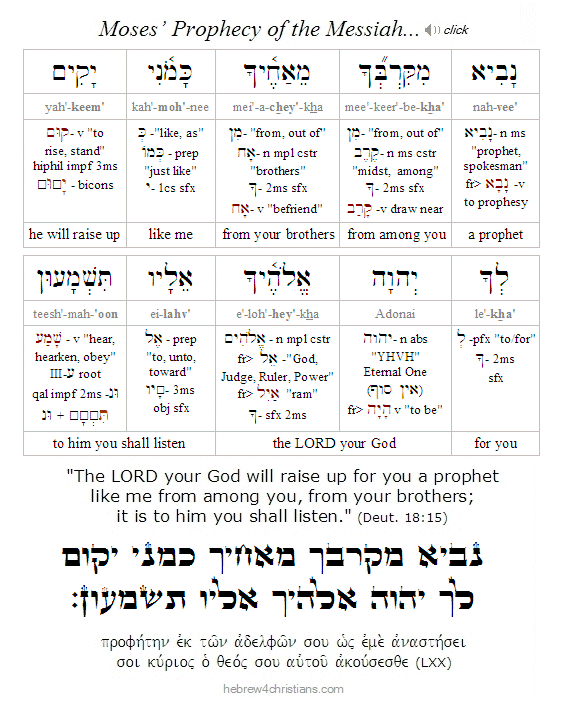 |
Moses foretold the coming of Yeshua who would resemble him in many distinctive and remarkable ways. For more on this subject, see "Moses' Prophecy of the Messiah."
God's Radiant Light...
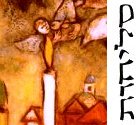
06.09.22 (Sivan 10, 5782) In the Gospel of John it is recorded that Yeshua said, "I am the way, the truth, and the life" (i.e., ᾽Εγώ εἰμι ἡ ὁδὸς καὶ ἡ ἀλήθεια καὶ ἡ ζωή), no one can come to the Father apart from my hand" (John 14:6). The Greek word translated "truth" in this verse is aletheia (ἀλήθεια), a compound word formed from an alpha prefix (α-) meaning "not," and lethei (λήθη), meaning "forgetfulness." Truth is therefore a kind of "remembering" something forgotten, or a recollecting of what is essentially real. Etymologically, the word aletheia suggests that truth is also "unforgettable" (i.e., not lethei), that is, it has its own inherent and irresistible "witness" to reality. People may pretend or even lie to themselves, but ultimately the truth has the final word... "The light shines in the darkness, and the darkness has not overcome it" (John 1:5).
Hebrew Lesson
Psalm 36:9 reading (click):
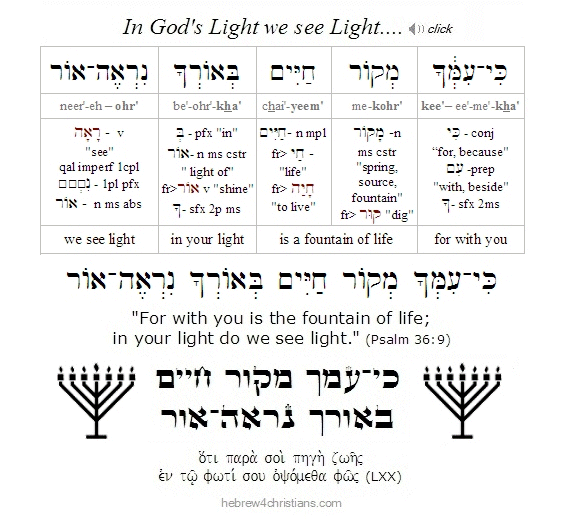 |
In God's light we see light... When you enter a dark room with a lamp, the darkness flees and is overcome by the light. So also with teshuvah: When we turn to the Lord spiritual darkness is overcome by the Divine Radiance. In Yeshua is life, the light of the world; those who receive Him behold ohr ha'chayim (אוֹר הַחַיִּים) - the "light of life."
May the LORD God of Israel help us walk in the unforgettable and irrepressible radiance of His glory. May God help us shine with good works that glorify God's Name (Matt. 5:16). "For God, who said, 'Let light shine out of darkness' (יְהִי אוֹר וַיְהִי־אוֹר), has shone in our hearts to give the light of the knowledge of the Glory of God in the face of Yeshua the Messiah" (2 Cor. 4:6).
Teshuvah of Hope...
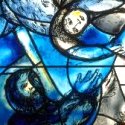
06.09.22 (Sivan 10, 5782) "I go to prepare a place for you... on the other side of this veil; the place of my secret chamber. Look into my eyes before I go; see my heart's passion: I am aflame for you, and yet I must go; I must... There is no other way but through, through the waste places, into the darkest pitch, across that chasm... But don't let your heart be troubled, for this demonstrates my love and seals my word to you forever. And though we must be apart for a season, I swear I will come again for you, to take you through this veil to be with me forever. Do not lose heart, my beloved. I am coming soon; my hand is upon the door..."
Do you have trouble receiving these words as your own? Henri Nouwen keenly wrote: "There are two realities to which you must cling. First, God has promised that you will receive the love you have been searching for, and second, God is faithful to that promise." You must believe the "yes" that comes back when you ask, "Do you love me?" You must choose this "yes" even when you do not experience it" (Voice of Love). You have to trust the place that is solid, despite the gnawing sense of inner emptiness and the inevitable changes of life...
Hebrew Lesson
Psalm 73:26 reading (click):
 |
Deconstructing Nonsense...

06.09.22 (Sivan 10, 5782) It is written in our Scriptures: "The wicked in his proud countenance does not seek; God is not in any of his thoughts" (Psalm 10:4). Indeed the willful denial of reality is an affront to heaven, contempt shown for the gift of life, and sacrilege of all that is worthy (Psalm 14). It is sheer folly to regard life apart from the fear of the LORD, for that is reishit chokhmah (רֵאשִׁית חָכְמָה) - the beginning of wisdom (Psalm 111:10). The existence of God as the Almighty Creator and Moral Lawgiver is therefore First Principle of all sound reasoning regarding reality. The so-called "postmodern world" is notorious for failing to explain anything of substantive meaning. Everything is left unexplained; no "metanarrative" (i.e., "worldview" or "totalizing" philosophy) is permitted; no logical connections to a "real world" are sound; there is no grand "story" to our lives, and therefore postmodernism entirely misses the essential point of everything.
King David asked, "Who shall abide before the Presence of the LORD?" and the Spirit replied: "the one who walks blamelessly and does what is right and speaks truth in his heart" (Psalm 15:2). It is the one who is honest – "the one who speaks truth within his heart" (דבֵר אֱמֶת בִּלְבָבוֹ) that dwells in the "tent of the LORD," for God is called the God of Truth (אֵל אֱמֶת), and the Faithful God (אֵל אֱמוּנָה). In heaven there is only the language of truth, and truth is the language of heaven. The "pure in heart" – that is, those who accept the truth of their inner condition, who acknowledge their lost condition, mourning over their lives, and who humbly find themselves starving for God's deliverance – these are the ones who shall behold God (Matt. 5:2-6). In this connection Blaise Pascal wrote: "I can feel nothing but compassion for those who sincerely lament their doubt, who regard it as the ultimate misfortune, and who, sparing no effort to escape from it, make their search their principal and most serious business. But as for those who spend their lives without a thought for this final end, I view differently. This negligence in the matter where they themselves, their eternity, their all are at stake, fills me more with irritation than pity: yea, it astounds and appalls me" (Pensees).
Postmodern Christianity is a phenomena of despair. By "despair," however, I do not mean "gloom" or "dejection," but rather an absurdist anti-intellectualism that derived from the loss of hope regarding obtaining real knowledge about the world. In popular culture, we see that this despair arose just after WWI (in the USA, some time earlier in Europe), though its roots trace back to the epistemological skepticism of the German philosopher Immanuel Kant (1784-1804), who posited "limits" to the mind's ability to know reality by defining a chasm between apparent reality (phenomena) and hidden reality (noumena). The realm of phenomena was open to inspection using the methods of reason, science, etc., whereas the realm of the "numinous" was only "managed" by positing transcendental "categories" to help lend order to the unknown. Kant's doctrine opened the door to various forms of irrationalism, since all the meaningful aspects of life (love, meaning, hope in afterlife, freedom, the existence of God, etc.) were relegated to the murky world of the unknown, leaving us with only a world of "managed appearances" to traffic in as human beings in the world.
GW Hegel (1770-1831) took the next step and speculated wildly above Kant's uncrossable line. The phenomenal world (Zeitgeist) was "really" a manifestation of Absolute Spirit working its way out through "dialectic" in the space-time world. Later Karl Marx (1818-1883) rejected the idea of Spirit and substituted material forces (i.e., economics) as the engine that drove historical processes. Nietzsche and his intellectual heir Adolf Hitler soon became "true believers" of such irrationalism... Derrida, Foucault and other "postmodernists"celebrated the loss of intelligibility as a political opportunity to "reconstruct" reality as subjective preference.
"The Nuremberg trial of the German war criminals was tacitly based on the recognition of the principle: criminal actions cannot be excused if committed on government orders; conscience supersedes the authority of the law of the state." - Albert Einstein
The division of rational and irrational modes of encountering reality opened the door for absurdist encounters with the spirit realm. Hence we see the rise of neo-paganism, witchcraft, various forms of the occult (including pop-Kabbalah), new-age thinking, and also in extreme forms of "charismatic" Christianity and the ongoing apostasy of American "Evangelicalism." Since God cannot be understood using reason, He is known only through the experience of mystery. Faith is therefore expressed by rejecting rationality and embracing the ludicrous, and appeals to logic and clear thinking are rejected. Epistemological nihilism is symptomatic of the despair of the "postmodern" age.
Hebrew Lesson
Psalm 10:4 reading (click):
Finding Purity of Heart...
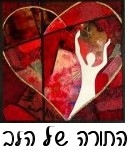
06.08.22 (Sivan 9, 5782) Some people think of "purity of heart" in moral terms, such as not looking with lust on others, not coveting, etc., though these are really symptoms of disordered love... Genuine purity is a matter of focus, making a decision to believe the miracle in order to find the "good portion" and the "one thing necessary" (Luke 10:42). We "believe to see" (Psalm 27:13). Purity of heart therefore realizes that all that you've ever longed for is found in God alone. "There is but one good; that is God. Everything else is good when it looks to Him and bad when it turns from Him" (C.S. Lewis). It is a great, great gift from heaven to know God as your heart's true desire - to fully understand that your relationship with Him is the ultimate concern and very treasure of your existence.
It is the Spirit that gives life (John 6:63). The Holy Spirit imparts the "pulse" of the Divine Life, and we gain newness of life when we trust God for purification from our sins through Yeshua our LORD. As King David further attested: Lev tahor bara li Elohim – "Create in me a clean heart, O God" and renew a spirit of 'yes' within me (Psalm 51:10). Only the new heart (lev chadash) created by the agency of God's Spirit can possibly yield the life of the Spirit within us. The miracle of a new heart transforms your whole inner nature - with the impartation of new appetites, new passions, new desires, and the rebirth of your will.
If you struggle with being inwardly divided, conflicted, or lacking in courage, ask the LORD to give you true purity of heart, a heart that wholeheartedly wills the highest... As Yeshua attested: "Blessed are the pure in heart, for they shall see God" (Matt. 5:8).
Hebrew Lesson:
Matthew 5:8 reading (click):
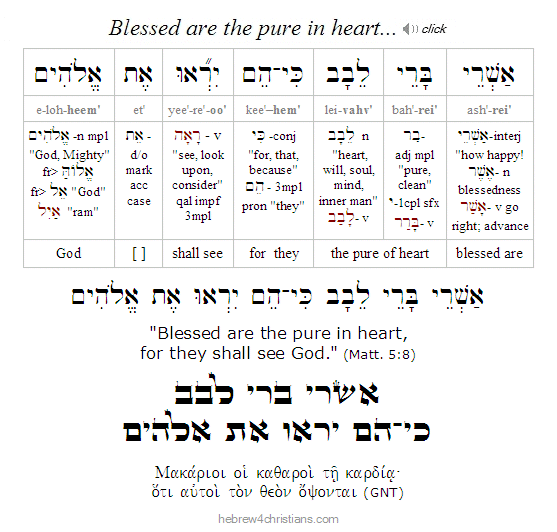 |
Trust in Difficult Days...
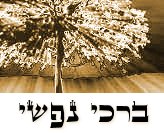
06.08.22 (Sivan 9, 5782) We are living in times of difficulty leading up to the coming of our Messiah, Yeshua, and therefore we all need courage and grace to persevere. When Andrew Murray was bedridden and sick, he advised another sufferer using these words: "In time of trouble say: "First, He brought me here. It is by His will I am in this straight place; in that I will rest. Next, He will keep me here in His love, and give me grace to behave as His child. Then, He will make the trial a blessing, teaching me the lessons He intends me to learn, and working in me the grace He means to bestow. Last, In His good time He can bring me out again – how and when He knows. [Therefore] let me say I am here, (1) by God's appointment; (2) in his keeping; (3) under His training; and (4) for His time."
Deep within I discover that I can bless the Lord, losing sight of myself and my fears as I affirm my deepest purpose and heritage: "My (boundary) lines have fallen to me in pleasant places; indeed, my inheritance is beautiful to me" (Psalm 16:6). Though I might have felt bereft and even tempted to curse my estate, by God's grace I am made able to give thanks and to bless, even in the midst of my troubles and pain: "I will bless the LORD who has counseled me; my conscience disciplines me in the night" (Psalm 16:7). Therefore שִׁוִּיתִי יְהוָה לְנֶגְדִּי תָמִיד - "I have set the Lord always before me" – especially in desperate moments when I can barely endure – since I have learned that "because he is at my right hand, I shall not come undone" (Psalm 16:8). God gives me strength to renew my hope: therefore "my heart is made glad, my whole being rejoices, and my body shall rest in trust" (Psalm 16:9).
Hebrew Lesson
Psalm 16:9 reading (click):
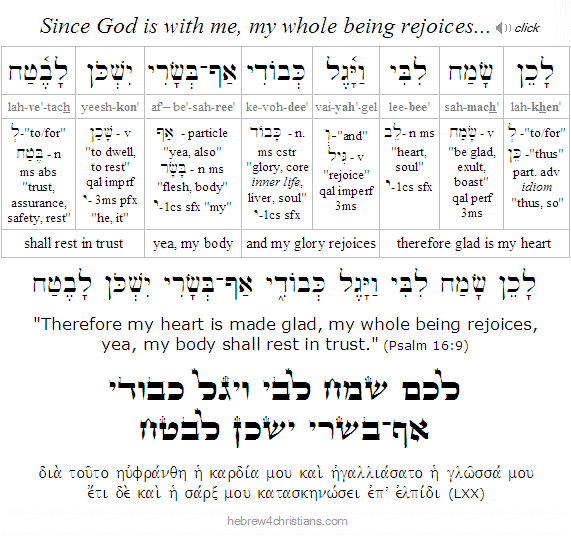 |
When I feel hopeless, I seek hope; when in pain, I seek strength; when in despair over besetting sins, I yearn again for a place I can call home... In the midst of these things, my heart wonders whether my suffering has come because I deserve it or somehow "need" it. I reason that it may make sense that God extends special care for his favored ones, for those who are righteous and who seem free from the vexation of despair, but does it make sense for me, one who is undone, broken, alone, and unworthy? My heart protests that this is not the whole story of my life, and that more to be said. I need God and I know that he cares for me. I recall his promises to heal, to bind up the broken of heart, and extend his comfort for our afflictions. Might pain herald the advent of something new to come? Might there be a deeper beauty and surpassing grace going "through the wound" instead of objecting to it?
Come just as you are...

06.08.22 (Sivan 9, 5782) Some people seem to think that we first must repent and then we will encounter the Lord, but it's actually the other way around: we first encounter the Savior and then we learn the meaning of repentance. Thus Paul's eyes were opened after he was first blinded by the light (Acts 9:3-6). Likewise, it is only after we have met the Lord that we begin to understand our own blindness of heart, but as learn to see more clearly, we encounter more and more of his love (Rom. 5:20). As Yeshua said, "My yoke is pleasant (χρηστὸς) and my burden is light (Matt. 11:30). Teshuvah, then, is a progressive and ongoing process of awakening, as we learn to love God and to accept ourselves, despite our struggle with sin. As St. Anselm once prayed: "O Lord, grant us grace to desire thee with all our hearts, that so desiring, we may seek and find thee, and so finding thee, may love thee, and loving thee may hate those things from which you have redeemed us." Amen.
We encounter the Lord "just as we are," by means of his gracious intervention in our lives, and so we continue to live by faith in God's grace (indeed, what we call "sanctification" is often just "catching up" with the miracle of his revelation to us). And we always come to God "just as we are," since we are never more than what we are in the truth: χάριτι δὲ θεοῦ εἰμι ὅ εἰμι- "by the grace of God I am what I am," as Paul said. "For all things come from You, and from your hand we give back to you" (1 Chron. 29:14). Therefore the Spirit says, "Come unto me just as you are, or you may never come at all...."
Hebrew Lesson
1 Chron. 29:14 reading (click):
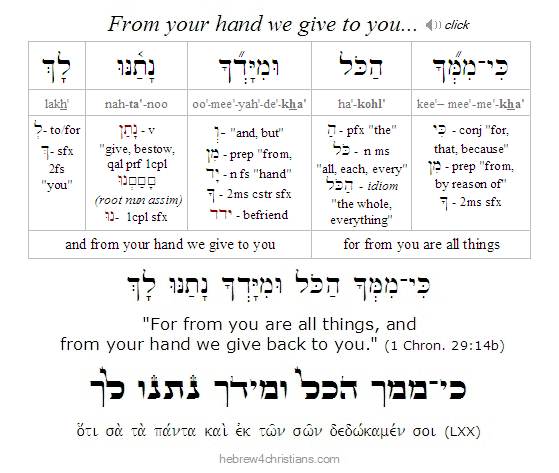 |
A prayer to the One calling you to come: "I come to you just as I am - needy, sick within, weary, and broken... I come seeking your love; I come because you invited me to come: I open my heart, such as it is, to you; please join me here, in this place of my need, in this place of pain, and wrap me your comfort. I can only love you as I know your love, Lord Yeshua, so please help me to know your love in the truth. Amen."
Torah of the Vine...

06.07.22 (Sivan 8, 5782) Yeshua taught us: "If anyone does not live in Me, he is cast off as a branch, and withers..." (John 15:6). We find life only as we remain connected to the Source and Conduit of life, who is the Messiah, the Savior and LORD. True life grows out a heart connection with Yeshua, and without that connection our lives become vain and yield no eternal significance (John 15:5). Be forewarned: it is the sacred truth of the Messiah that if you do not live in the Vine you will be suffer eternal loss, since life is found in no other Source (John 14:6; Luke 3:9). To the heart of faith, however, the yoke of Messiah is easy, and His burden is light: we cannot create new life by our own best efforts nor effect regeneration by means of our own "good works" (John 1:3; Titus 3:5; 2 Tim. 1:9). No, the work of salvation is God's alone, and we partake of that work as we abandon our self-efforts and religious conceits (see Isa. 32:17). There remains, therefore, a Sabbath for the people of God, "for whoever has entered God's rest has also rested from his works as God did from his" (Heb. 4:9-10). This "deep Sabbath" of rest is a matter of trusting that the finished work of salvation has been provided on your behalf. Therefore relax, for the LORD always effects what is best for you, and not much is under your control anyway. The path of peace is to surrender to God's care for your life and let the evils and drama of this world flow past you. Look to heavenly reality and not to the shadows and deceits of this world (Col. 3:1-4). Live in Yeshua's Presence, drawing strength and vitality from your relationship with Him. Use the "eyes of your heart" (τοὺς ὀφθαλμοὺς τῆς καρδίας ὑμῶν) to discern His guidance in every circumstance of your life (Eph. 1:18). The the fruit of the Holy Spirit (פרי רוח הקודש) is produced as we yield ourselves to the love and presence of God.
The "Torah of the Vine" (תּוֹרַת הַּגֶּפֶּן) also teaches us that "every branch that bears fruit will be pruned so that it may bear more fruit" (John 15:2). Note first that it is the healthy branch that will be cut back - not the withered one that will be altogether removed – and this purging process may be painful at times. The heavenly Vinedresser's goal is for the fruitful branch to yield more fruit, to reveal more and more the connection to the Heart of the Vine, so that God is glorified (see John 15:8). The end here is the beatific vision: "Blessed are the pure in heart, for they shall see God" (Matt. 5:8). Note that the Greek word translated "pure" is katharos (καθαρός), sometimes used describe the cleansing of a wound (catharsis), or to describe the unalloyed quality of a substance revealed through refining fire. Sanctification involves "catharsis" of the ego – the exile of carnal desire, the mortification of our will, the release of truth in the inward parts. A faith that thinks God will make us immune to suffering, challenges, and tribulation is immature and imperfect. The goal of "purging" is fruitfulness and blessing, but the agency is not the will of man but the power of God. You are made "clean" through the word of God spoken within your own heart (John 15:3). Your sanctification, however, depends on your communion with God, staying connected to what is real, central, vital, the core truth of God's Presence and love, the ultimate Reality of Life itself.
"If anyone does not live in Me, he is cast off and withers...." Yeshua here teaches that shared life is the goal of our relationship with him, but if that does not occur, destructive consequences follow. This has been called the "dark side" of God by some, by which they mean that God will destroy everything in us that is not fit to exist and that does not yield true blessedness (Luke 3:9). Of course this "destruction" (or correction) is really a great blessing, since it purges us from worthlessness that brings pain, disease, and sorrow (this in distinction to the devil, who seeks to destroy what is healthy and good). The upshot here is that we must carefully attend to our inner life and our connection with God, understanding that to be the utmost good for our lives, seeking God's Presence in all our ways. Therefore we read, "Above all else guard your heart, for from it flow the springs of life" (Prov. 4:23).
מִכָּל־מִשְׁמָר נְצר לִבֶּךָ
כִּי־מִמֶּנּוּ תּוֹצְאוֹת חַיִּים
mee·kohl-meesh·mahr · ne·tzor · lee·be'·kha
kee-mee·me'·noo · to·tze·oht · chai·yeem

"Above all else guard your heart,
for from it flow the springs of life"- Prov. 4:23

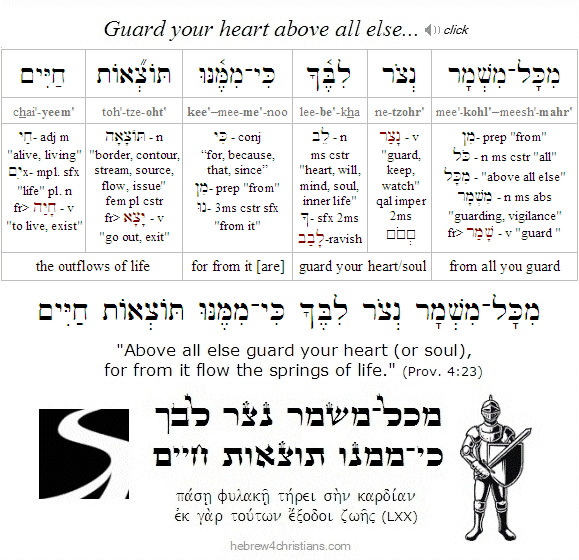 |
Consider your assumptions and the "default" ways you tend to think about things.... Since Yeshua is the Center, the Heart, and the Source of all beauty, meaning, love, grace, and life for you, test all other truth claims based on that relationship… The devil trafficks the lie and seeks to entice you to bite his hook. We overcome the power of the lie by means of truth, and the various affairs of this world – its drama, it's "news" and its rumors, its fads, trends, idols, and fashions, its unspoken assumptions that impugn the witness of Scripture – must be mediated by the word of Messiah within you. Take every thought captive to the truth of God; bring it before the bar of the Divine Presence and coerce it to bend the knee (2 Cor. 10:5). Friend, the stakes are high. People live their lives in unstable and pain-filled ways because they refuse to "come to themselves" and understand the Ground of existence, the Heart of God that overarches and sustains all things...
Whatever happened to sin?

06.07.22 (Sivan 8, 5782) Our nihilistic and benighted age impugns the very idea of objective truth, and especially moral truth, in order to justify its lusts and godless delusions. It plays "language games" and practices evasive linguistic subterfuge in order to feign ignorance about what is real. Indeed the traditional idea of "sin" as a violation of God's moral will is now castigated as a form of social oppression. Today if a violent crime occurs, for instance, explanations are immediately sought using "naturalistic" assumptions (such as economic or racial status, biochemistry, historical or social forces, etc.), though such narratives alone cannot account for moral outrage (i.e., the transcendental idea of justice) and the convictions of conscience. Consequently naturalism must assign blame for sin removing it from the realm of individual responsibility by denying the very possibility of morality. The result can be found in the anomie and eviscerating despair that haunts the postmodern soul. The Scriptures teach, however, that moral truth is intuitively known through the inner voice of conscience, and therefore each person made in the image of God is responsible to walk in sanctity and honor by "loving what is good and hating what is evil" (Rom. 1:19-22; Acts 24:16; Psalm 19:1-4; Psalm 34:27; Psalm 97:10; Prov. 14:22, etc.).
In the Scriptures, the most common Hebrew word for sin is "chet" (חֵטְא), often translated as "missing the mark" (i.e., of the divine ideal), though that definition does not capture the intent of the person, that is, the decision (often subconsciously expressed) to aim at a mark contrary to what is right or good. Sinning, in other words, should not be regarded as passively "missing" the will of God, as if it were some sort of "accident," but rather as actively defying God's will by choosing a different goal altogether. In this sense sin may be understood as treason against truth, open rebellion against divine authority, the willful repudiation of an obligatory moral order, and the deification of the self as the object of ultimate concern... The essence of sin therefore expresses idolatry within the human heart...
Properly understood, then, sin is not an occasional "misstep" of the will, but an eternal falling away from the Eternal -- an ontological break from Reality and Truth. We are not sinners because we sin, we sin because we are sinners, and that means that the spiritual problem of our inner rage, fear, lust, and despair calls for deliverance – objective salvation and healing – from the root sickness of "spiritual death." The first condition for receiving this deliverance, however, is rigorous honesty, particularly with ourselves: "The purest of heart is precisely the one most willing to comprehend his own guilt most deeply. Without purity of heart, no one can see God, and without becoming a sinner, no human being can come to know God" (Kierkegaard). We must be careful here. This is not an academic matter concerning how to know or understand what is right as much as it a matter of the will to take responsibility by acknowledging the rightness and authority of truth. That is why the original sin was rooted in an act of will, not in an act of knowing, since the essence of the temptation was expressed in the decision to define what is good and what is evil in merely human terms.
We can only find salvation through the consciousness of our own sin and need for deliverance, and any attempt to enter by another way is treason against the message of the cross of Messiah. This is the "terrible struggle" with the Eternal – with God and oneself – as we let go and die to the self-life; as we surrender and engage God's truth – which again is not found by mere intellectual assent, but by an act of will, by teshuvah, by faith, and by learning to walk in faith - despite yourself - along the ways and byways of your life. The LORD "dwells" with one who is of a contrite and lowly spirit (Isa. 57:15), he "tabernacles" within the heart of the poor in spirit, with those who mourn over sin and who hunger and thirst for His righteousness...
Hebrew Lesson
Lamentations 3:40 reading (click):
The Torah of Shavuot...

06.06.22 (Sivan 7, 5782) The importance of the Torah, or "law" of God, cannot be overstated, friends, and the holiday of Shavuot recalls and celebrates its importance in our lives. Yeshua plainly said to his followers: "Do not think that I have come to abolish the Law or the Prophets; I have not come to abolish them but to fulfill them. I tell you the truth, until heaven and earth pass away not the smallest letter or even a stroke of a letter (קוצו שׁל יוד) will pass from the law until everything comes to pass. So anyone who breaks one of the least of these commands and teaches others to do so will be called least in the kingdom of heaven, but whoever obeys them and teaches others to do so will be called great in the kingdom of heaven" (Matt. 5:17-19). He further solemnly warned: "Not everyone who says to me, 'Lord, Lord,' will enter into the kingdom of heaven– only the one who does the will of my Father in heaven. On that day, many will say to me, 'Lord, Lord, didn't we prophesy in your name, and in your name cast out demons and do many powerful deeds?' Then I will declare to them, 'I never knew you. Go away from me, you workers of lawlessness' (Matt. 7:21-23).
To the ungodly, "freedom" means being lawless, that is, acting under their own authority apart from the will of God. This of course was the original temptation in Eden, when the nachash (serpent) told Eve that if she acted under her own authority, her eyes would be "opened" and she would be "like God," knowing both good and evil (Gen. 3:5). That is always the creed of the wicked: "Do as thou wilt..." True freedom, however, is not the supposed right to do whatever you want, but instead is the power to do what is right, living in harmony with moral reality, and being liberated from the slavery of impulses to do evil. The law of God, then, is the blessing of having boundaries, order, and moral sanity within our lives, and that is why the Holy Spirit inscribes the law "within" us - to help guide our steps, protect our way, and to empower us to live in obedience to the truth of God (Jer. 31:33). If you are led by the Spirit, you are no longer enslaved to the law of sin and death -- that is, the lower nature and its idolatrous impulses -- but you will bear the fruit of righteousness, goodness and truth (Gal. 5:18; Eph. 5:9). Let no one deceive you with vain words. You cannot serve two masters... If you know that the Messiah is righteous, you know that every one that does righteousness is born of God (1 John 2:29).
God did not send the Savior to suffer and die on the cross so that people would disregard his moral will and go right on sinning. No, by his sacrifice Yeshua delivers us from the power of sin and death and thereby empowers us to do his will: "For we are his workmanship, created in Messiah for good works that God prepared beforehand" (Eph. 2:10). Followers of Messiah are to be "filled with the knowledge of his will in all spiritual wisdom and understanding, to live our lives in a manner worthy of the Lord, fully pleasing to him, bearing fruit in every good work and increasing in the knowledge of God" (1 Cor. 1:9-10). Therefore the message of Shavuot is that we should walk worthy of God, who has called us unto his kingdom and glory (1 Thess. 2:2). Chag Shavuot Sameach.
Hebrew Lesson
Psalm 119:97 reading with commentary (click):
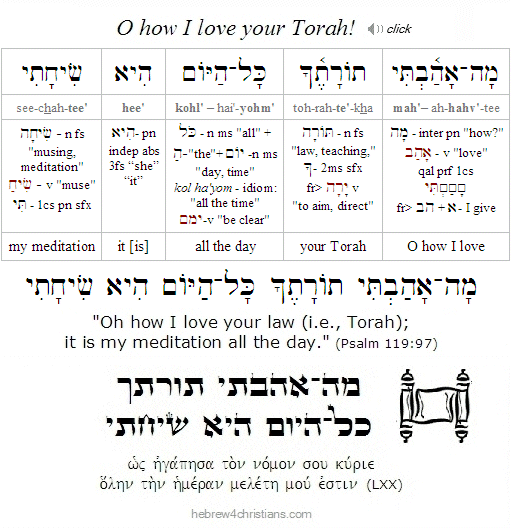 |
Changed by His Spirit...
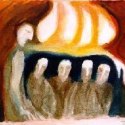
[ Today is Shavuot, called "Pentecost" in Christian tradition. Chag Shavuot Sameach friends! ]
06.06.22 (Sivan 7, 5782) The Apostle Paul (רבי פאולוס השליח) taught that we are not to be "conformed" (συσχηματίζω) to the pattern of this fallen world but rather be "transformed" (μεταμορφόω) by renewing our minds, so that by testing we may discern what is the will of God (Rom. 12:2). Note that the word translated "conformed" in this verse means to accept the world's scheme (σχῆμα) of understanding things, that is, to passively go along with the world's matrix of lies, wishful thinking, propaganda, etc. The word translated as "transformed," on the other hand, means to be metamorphosed or radically changed into a different kind of nature with a different source of being itself. Such transformation comes from having our minds "renewed" -- the word used in this verse (i.e., ἀνακαινόω) means being "made new on the inside," and therefore renewal is the gift of teshuvah (turning to God). Understand, then, that the foundation of all transformation of inner character and outward conduct comes from the miracle of having a renewed mind. I use the word "miracle" quite intentionally, since by itself "right thinking" is powerless to help the sinner truly change his ways, and therefore something more - new life and healing power from heaven, is needed.
Hebrew Lesson:
Psalm 19:7 reading (click):
What are you seeking?
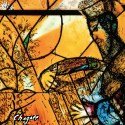
06.06.22 (Sivan 7, 5782) King David says in Psalm 27:4, "One thing have I asked of the LORD, that will I seek" (אַחַת שָׁאַלְתִּי מֵאֵת־יְהוָה אוֹתָהּ אֲבַקֵּשׁ). Notice that David asked for just one thing – not many things. He did not come with a litany of requests. He was not "double minded." David realized that what is most important is to have a seeking a heart, or rather, a heart that seeks that which is most important, and therefore he asked for the gift of focus and the pursuit of truth. He desired the "pearl of great price." Note further that the verb translated "I will seek" (avakesh) comes from the root word bakash (בָּקַשׁ) meaning "to wish" or "to desire." The verse could therefore be read as, "The one thing I ask from the Lord is for godly desire – for the will to "behold the sweetness of the Lord, and to inquire in His Presence." This is a prayer for the highest we may attain. The "one thing" David asked for was a heart made alive to perceive the wonder of God.
So what do you value and love the most? What determines the direction of your heart? Augustine of Hippo said "my love is my gravity," by which he meant that his desire draws him forth and reveals who is really is. What you love -- your desire, your heart's longing, your treasure, is your ultimate concern and what you secretly worship. "All who ask receive; all who seek find" (Matt. 7:7). Since not all matters of love are equally able to satisfy the true needs of the heart, however, we must be careful about what we desire and what we are seeking, for what you seek, you will find.
What we desire "bekhol levavkha" changes us; it affects us deeply; it takes us on a journey and ultimately manifests who we are. The more we love God, the more godly we will become, though the more we love pleasures and worldly matters, the more vain and empty we will become... The question is constantly being asked of our hearts - what do you really love? Be aware of what you are seeking, friend, for that will become your destiny...
Hebrew Lesson
Psalm 27:4a reading (click):
The Shepherd's Word...

06.06.22 (Sivan 7, 5782) The sages named the fourth book of the Torah "Bamidbar," meaning "in the desert," because the word occurs in its opening verse, and also because it aptly describes the Israelites' forty years of wanderings in the desert of Sinai after the great Exodus. Because God commanded a census of people to be taken several times in the book, however, the midrash calls it "Sefer Hapikudim" (ספר הפקדים), or the "Book of Countings," from which the English translation "the Book of Numbers" is derived. Interestingly, the Hebrew word for desert (i.e., midbar: מִדְבַּר), originally meant "from where the cattle are driven," that is, an area of pasturage that was uninhabited and fit for animal grazing. The Hebrew root "davar" (דבר) means "word" but also means "shepherd," evoking the call and direction of one who would guide his flock.
The book begins: "The Lord spoke (דבר) to Moses in the desert of Sinai, in the Tent of Meeting" (Num. 1:1). Now recall that during their wandering in the desert God's presence was symbolized by the Mishkan, or "Tabernacle," a central tent-like structure that had a secret inner chamber called the Holy of Holies, and within that hidden chamber was a sacred chest called the Ark of the Covenant (ארון הברית) that held the tablets of the Ten Commandments (עשרת הדברים). Upon the cover of the Ark, called the kapporet, were two cherubim (angelic figures), and it was there that God's audible word was spoken (see Exod. 25:22).
In light of this, among other things we can understand the book of Bamidbar to recount God's shepherding words given to the people as they wandered through desert places in search of the fulfillment of God's promise for their lives. The excursion into the desert is part of the journey of faith. God leads us by way of the desert - through struggle and waste places - to discipline our hearts to look for the greater hope of Zion.
Hebrew Lesson
Psalm 23:1-3a reading (click):
This week's Torah:
Parashat Naso (פָּרָשַׁת נָשׂא)

06.05.22 (Sivan 6, 5782) Chag Shavuot Sameach, friends... Among other things, our Torah portion for this week, parashat Naso ("lift up!"), includes the cornerstone blessing that Aaron and his sons (i.e., the priests) were instructed to declare over the people of Israel: "May the LORD bless you and keep you; may the LORD shine his face upon you and be gracious to you; may the LORD lift up his face upon you and give you his peace" (Num. 6:24-26). Notice that the Hebrew text of the blessing (see below) begins with three words, is comprised of three parts, invokes the divine Name three times, and is therefore appropriately called "the three-in-one blessing" (שלוש בברכה אחת). Notice also that the words are spoken in the grammatical singular rather than plural because they are meant to have personal application, not to be a general benediction over a crowd of people. The phrase, "May the LORD lift up his face upon you..." (ישא יהוה פניו אליך) pictures the beaming face of a parent lifting up his beloved child in joy... The repetitive construction of God "lifting up His face" (יהוה פניו אליך) indicates that he gazes upon you in love and in blessing. Undoubtedly Yeshua recited this very blessing over his disciples when he ascended back to heaven on Mem B'Omer, though He would have spoken it in the grammatical first person: "I will bless you and keep you (אני אברך אותך ואשמור לך); I will shine upon you and will be full of grace toward you; I will lift up my face toward you and give you my shalom" (see Luke 24:50-51).
יברכך יהוה וישמרך
יאר יהוה פניו אליך ויחנך
ישא יהוה פניו אליך וישם לך שׁלום
ye·vah·re'·khe·kha' · Adonai · ve·yeesh'·me·re'·kha
yah·eir · Adonai · pah·nav · e·ley'·kha · vee·khoon·ne'·kah
yees·sa · Adonai · pah·nav · e·ley'·kha · ve·yah·seim · le·kha · shah·lohm

"May the LORD bless you and keep you;
May the LORD shine his face upon you and be gracious to you;
May the LORD lift up his face upon you and give you his peace."
(Num. 6:24-26)

Nesiat Kapayim (Raising of the hands)
Note: The verbs in this blessing are all "jussive," usually expressing wish, desire, or command, though understood in context (i.e., as part of the blessing recited by the kohanim during ceremonial occasions), the verbs should be regarded as declarative or oracular. To learn more about this blessing, click here.
Parashat Naso Links:
Signs of the Time...
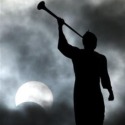
06.05.22 (Sivan 6, 5782) Despite the evident and manifold increase in the various prophetic "signs" that herald the return of Messiah, many people today seem apathetic and functionally agnostic regarding the imminence of the "End of Days..." Ironically, this indifference itself indicates the nearness of the hour, since Yeshua noted that just before the time of his return many would fall away because of a chosen ignorance of the truth and pervasive numbness of heart (Matt. 24:12). Therefore he rhetorically asked his followers, "When the Son of Man comes, will he find faith on earth?" (Luke 18:8). We are repeatedly urged to watch, to be vigilant, and to be ready: "Therefore you also must be ready, for the Son of Man is coming at an hour you do not expect" (Matt. 24:44).
יָקוּם אֱלהִים יָפוּצוּ אוֹיְבָיו
וְיָנוּסוּ מְשַׂנְאָיו מִפָּנָיו
yah·koom · e·loh·heem · yah·foo'·tzoo · o·ye·vahv
ve·yah·noo'·soo · mei·san·ahv · mee·pah·nahv

"Let God arise; let his enemies be scattered;
and let those who hate him flee from his Presence."
(Psalm 68:1)

Hebrew Lesson:
Psalm 68:1 Hebrew reading (click):
Heeding the Father's Voice...
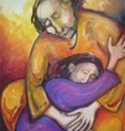
06.05.22 (Sivan 6, 5782) It was on Shavuot (i.e., "Pentecost"), 50 days after the resurrection of our Lord, when the students of Yeshua received comfort from the Spirit and the Torah of God was written upon their hearts (see Acts 1:7-8; 2:1-4; Jer. 31:31-33).
"Dear child of mine, do not forget my Torah (תורתי), but let your heart keep my commandments (מצותי). Doing so will add to you length of days (ארך ימים), long life, and peace (שׁלום). Do not abandon the heart of Your Father by losing sight of mercy and truth (חסד ואמת); No! Tie them around your neck; inscribe them upon the table of your heart (לוח לבך), that is, make them part of your inner being and will. Doing so will reveal my grace (חן) and good understanding (שכל־טוב) before the eyes of God and others. Trust in your heavenly Father with all your heart (בטח אל־יהוה בכל־לבך) and don't seek to be in control, trying to figure everything out on your own (ואל־בינתך אל־תשען). Listen for your Father's voice in everything you do; in all your ways know His heart (בכל־דרכיך דעהו), and then your ways will be directed in the truth. Don't assume that you know it all; abandon your self-conceit: Revere your heavenly Father (ירא את־יהוה) and flee from what you know is self-destructive and evil! Doing so will impart healing (רפאות) to you: your body will glow with health, your very bones will vibrate with life! Honor your Heavenly Father with everything you own; give him your first and the best of what you have (מראשׁית כל־תבואתך); then your barns will burst with plenty, and your wine vats will be overflowing" (Prov. 3:1-10).
Hebrew Lesson:
Proverbs 3:1 reading (click):
The Kingdom Within You...

[ Despite the chaos and ongoing insanity of our world, we are celebrating the great holiday of Shavuot, the climax of Passover... May Glory be ascribed to the Name of the LORD! ]
06.05.22 (Sivan 6, 5782) I have written before about how Shavuot is called "Atzaret Pesach" (עצרת פסח) or the "culmination of Passover." Just as the Passover reveals "God with us" (עִמָּנוּ אֵל), as the Word made flesh, and "God for us" (אֱלהִים לָנוּ), as the sacrificial Lamb of God, Shavuot adds yet another dimension by revealing "God within us" (אֱלהִים בְּתוֹכֵנוּ), as the indwelling Presence, the "breath of God" that forever abides in our hearts. Yeshua was eager for us to partake of this miracle: "I tell you the truth: it is to your advantage that I go away, for if I do not go away, the Helper (i.e., ὁ παράκλητος, one "called alongside to help) will not come to you. But if I go, I will send him to you" (John 16:7). As it is written, "By this we know that we live in him and he in us, because he has given us of his Spirit" (1 John 4:13). Or don't you know that your body is a temple of the Holy Spirit within you (רוּחַ הַקּדֶשׁ בְּתוֹכֵנוּ), whom you have from God? "For all who are led by the Spirit of God are the children of God" (Rom. 8:14). Amen, "Come, Holy Spirit," and set us free by the truth and power of the LORD!
Hebrew Lesson:
Ezekiel 36:26a reading (click):
Ruth and the Redeemer...

[ "Every teacher of the Torah who becomes a disciple in the Kingdom of Heaven is like a homeowner who brings from his storeroom new gems of truth as well as old." - Yeshua ]
06.03.22 (Sivan 4, 5782) During Shavuot we read the Book of Ruth (מגילת רות), which tells the story about redeeming love and the advent of King David. Recall that King David was a direct descendant of Ruth, who as a Moabitess was an outsider and "stranger" to the promises of God (Ruth 4:17; Eph. 2:12). Despite being part of an despised and rejected group of people (see Deut. 23:3), Ruth overcame the law's demand by believing in the love and acceptance of a redeemer of Israel (Ruth 3:9). Ruth's great grandson was named David (דָוִד), meaning "beloved," which has the same numerical value as the word "hand" (יָד). It is no wonder that the LORD chose David to represent God's extended hand of love for the stranger, for the convert, for the outsider, the leper, and the lost, since his descendant Yeshua the Messiah came to love and redeem the entire world by means of His outstretched hands.
Now while the narrative of the Book of Ruth is straightforward, to fully understand its spiritual implications we need to be familiar with several laws from the Torah, including the laws of redemption (Lev. 25:32-55), the laws of Shemittah and Jubilee years (Lev. 25:4, 10, 23), the laws of family inheritance (Num. 27:8-11), the laws of yibbum or "levirate marriage" (Deut. 25:5-10), and various farming laws regarding leaving food for the poor and the stranger (Lev. 19:9-10; 23:22; Deut. 24:19). In addition, we need to understand the laws of warfare for taking possession of the land, and God's repeatedly stated commandment that Israel must be holy and not assimilate with surrounding cultures (Exod. 34:12; Deut. 7:1-6; 14:2, etc.). This restriction applied not only to the seven Canaanite nations (Deut. 7:1; 20:17-18), but also to the descendants of Lot (i.e., Amnonites and the Moabites), since they showed enmity to Israel when they first came to the land (Deut. 23:4-6). Indirectly, then, the story of Ruth provides a strong message to Christians: to follow the story of redemption, you must understand the Torah and its commandments! Amen...
Hebrew Lesson
Ruth 1:16a reading (click):
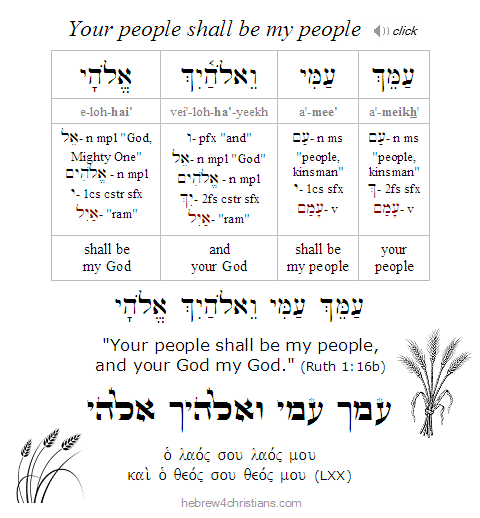 |
Related Topic:
Eschatology and Shavuot...
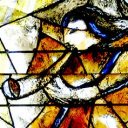
[ The great holiday of Shavuot (חג השבועות) begins Saturday, June 4th at sundown this year... ]
06.03.22 (Sivan 4, 5782) Some people believe that the ultimate fulfillment of the holiday of Shavuot (i.e., "Weeks" or "Pentecost") is found in the mysterious catching away (ἁρπάζω, harpazo) of believers before the time of the "Great Tribulation" and the Great Day of the LORD (1 Thess. 4:17; John 14:3; 1 Cor. 15:51-52). They reason that since Shavuot marked the day of dramatic revelation, with signs of fire and the sounds of a heavenly shofar blast, an appointed time that marks the jubilee fulfillment of Passover, it can therefore be seen as the rapturous end of redemption for those who believe, symbolic of a wedding day, when God betrothed Israel as His own people, separate from all others. Both Jew and Gentile will be "waved" before the LORD (as symbolized by shtei ha-lechem, the two loaves), representing the "one new man" of kallat Mashiach, the "bride of Messiah," or the assembly of those called out from every tribe and tongue to be a part of God's heavenly kingdom.
 |
Though no one knows the day or hour of the return of Yeshua our Messiah (see Matt. 24:36; Acts 1:7), there are clues given in Scripture about the conditions of the world before His return, and Yeshua himself gave us parables admonishing us to actively be looking (Matt. 24:2-14; 25:1-13). The Apostle Paul said that followers of the Lord can know the "season" of Messiah's return, and warned that He will come "as a thief in the night" - not in the revelation of great power and glory at the end of the age (1 Thess. 5:2-6). Moreover, Paul forewarned of the rise of worldwide godlessness (2 Tim. 3:1-7) and even of the flagrant apostasy of the "institutionalized" church (1 Tim. 4:1-3), which is of course evident today... Other Scriptures foretell of the coming One World Government, the rise of the Messiah of evil (Antichrist) whose "god" will be the "security state" (Dan. 11:38), the persecution of the national Israel (a nation miraculously restored to the promised land), the rebuilding of the Temple, the coming Great Tribulation, and so on. "When these things begin to take place, straighten up and lift up your heads, because your redemption is drawing near" (Luke 21:28).
Regarding the "world system," however, we have quite a different vision... The LORD God Almighty has vowed to break the pride of the "kings of the earth" with a rod of iron and dash them in pieces like a potter's vessel, and the shattering will be so ruthless that among its fragments not a shard will be found with which to take fire from the hearth, or to dip up water out of the cistern (Psalm 2:9; Isa. 30:14). For from His mouth comes a sharp sword with which to strike down the nations, and He will rule them with a rod of iron. He will tread the winepress of the fury of the wrath of God the Almighty (Rev. 19:15). Nebuchadnezzar's great dream will soon be fulfilled: "As you looked, a Stone was cut out by no human hand, and it struck the image on its feet of iron and clay, breaking them in pieces. Then the iron, the clay, the bronze, the silver, and the gold, all together were broken in pieces, and became like the chaff of the summer threshing floors; and the wind carried them away, so that not a trace of them could be found. But the stone that struck the image became a great mountain and filled the whole earth" (Dan. 2:34-35). "And the God of heaven will set up a kingdom that shall never be destroyed ... and it shall stand forever" (Dan. 2:44). One day the edifice of man's godless pride will come crashing down, and there will be no trace left of its rubble... Amen; even so, come quickly, Lord!
Note: Our tradition does not require us to accept everything at face value, though it does expect us to study, to wrestle, to seek truth. Each of us must "go to Peniel" to wrestle with the Angel; each of us must be renamed from Ya'akov ("a supplanter") to Israel ("a prince with God"). When the Spirit of Truth asks, "What is your name," may the LORD God grant you the courage to refuse to "let go" until you receive the divine blessing of love and acceptance.
Hebrew Lesson
Psalm 47:5 Hebrew reading:
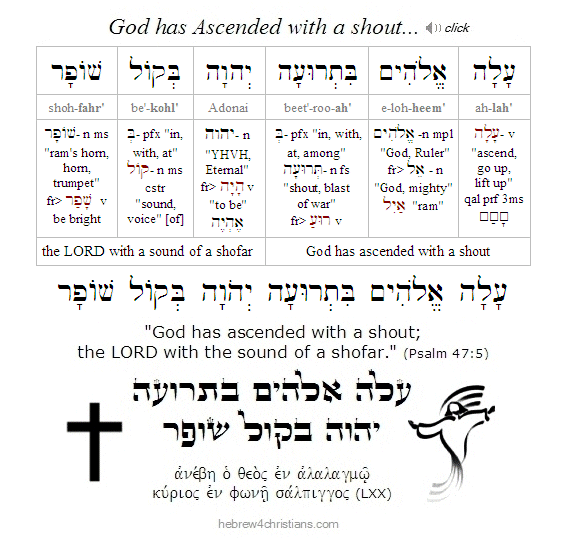 |
Blessings of the Desert...

06.03.22 (Sivan 4, 5782) Our Torah portion this week (Bamidbar) begins: "The LORD spoke to Moses in the desert of Sinai, in the tent of meeting (ohel mo'ed), on the first day of the second month, in the second year after they had come out of the land of Egypt" (Num. 1:1). Note again that the LORD spoke in the desert (ba-midbar) of Sinai, and that the Hebrew word for "desert" (i.e., midbar: מדבר) shares the same root as "word" (i.e., davar: דבר), which suggests that we hear the Word of God in a place of emptiness, brokenness and ongoing need. But note further that the LORD spoke in the "tent of meeting" (אהל מועד), which may be read as the tent of "mo'ed" (מוֹעֵד), or "holiday." We celebrate our need for God's healing and turn to him in a state of gratitude, even despite our sinful condition (Psalm 119:71). We take courage and draw near, renewed in trust. That is why the verse says it was "the first day of the second month" (חדש השני בשנה) -- the word "month" (chodesh) can be read as "new" (chadash), suggesting it was a time of renewal, a time to celebrate a new beginning (Acts 2:1-4). When David prayed in his need: "Create in me a clean heart, O God, and renew a right spirit within me" (Psalm 51:10), the Hebrew may be read: "Create in me a pure heart, O God, and renew within me ruach nachon (רוח נכון) - a spirit of "Yes" (כן). As Paul said of Messiah our Healer: "All the promises of God find their 'Yes' in him" (2 Cor. 1:20).
Hebrew Lesson
Psalm 51:10 Hebrew reading:
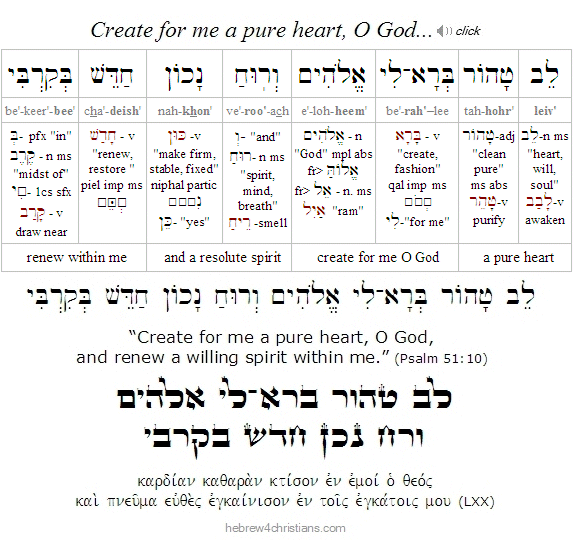 |
Accounted by God...

06.03.22 (Sivan 4, 5782) Our Torah reading for this week, parashat Bamidbar (פרשת במדבר), is always read just before the holiday of Shavuot (i.e., "Pentecost"), which is the time we celebrate "mattan Torah" (מתן תורה) -- the giving of the Torah of the LORD (first at Mount Sinai, and then later at Mount Zion). The reading begins: "The LORD spoke to Moses in the desert of Sinai... saying 'Lift up the head' (i.e., count) of the children of Israel (Num. 1:1-2).
Central to Sefer Bamidbar, or the Book of Numbers, is the counting of the person, identifying his "place" within the chosen vessel of Israel (Num. 1:52), and therefore the traditional sages link the idea of being counted by God with the giving of the revelation itself. In other words, as we come to know who we are as God's redeemed people, as we learn to reckon ourselves as his beloved, so we will receive Torah and be accounted among his people. Our heads will then be "lifted up," and we will receive the very first blessing of the Torah, namely: אנכי יהוה אלהיך - "I AM the LORD your (singular) God" (Exod. 20:2).
"The LORD spoke to Moses in the desert of Sinai... saying 'Lift up the head' (i.e., count) of the children of Israel (Num. 1:1-2). The Torah commentator Rashi insightfully noted that as we are counted, so we are lifted up and beheld by God. In other words your life matters to heaven, and you are counted worthy because of God's great redeeming love. The sages say that each of us is as a letter of Torah; each of us counts in God's book. Indeed our beloved Savior Yeshua said, "Even the hairs on your head are numbered" (Matt. 10:30).
May you lift up your head and be counted as one of God's own, friend....
Hebrew Lesson
Exodus 20:2 Hebrew reading:
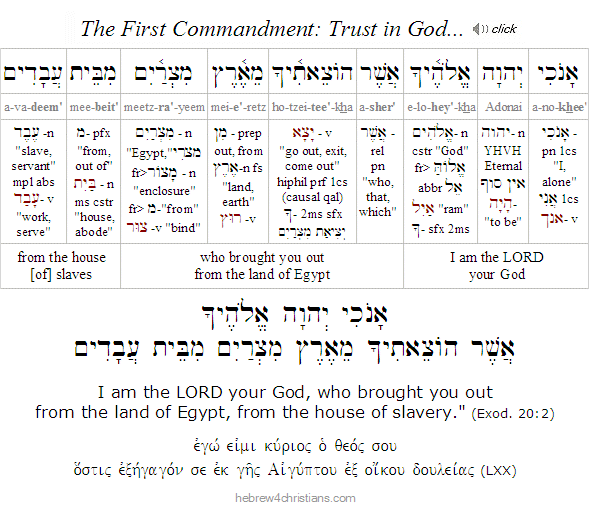 |
Theology of Flowers...

06.03.22 (Sivan 4, 5782) "Why are you so anxious? Take a lesson from the wildflowers... They neither toil nor spin, yet even Solomon in all his royal glory was not arrayed like one of these ... And if your heavenly Father gives such attention to the appearance of flowers, many of which grow in unseen places, surely he will attend to you, too" (Matt. 6:28-30). So take a deep breath. Don't let worry blind you to God's ongoing care; don't live as those without faith. You have a place in your Father's heart; you have a share in his house above. Regard the Lord as your Dwelling Place "in all generations"; behold his unchanging glory despite the fleeting shadows of this world.
We must first look to the Eternal to rightly see the finite; we must look upward before we look downward. As we contemplate God's Eternality and power, we realize the wonder and sanctity of our short time here. The Eternal is our refuge, our "dwelling place" (מָעוֹן) in all generations, and that means in the present generation as well, on the other side of the veil of this world. When we pray to God as Avinu She-bashamayim, "Our Father in Heaven," we are calling to the One who (ש) is in the midst of the waters (מים) of Life.
The psalmist says (Psalm 118:17): "I shall not die but live." In order to live you must give yourself to death, but when you have done so, you discover that you are not to die, but live. "Giving yourself to death" means surrendering to God's will, accepting the yoke of heaven, and trusting in His governing "flow" over all of creation. This is the deeper meaning of "baptism" as we are immersed into God's care for us. Yeshua gives us abundant life.
The bloom of every flower is by eternal purpose, and not one common sparrow is forgotten by your Heavenly Father (Luke 12:6). God's irresistible providence comprehends and orders all things, from the realm of the subatomic to the cosmic motions of the heavenly bodies. The Lord is the Center of reality: "All things were created by Him, and for Him, and in Him all things hold together" (Col. 1:16-17). In light of this, Blaise Pascal asked, "What is left for us but to unite our will to that of God himself, to will in him, with him, and for him the thing that he has eternally willed in us and for us." In other words, what else can we do but learn to trust, accept, and to say "yes" to life – even if at times we may feel like strangers in exile... All our days are ordained; recorded in God's scroll. Therefore may God "teach us to number our days to get a heart of wisdom" (Psalm 90:12). So don't lose heart, friend; He who cares for you is a good shepherd, and you shall dwell in the house of the LORD forever.
Hebrew Lesson
Psalm 90:1 reading (click):
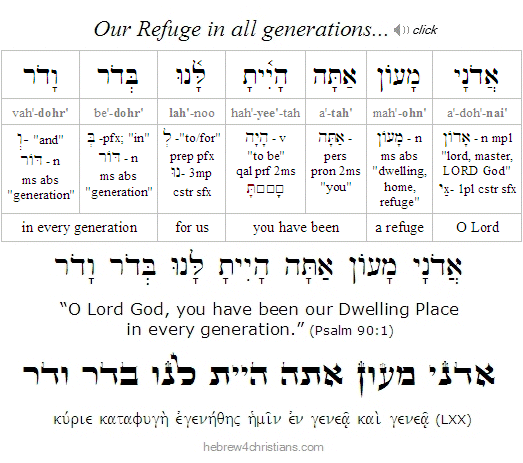 |
The Fear that leads to Life...
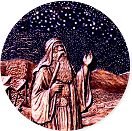
06.03.22 (Sivan 4, 5782) In the Torah we read: "And now, Israel, what does the LORD your God require of you, but to fear the LORD your God..." (Deut. 10:12). Notice that "fear of the LORD," called yirat Adonai (יִרְאַת יְהוָה) in Hebrew, comes first and is what is required of you. The sages say that to fear the LORD means that your fear should be like God's fear. But what could God possibly fear, you ask? Only this: that you will turn away from his love and destroy yourself. To fear God means abhorring that which breaks the relationship He desires with you. That is the wound of God's heart, and that is what God "fears."
Of course there is also the fear of going to hell and suffering God's judgment for sin, but that outcome is the result of that which God fears, namely, the tragic rejection of his offer of grace and forgiveness given in Yeshua. Nonetheless, even believers in Yeshua should fear sinning against God because it makes a mockery of his love. How so? Well if God so hates sin that he suffered and died for you to be free from its power, what sort of insult is it to continue sinning without experiencing fear and trembling? Consider again the great cost of your salvation (1 Pet. 1:18-19). Yeshua was shamed as a criminal, cruelly beaten, mercilessly flogged, viciously lacerated, and died of asphyxiation upon a cross to intercede for your life and to present his blood as atonement for your sin. He did not die like this so you could go on sinning with impunity, but to redeem your life from the verdict of the law and to restore your place as beloved child of God. Willfully sinning shows contempt for the sacrifice of Messiah and outrages the spirit of grace: "Someone who rejected the law of Moses was put to death without mercy on the testimony of two or three witnesses. How much worse punishment, do you think, will be deserved by the one who has trampled underfoot the Son of God, and has profaned the blood of the covenant by which he was sanctified, and has outraged the Spirit of grace? For we know the one who said, "Vengeance is mine, I will repay," and again, "The Lord will judge his people." It is a fearful thing to fall into the hands of the living God" (Heb. 10:28-31).
Be encouraged. friend. The fear of the LORD is "to life," that is, it is for your good, and it is the source of your wisdom as his beloved child (Prov. 9:10). It takes wisdom to balance fear over our sin and love for our Lord. May God help you fall before the cross in fear of your sin, yet be raised up by the reality of his love for your soul. Amen.
Hebrew Lesson
Prov. 19:23 reading (click):
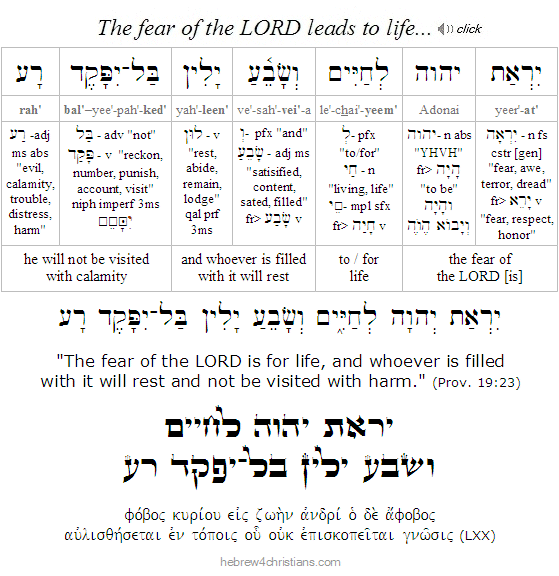 |
The War for Our Souls...

06.02.22 (Sivan 3, 5782) There is a great war going on, and it's not a war waged with conventional weapons. This is the war for the souls of human beings, and every person alive is currently engaged in it... There is no place of neutrality in this war, and you cannot escape from the conflict. Passivity or indifference is not an option, and therefore each of us must choose sides. We are either going forward or going backward; we are either drawing near or pulling away (Rev. 3:16). מי ליהוה אלי - mi Adonal aylai? "Who is on the Lord's side?"
The apostle Paul wrote about this great war when he said: "For though we walk in the flesh (i.e., as mortal men), we are not waging war according to the flesh (i.e., in human terms). For the weapons of our warfare are not of the flesh but have divine power to demolish strongholds. We destroy arguments and every lofty opinion raised against the knowledge of God, and take every thought captive to the truth of Messiah" (2 Cor. 10:3-5).
Successful spiritual warfare is waged in the spirit realm, not relying on physical means at all, but trusts in the power of God and the weapons he provides to demolish "strongholds" where evil is deeply rooted (the word "stronghold" is better translated as "fortress," a metaphor for militant prejudice that attempts to justify godlessness). In the profane world, these strongholds are expressed in the reasoning (i.e., λογισμός, "logic") and "arrogant opinions" (i.e., ὕψωμα, pretenses) of the godless heart that are distilled into a dark vanity called "the wisdom of this world" (1 Cor. 3:19). The phrase "every lofty opinion raised against the knowledge of God" refers to the various devices of the heart and mind that erect obstacles to the knowledge of the truth revealed in the Messiah. Such obstacles are affirmed daily in the treacherous news of this world that reinforce godless assumptions and outright deception. We must use active discernment to identify the fallacies and misleading schemes promulgated by the world system by "taking every thought captive" to the glorious truth of the Messiah.
This is the good fight of faith (1 Tim 6:12). The fight is "good" because it turns on the victory and glory of the Lord who shares his overcoming life with us. The battle belongs to the Lord; the victory has been secured (Psalm 84:11; Rom. 8:37-39). Always remember that we never fight for, but always from, the place of His victory, standing our ground in the sufficiency of God's power given to us (Luke 10:19). We must be sober and vigilant (1 Pet. 5:8-9); we must stay focused and persevere in the truth (2 Tim. 2:4). God gives us the "armor of light" that blinds the eyes of powers of darkness. We must not be afraid but stand firm in the strength given to us by the Spirit of God (Zech 4:6; Eph. 6:11-18). The Lord will help us in the battle (2 Thess. 3:3; Deut. 3:22). "No weapon that is fashioned against you shall succeed, and you shall refute every tongue that rises against you in judgment. This is the heritage of the servants of the LORD and their vindication from me, declares the LORD" (Isa. 54:17).
Hebrew Lesson
Psalm 144:1 reading (click):
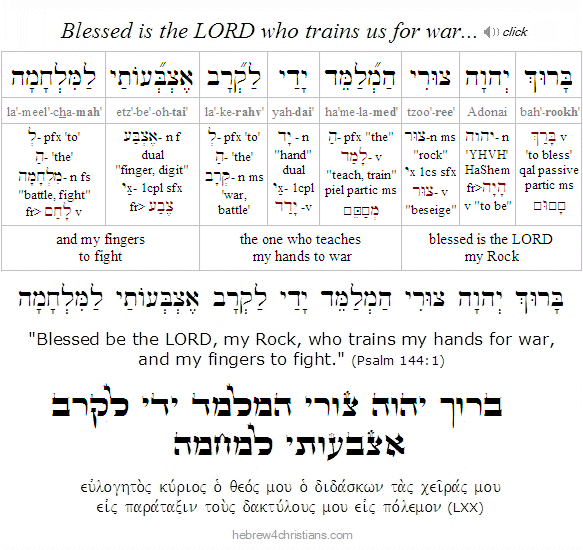 |
Navigating Moral Reality...
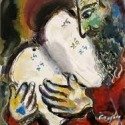
06.02.22 (Sivan 3, 5782) The moral rules of the LORD (i.e., mishpatim: משׁפטים) may be likened to guideposts along the way, warning us about dangers up ahead. And just as a physical law like gravity describes material reality, so moral law describes spiritual reality. We can no more deny moral reality than we can deny physical reality, though the effect of violating moral truth is often not physical but spiritual - affecting our inner life, our conscience, our sense of value, our relationships, and so on. In either case, however, reality is self-correcting, and we shall deny its substance at our own peril...
Laws of any kind are generalizations, of course. In science, for instance, we inductively sample phenomena and then universalize that experience as a law applicable in all similarly controlled conditions, until proven otherwise. In the case of moral reality, we may have revealed and intuitive awareness of value, but we still must wrestle to discover how to apply such truth to practical matters of our lives. For example, a moral rule is to always "speak truth," but in some cases this rule can be "broken" for the sake of a more important truth. For instance, the law of truth-telling may be suspended if we were hiding Jews in our attic and the Nazis asked if we were doing so. Moral and social rules speak to our need for boundaries, for sacred space, safety, and provide means to show respect to one another. That's the "spirit of the law" (רוח התורה) the deeper reason for its expression. The "role of the rule" is to promote and upbuild life; a righteous rule helps us discern how to limit and redirect our impulses to express godly character. As is also written in our Scriptures: "You shall therefore keep my statutes and my rules; if a person does them, he shall live by them: I AM the LORD" (Lev. 18:5).
Hebrew Lesson
Lev. 18:4a reading (click):
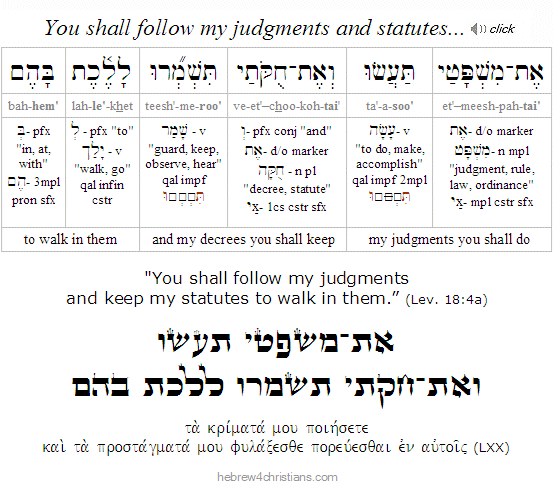 |
Teshuvah of the Mind...
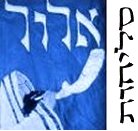
06.01.22 (Sivan 2, 5782) We are responsible to walk in truth and to reject what is false (1 John 4:6). This implies that we have a moral and spiritual duty to think clearly and not to abuse our minds (Phil. 4:8; Rom. 12:2). The LORD our God will help us to do this, as Yeshua said: "I will ask the Father, and he will give you a Helper (παράκλητος, someone "called to one's side"), to be with you forever, even the Spirit of Truth (רוּחַ הָאֱמֶת), whom the world cannot receive, because it neither sees him nor knows him" (John 14:16-17). The Spirit of Truth helps us "discern what is the will of God, what is good, acceptable, and perfect" (Rom. 12:2) and empowers us to take "every thought captive" to the reality of the Divine Presence (2 Cor. 10:4-5). Truth is connected to memory - both in our personal histories as well as the history of God's redemptive actions performed on our behalf. Truth is ἀλήθεια, "a-letheia," not forgetfulfulness... Hence we are constantly commanded to remember what God has done for us and to "diligently repeat" the truth to our children (Deut. 6:4-9). Similarly, the Spirit of Truth brings to remembrance the words of Yeshua to our hearts (John 14:26).
Followers of Yeshua are commanded to love the truth and to think clearly about their faith. The ministry of reconciliation itself is defined as "the word of truth, by the power of God, through weapons of righteousness" (2 Cor. 6:7). Indeed, the word of truth (τὸν λόγον τῆς ἀληθείας) is a synonym for the "gospel of salvation" itself (Eph. 1:13; Col. 1:5; James 1:18). We are saved by Yeshua, who is the "way, the truth, and the life" (John 14:6). God commands all people to believe this truth (Acts 17:30-31; 1 Tim. 2:4). People perish because "they refuse to love the truth and so be saved" (2 Thess. 2:10-12). Therefore we see that the issue of truth is central to salvation itself....
Genuine teshuvah (repentance) implies that we will change our thinking in order to be transformed by God's truth. The follower of Messiah "cannot do anything against the truth, but only for the truth" (2 Cor. 13:8). During this Season of Teshuvah, may God help us all to think clearly and to turn our thoughts to Him. May He protect us from the vanity of a darkened mind and from all distractions that attempt to seduce us away from Him. May the LORD give us the purity of heart to know and do His will in the truth. Amen.
Hebrew Lesson
Psalm 25:5a reading (click):
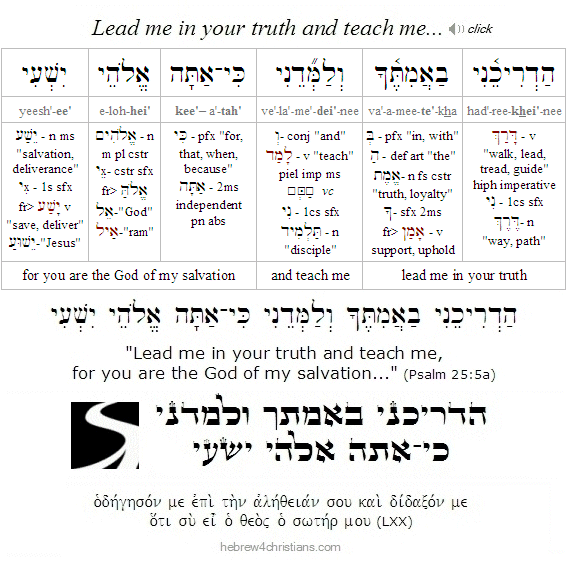 |
"Don't you know that a midnight hour comes when everyone has to take off his mask? Do you think life always lets itself be trifled with? Do you think you can sneak off a little before midnight to escape this?"(Kierkegaard). For more on this see: "Teshuvah of the Mind."
What You Really Need...

06.01.22 (Sivan 2, 5782) We don't pray to attempt to change God's mind, but rather to change our own: "Your Father knows what you need before you ask him" (Matt. 6:8). Prayer is not a means of getting your Father's attention, but rather of getting your attention fixed on reality. It is a confession of your great need to find out who you really are. And while it is indeed true that "God knows everything," He does not know anything apart from his love. God does not "know" you in some "abstract" sense, like a computer that stores data and information, but rather as a parent who loves and cares for you (Psalm 103:13). Your heavenly Father knows the number of hairs on your head; he knows the word on your tongue before you utter it, and he perfectly sees your beginning and end. He has intimate understanding of who you are and what you really need.
Hebrew Lesson
Psalm 103:13 reading (click):
Heirs of the Spirit (יורשי הרוח)

06.01.22 (Sivan 2, 5782) "Not all who are (physically) descended from Israel (οἱ ἐξ Ἰσραήλ) are (spiritually) Israel, nor are all (physical) descendants (σπέρμα) of Abraham his (spiritual) children (τέκνα); but ביצחק יקרא לך זרע - 'in Isaac shall your seed be called'" (Rom. 9:6-7; Gen. 21:12, 32:28), which is to say that a child of promise is brought forth by the power of God, and not by means of human agency (see John 1:12-13). Though both Ishmael and Isaac were physical descendants of Abraham, the former was born "of the flesh" (κατὰ σάρκα) whereas the latter was born "of the Spirit" (ἐκ τοῦ πνεύματος), and this is why Isaac was the true heir of the faith.
Note how faith expresses the direction of life. Isaac surrendered himself as a sacrifice to God, whereas Ishmael contended for worldly power. The "children of the flesh" often regard themselves as "free" when in fact they are slaves since they do not know the blessing of true surrender to God. Friend, if you are depending on your own inner strength, your resolve, or your "religion" to save you, then you have not taken hold of the promise, for it is receiving the promise of God that imparts life. You may regard yourself as a "spiritual" person but be a stranger to the heart of Reality. We are healed from the sickness of spiritual death only by the power of God, by being reborn with a radically new nature though the agency of the Spirit, not by attempting to "reform" our lower nature nor by taking pride in our lineage, religion, or our status in this world (Matt. 3:9, John 8:39-45).
Hebrew Lesson
Gen. 15:6 reading (click):
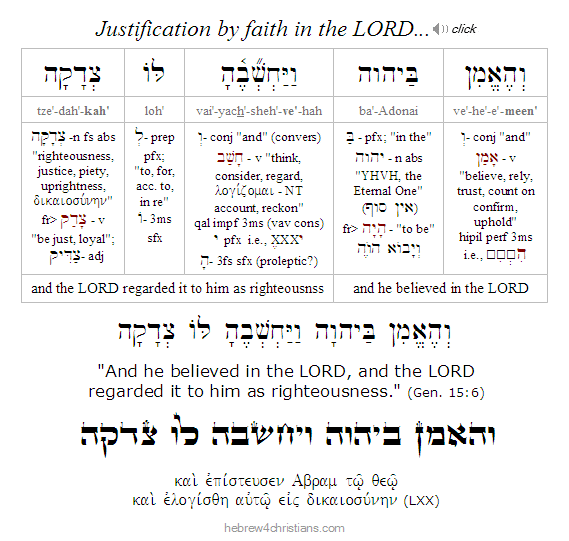 |
For more on this topic see "Paul's Allegory of Flesh and Spirit."
|









































































